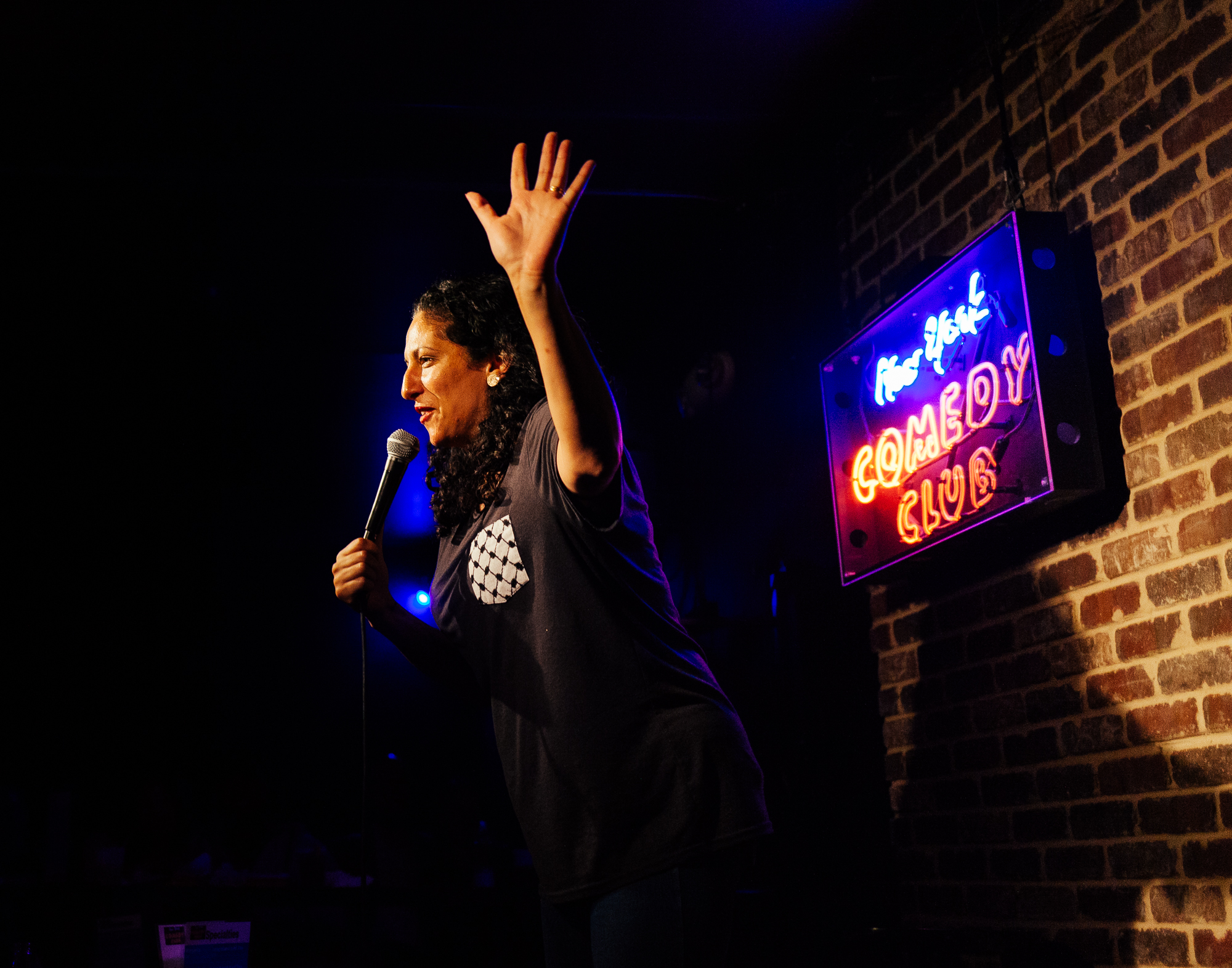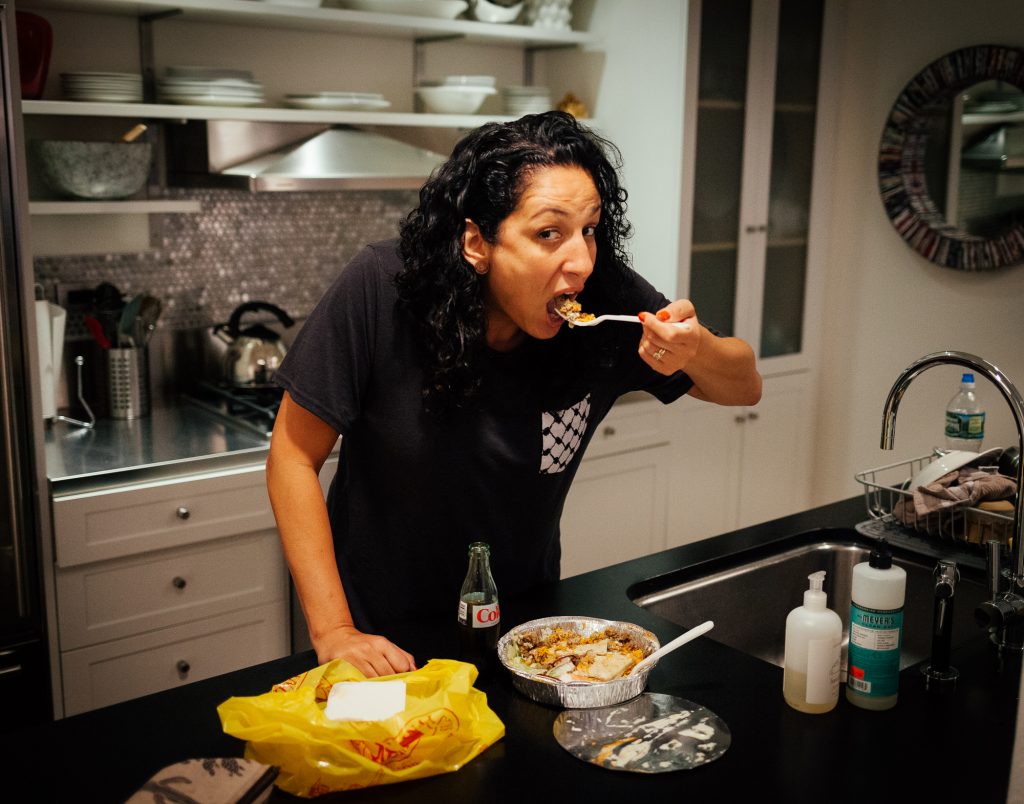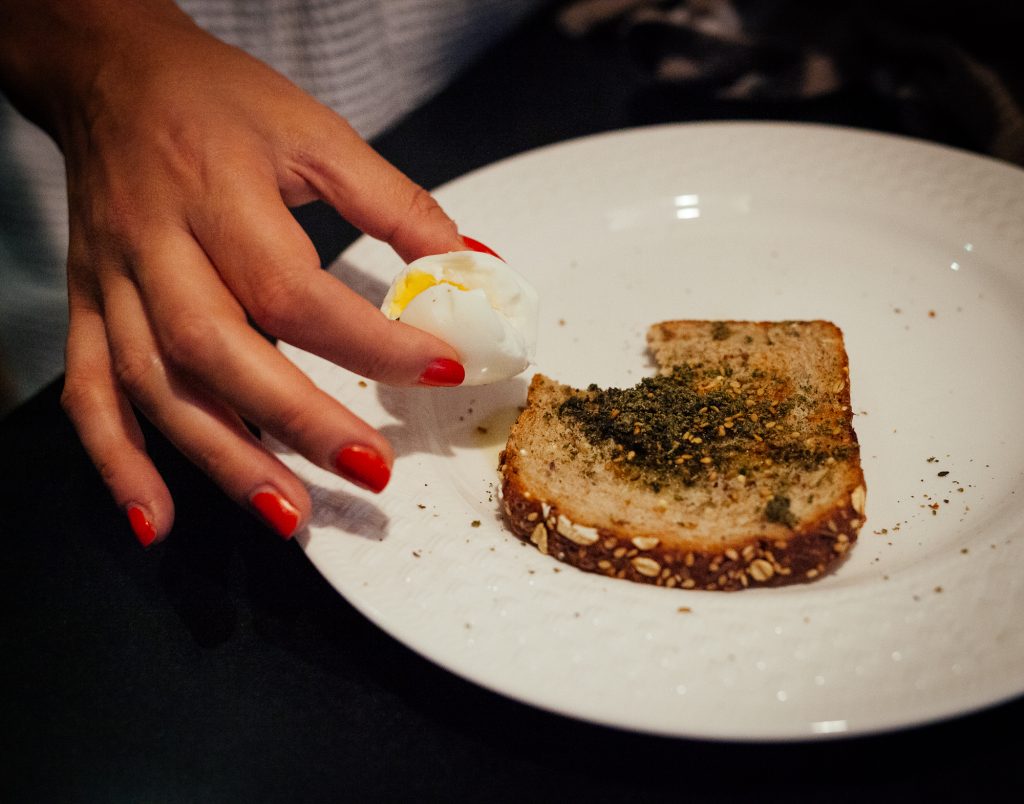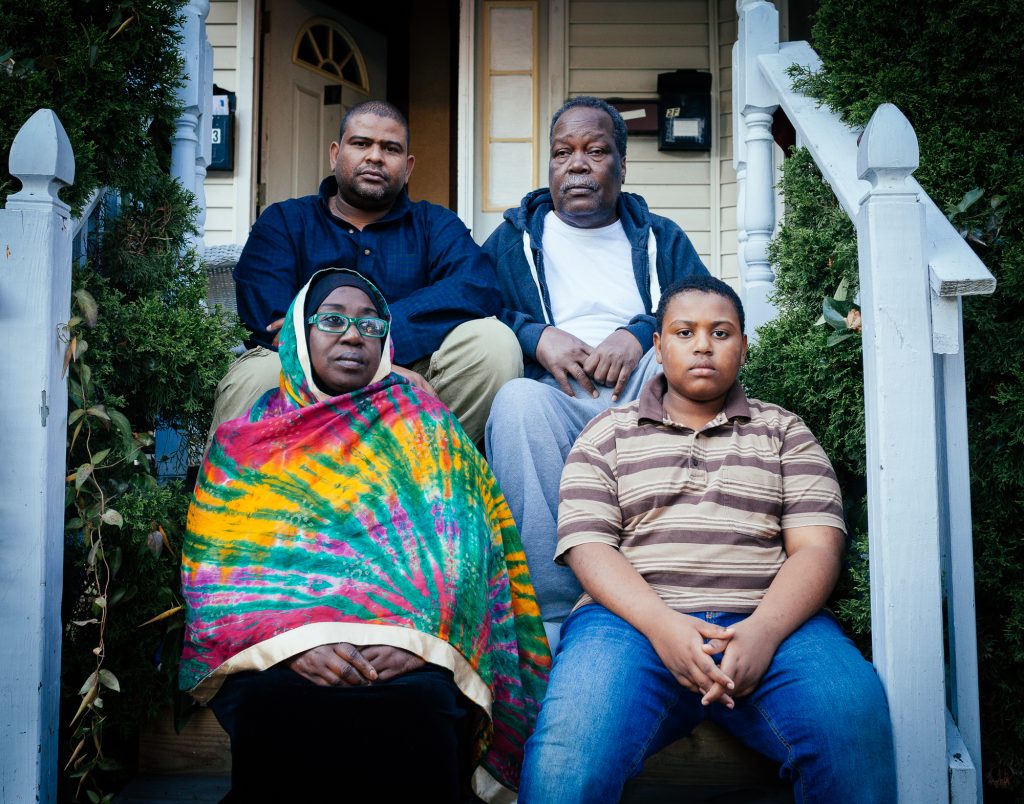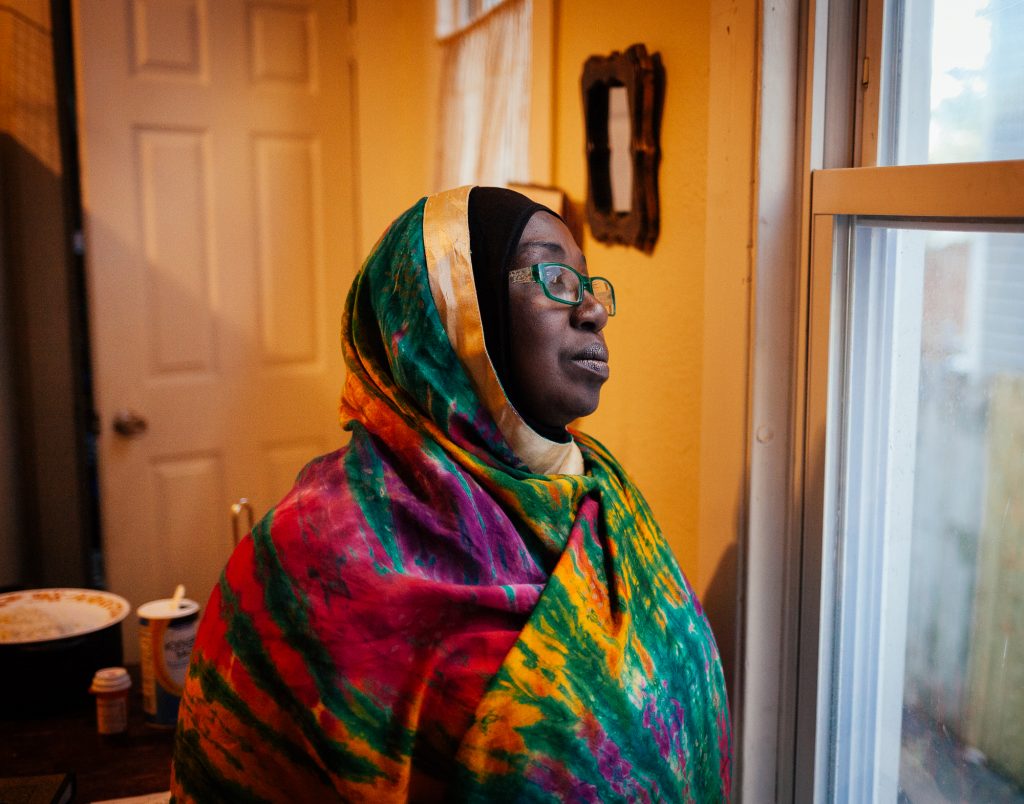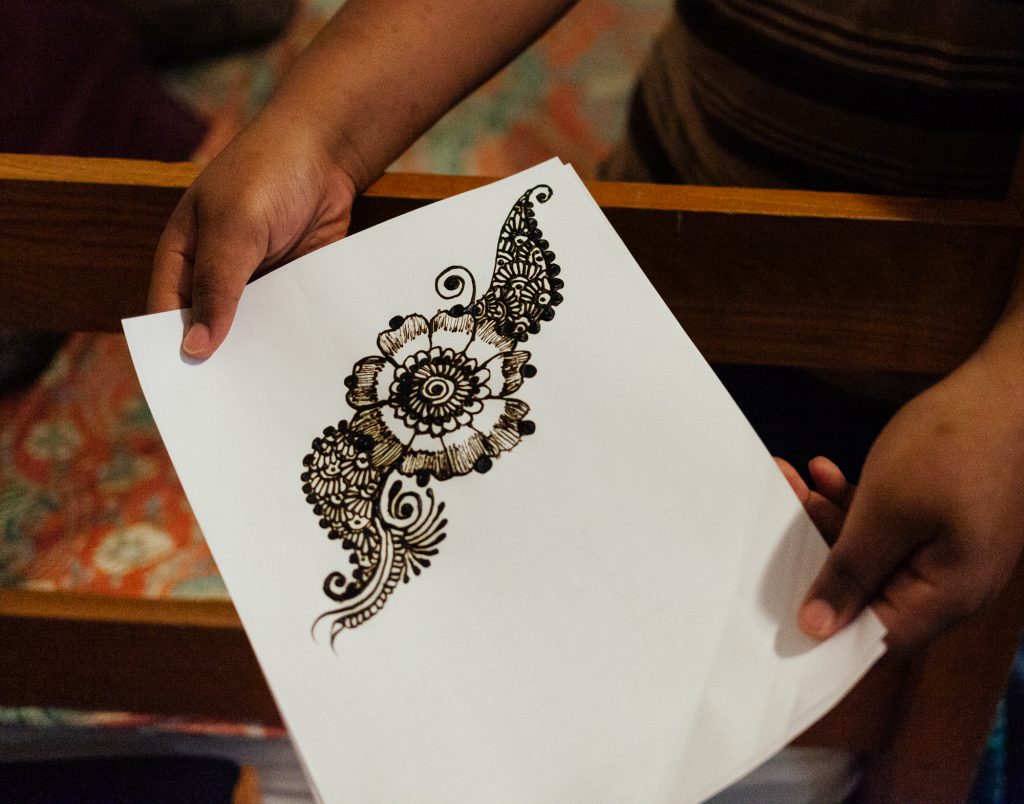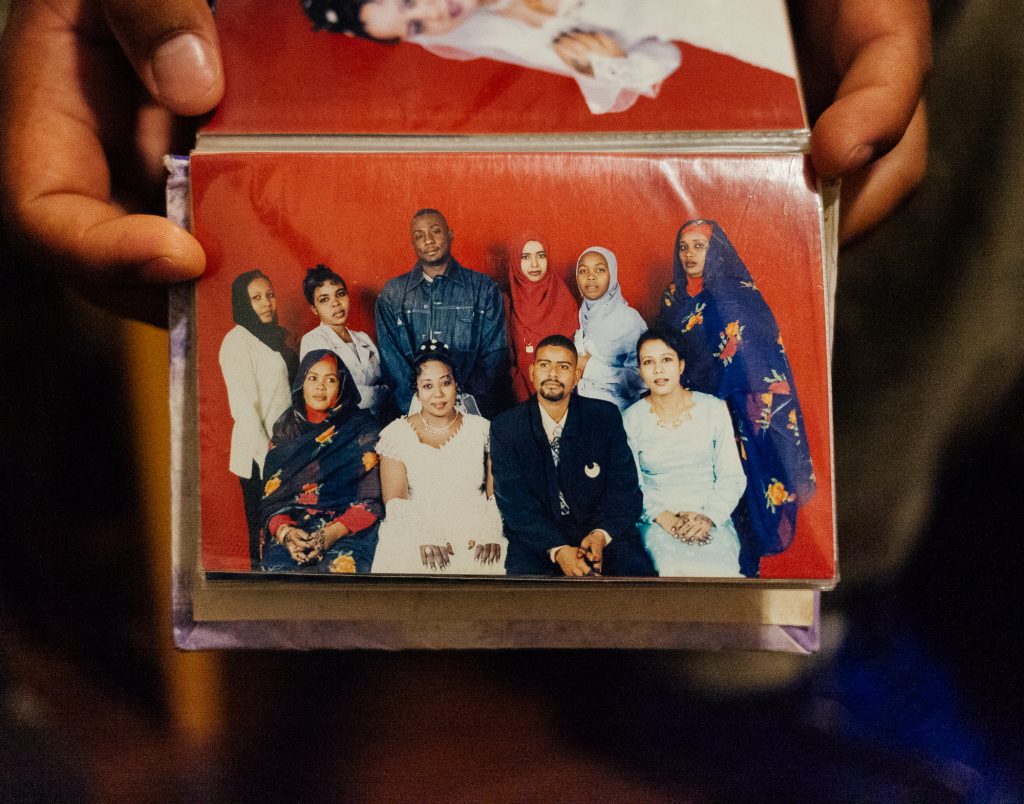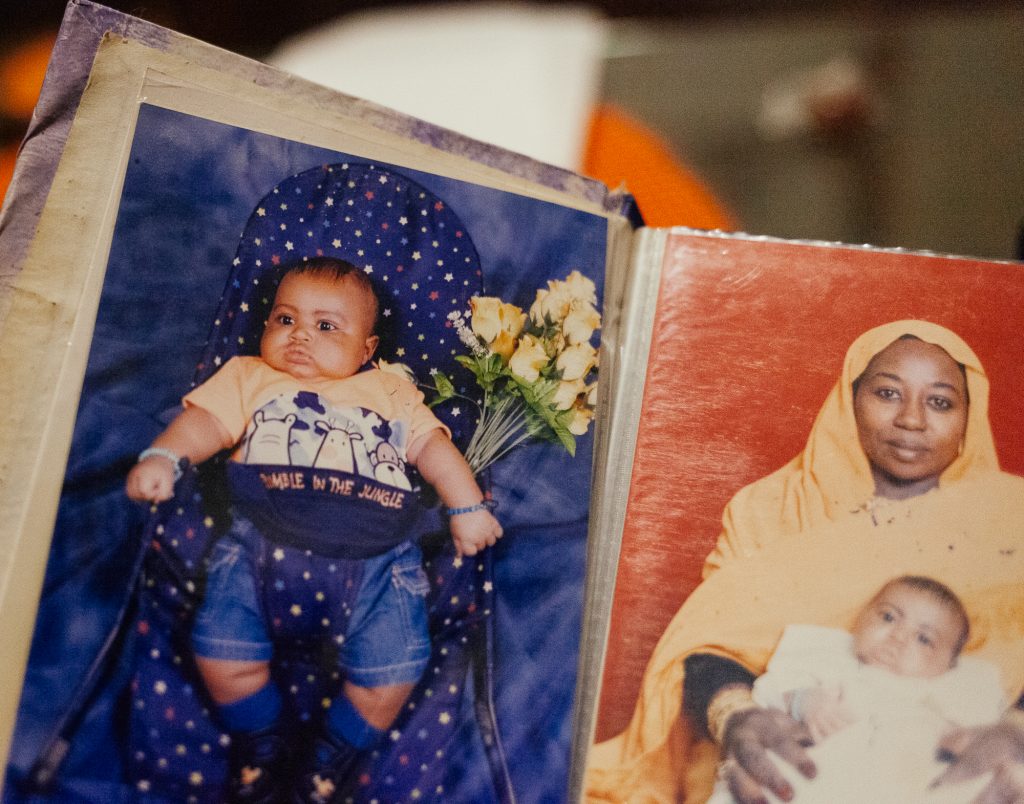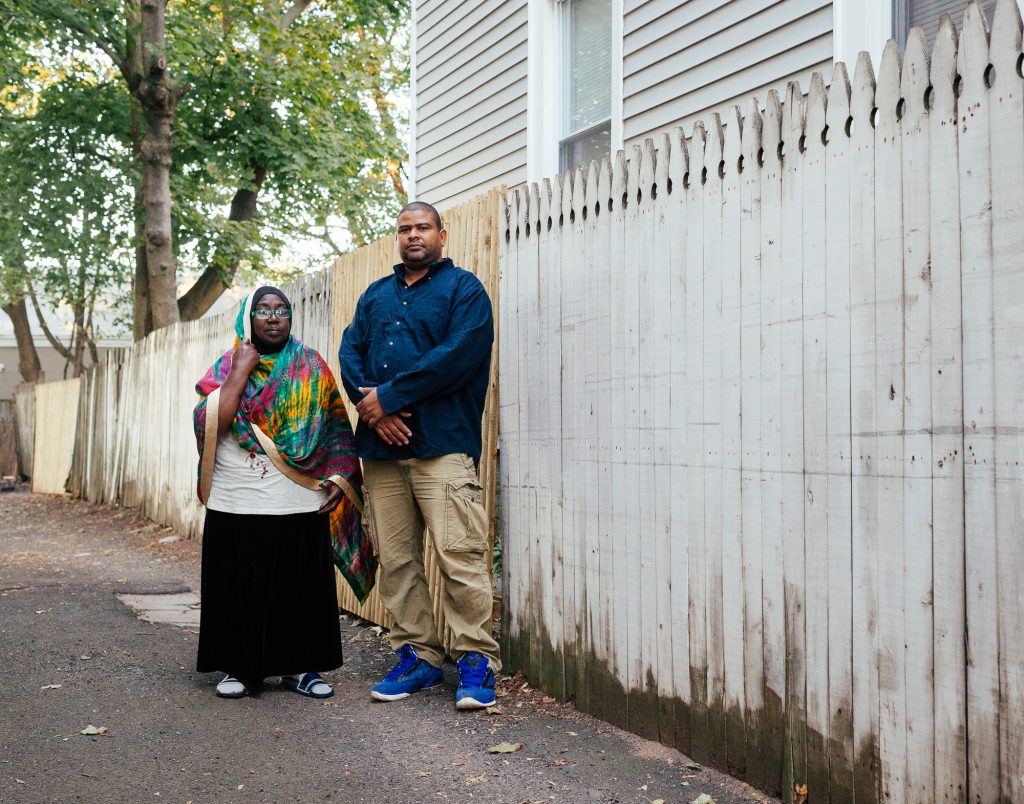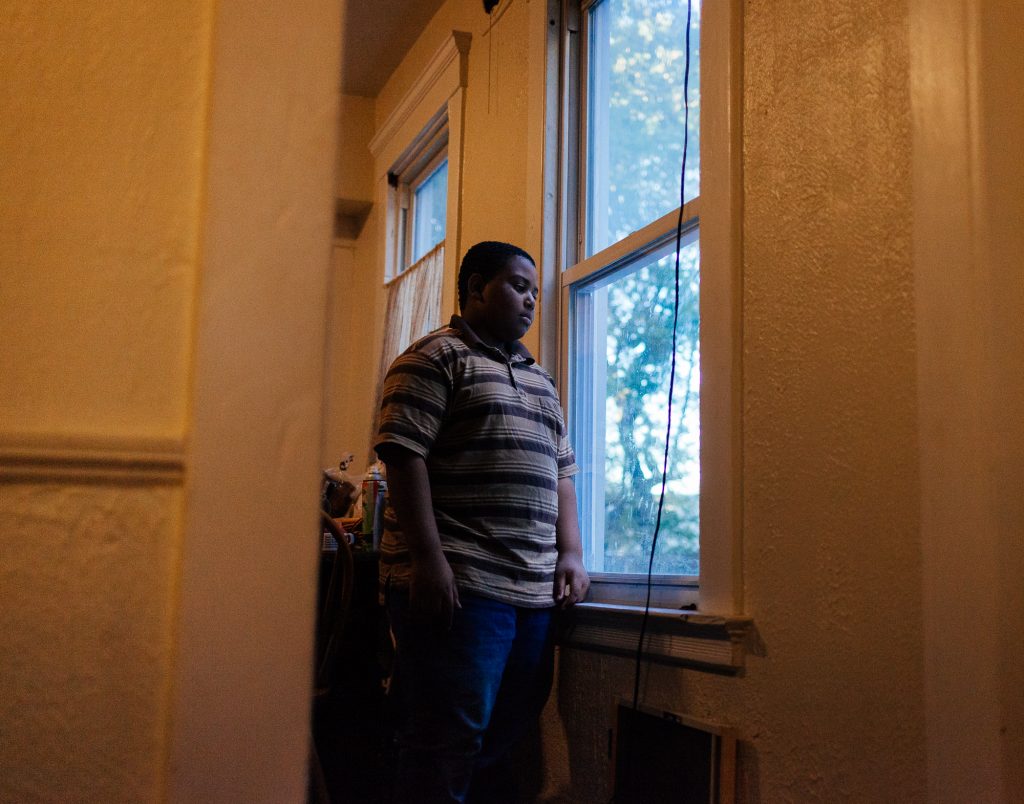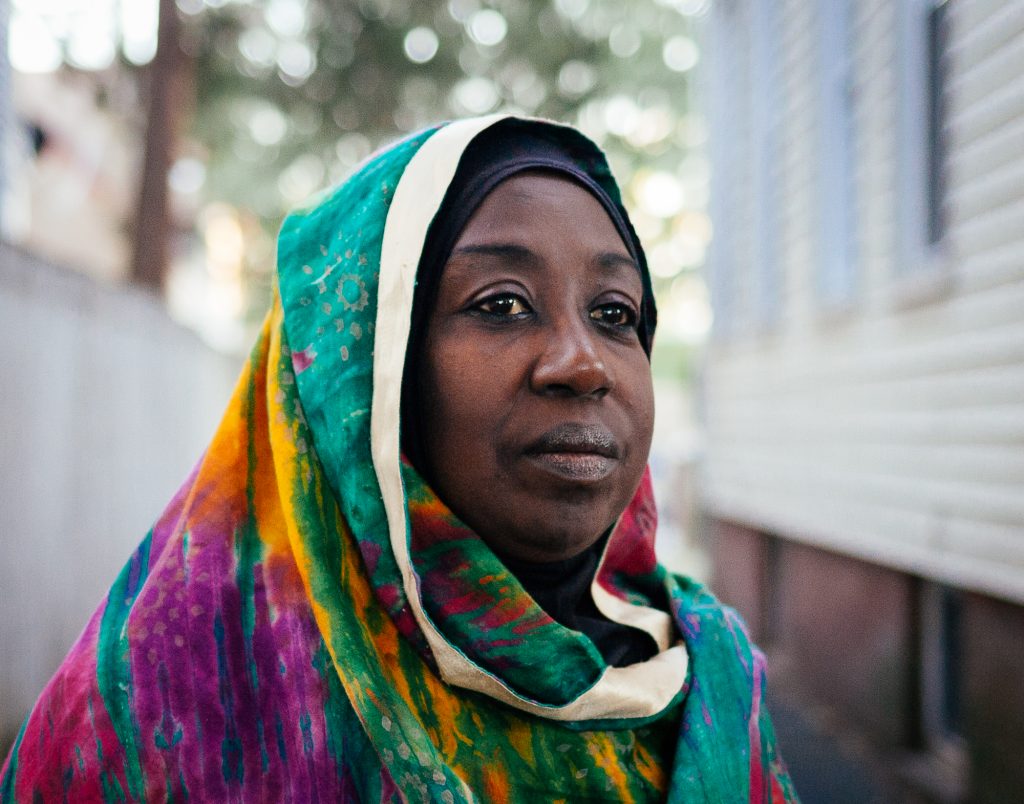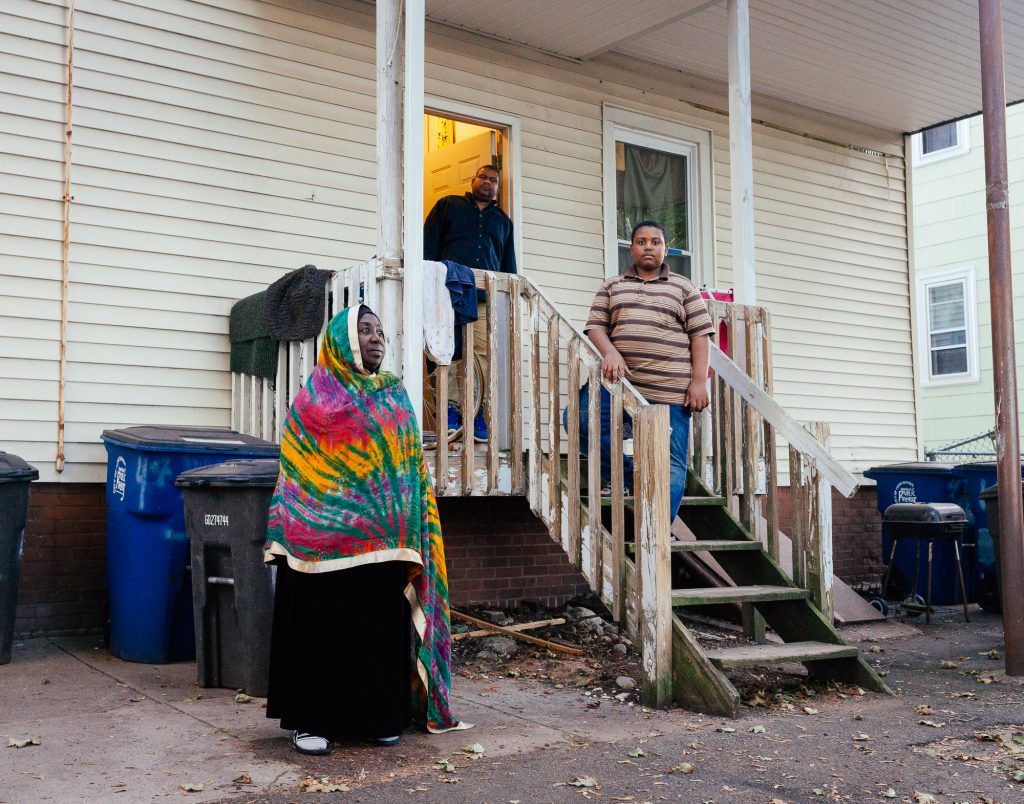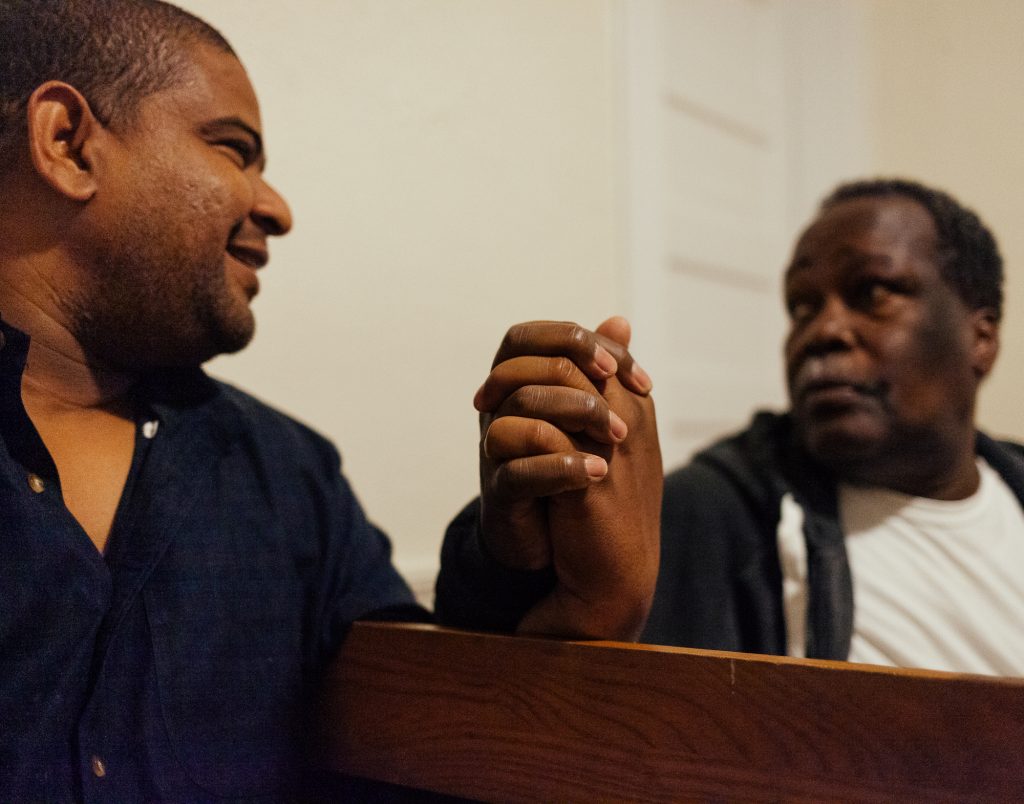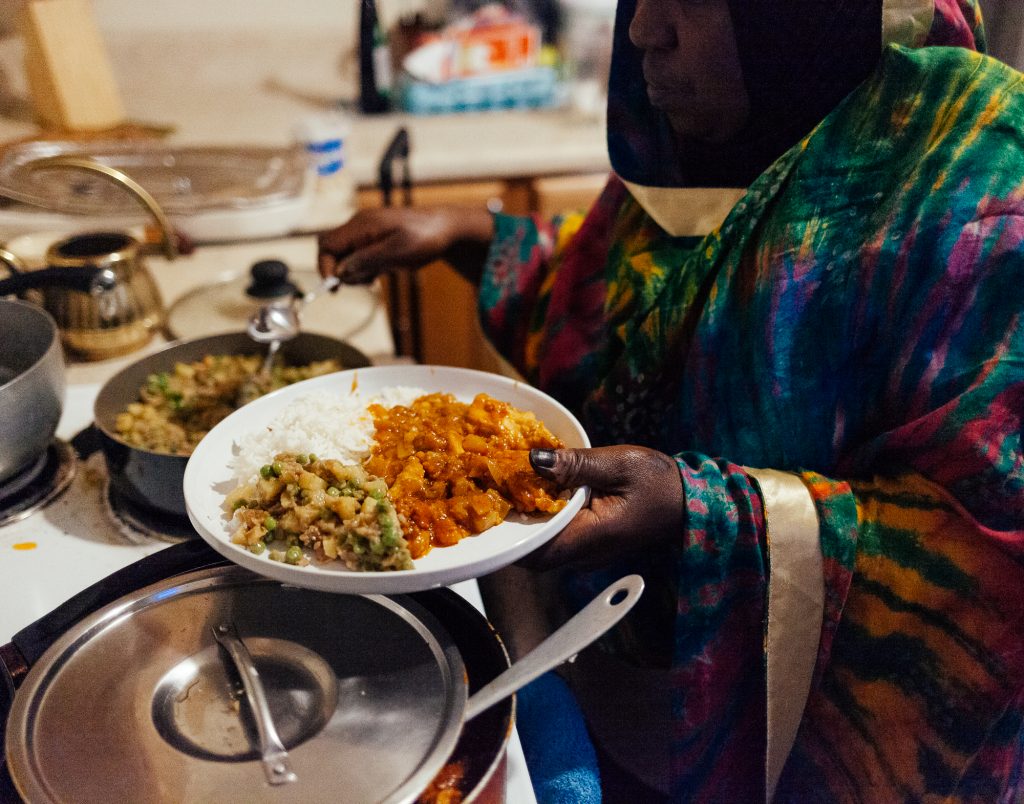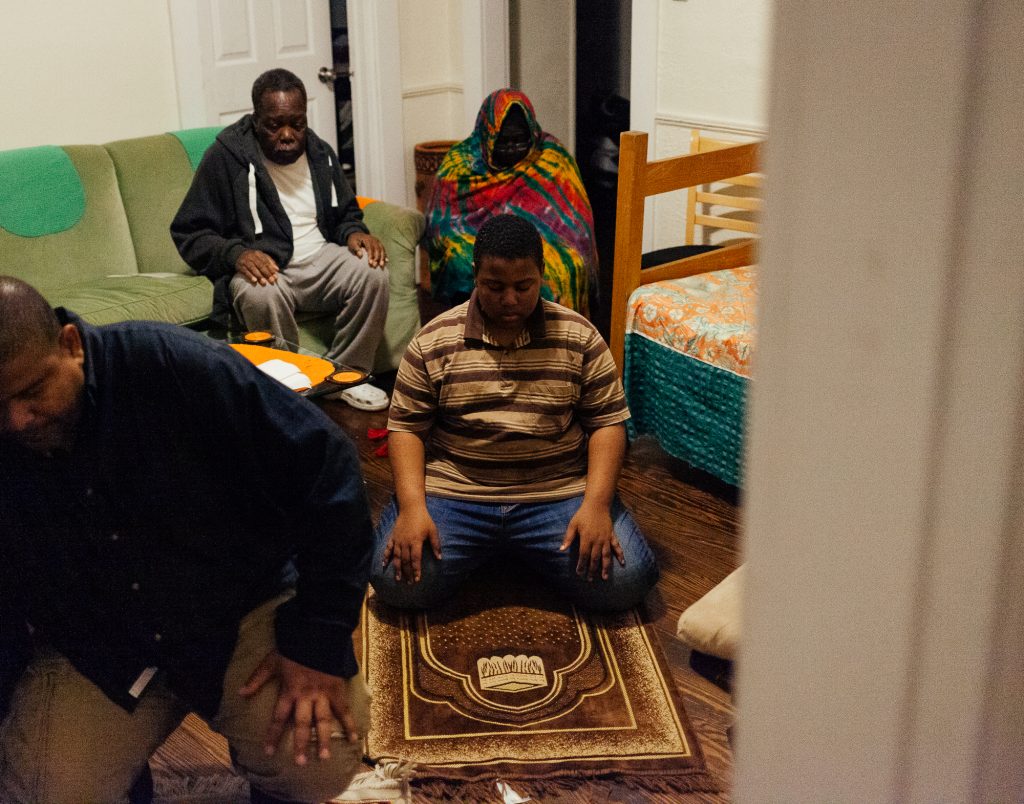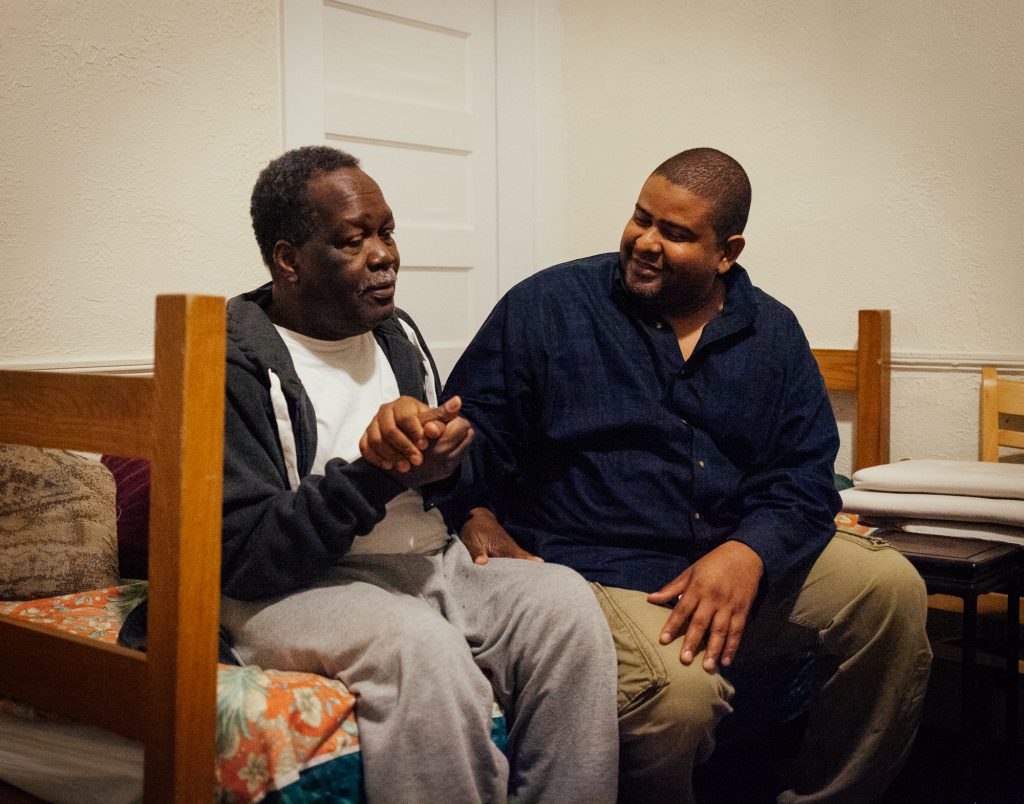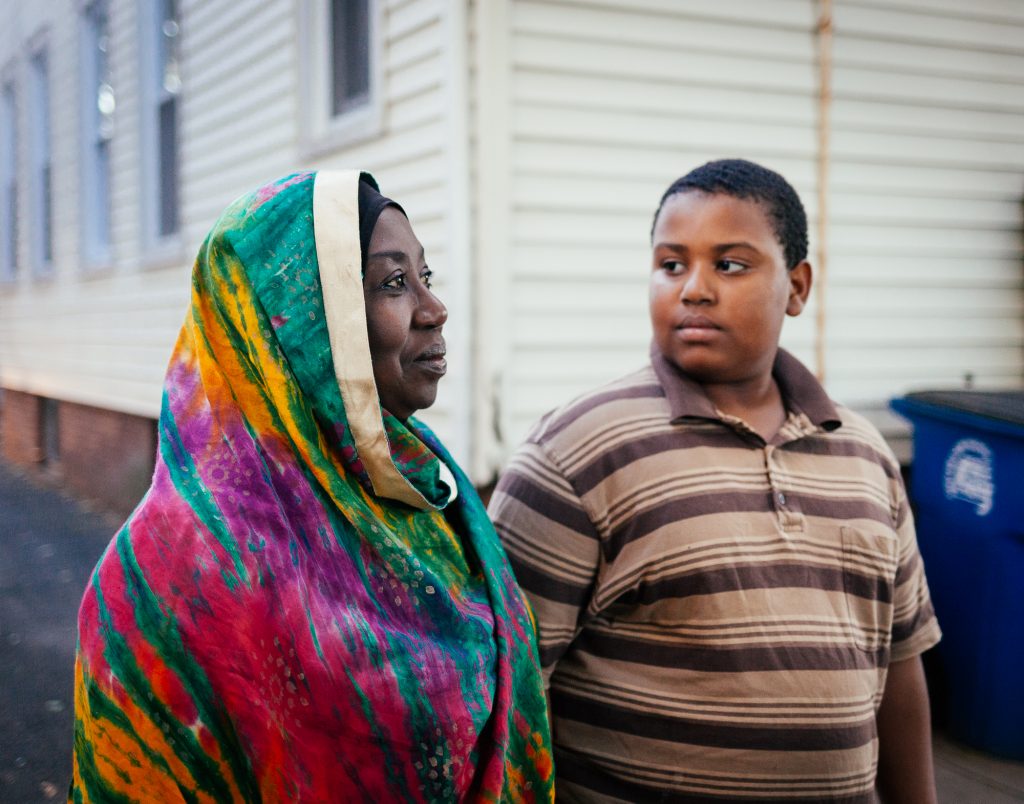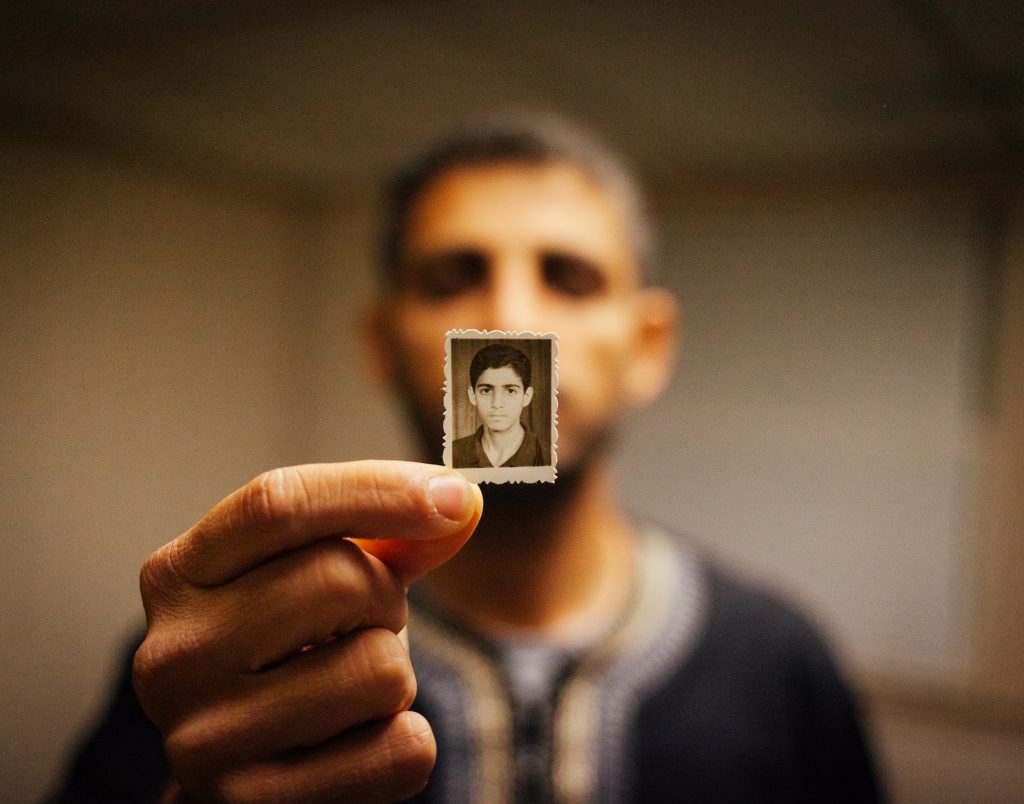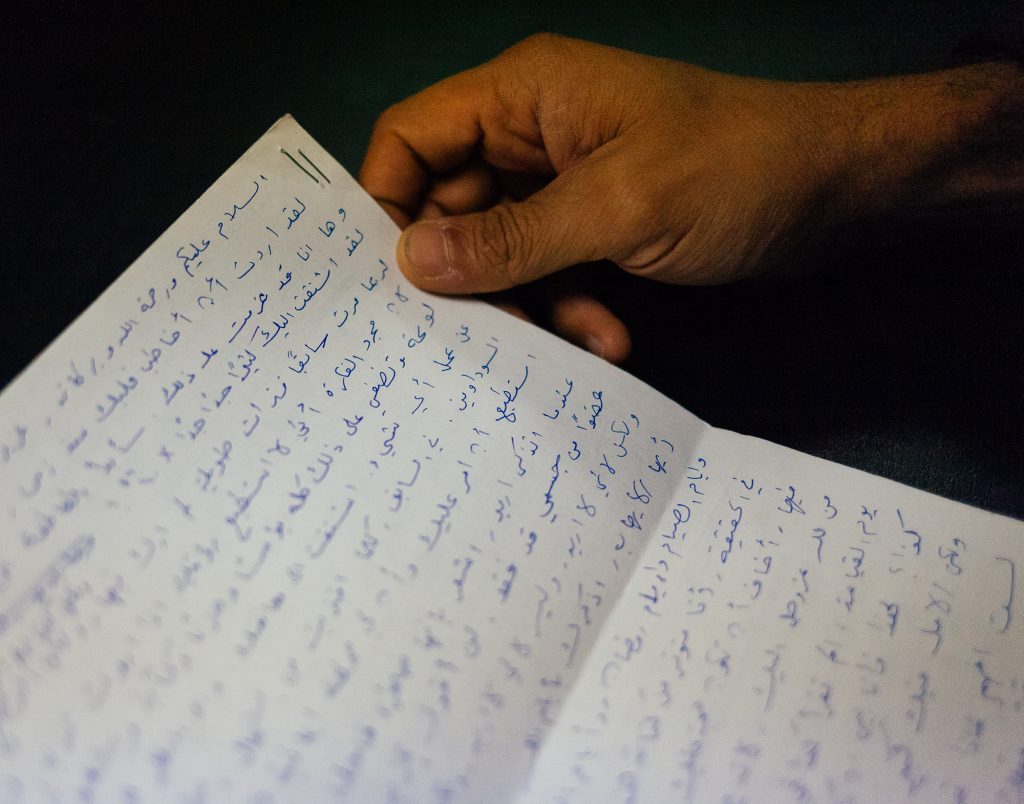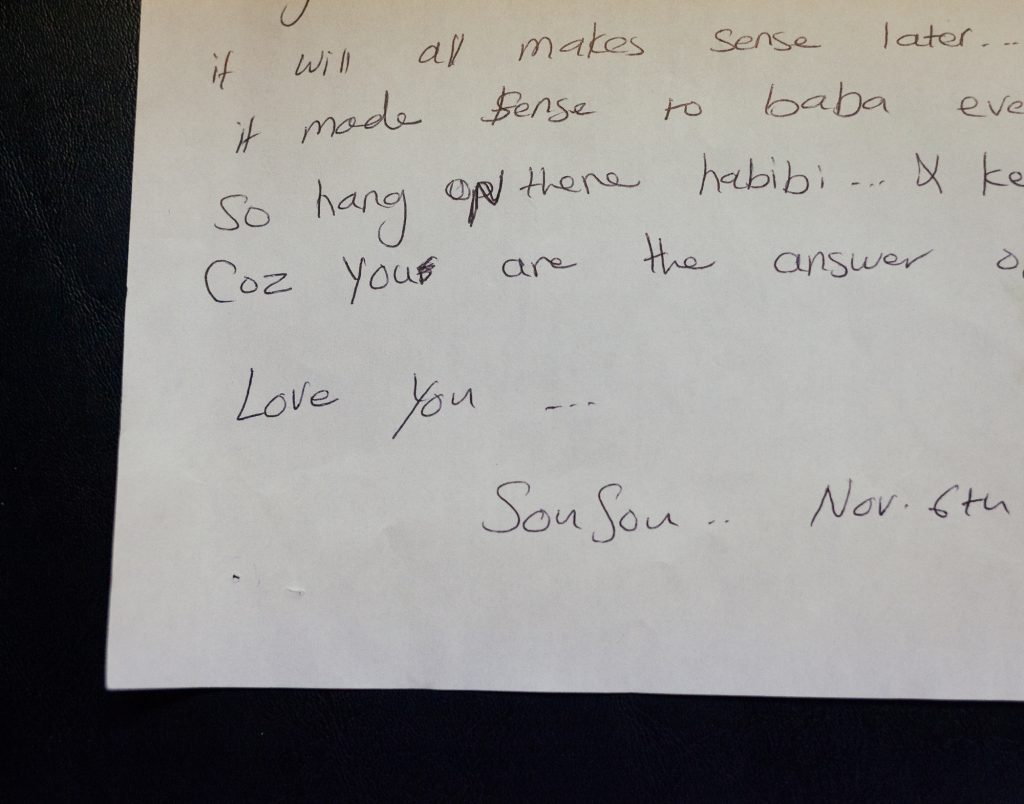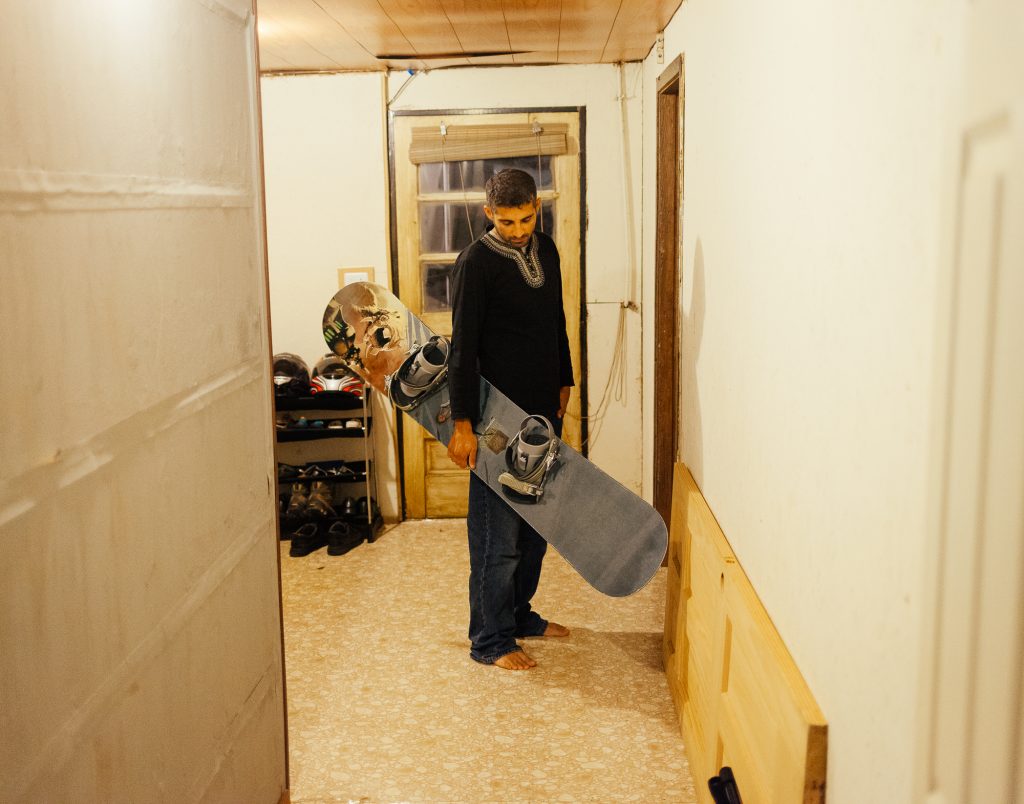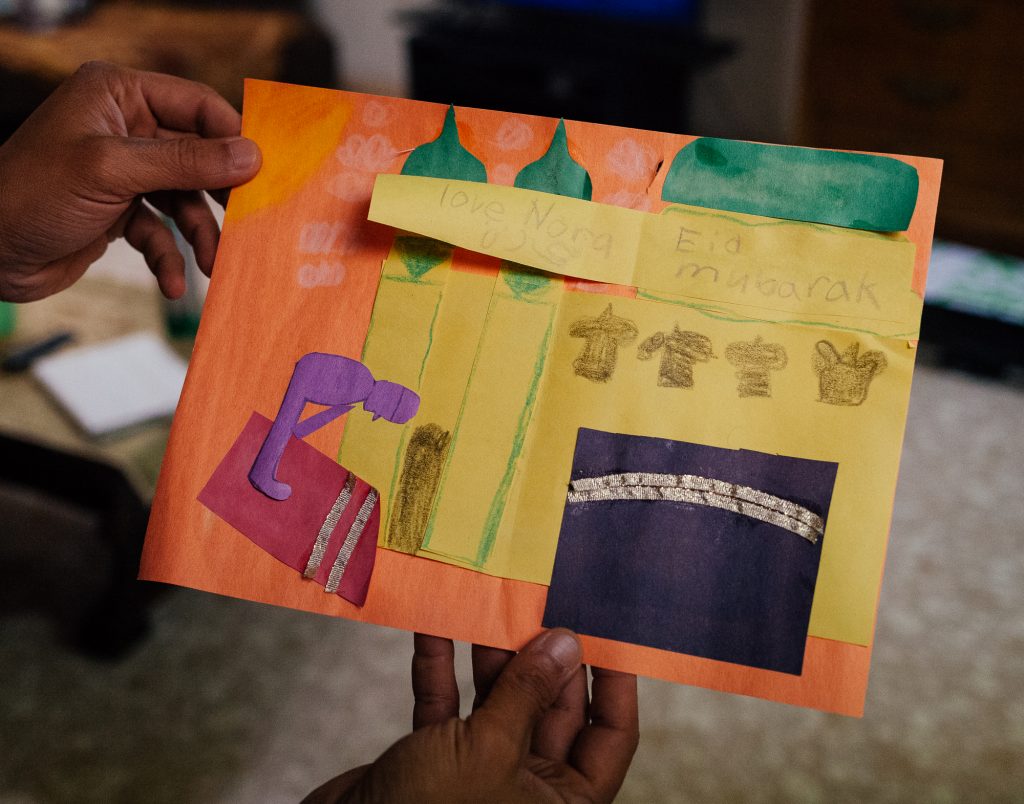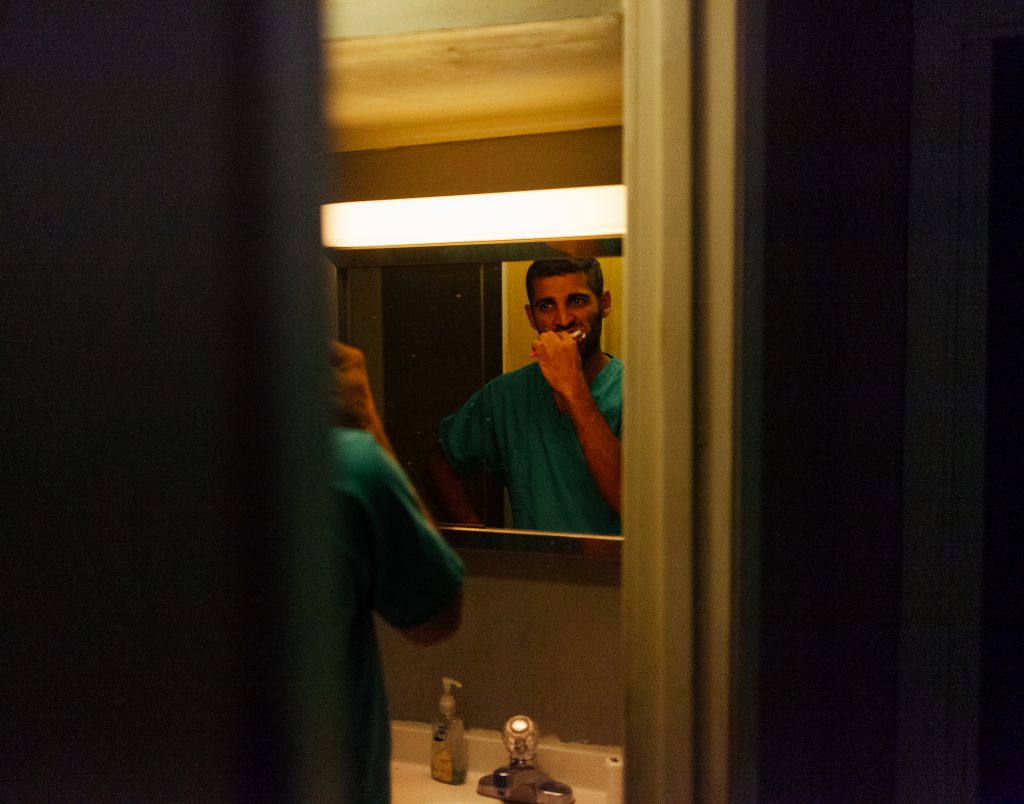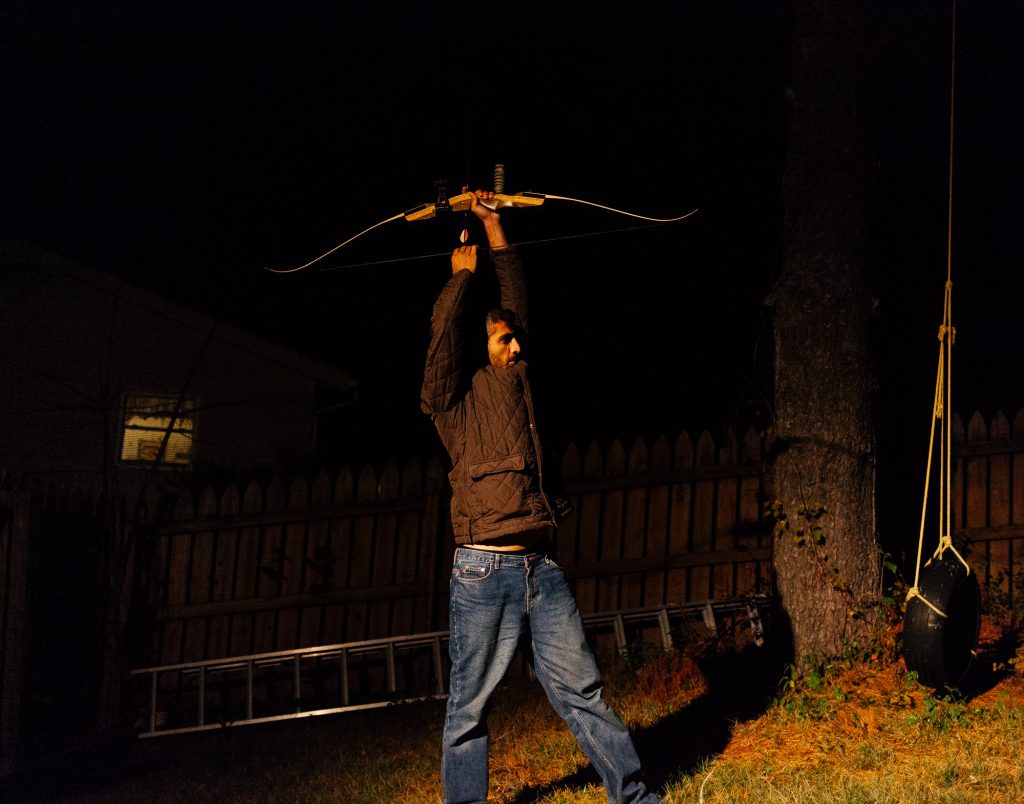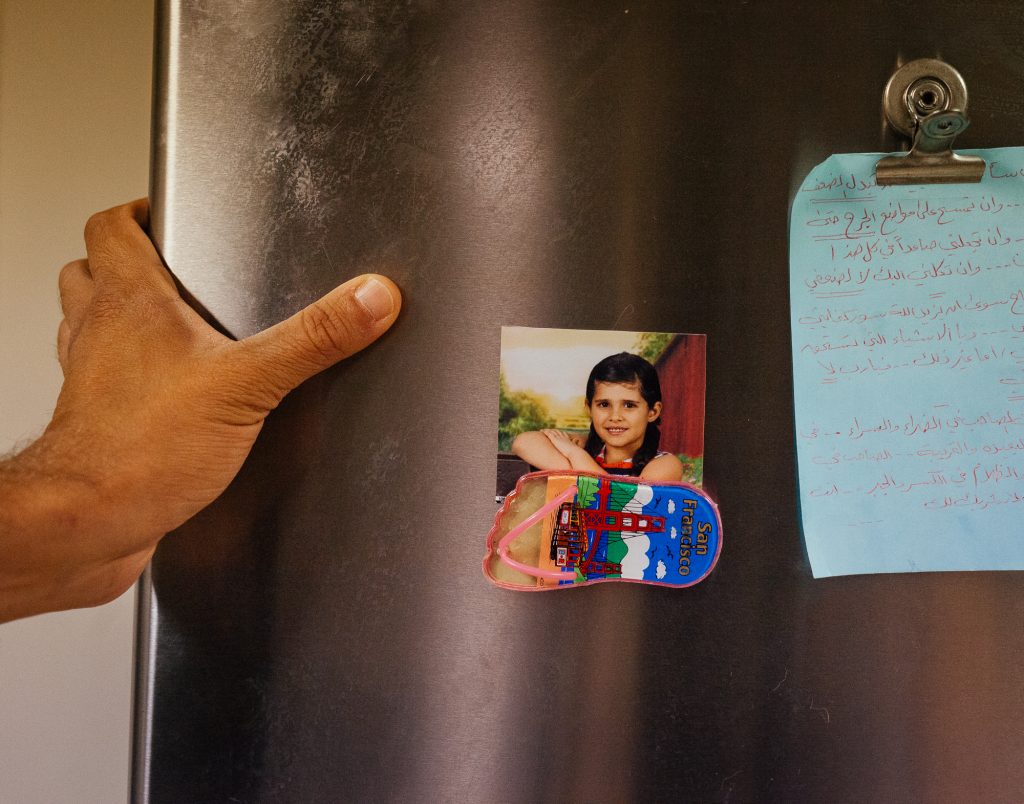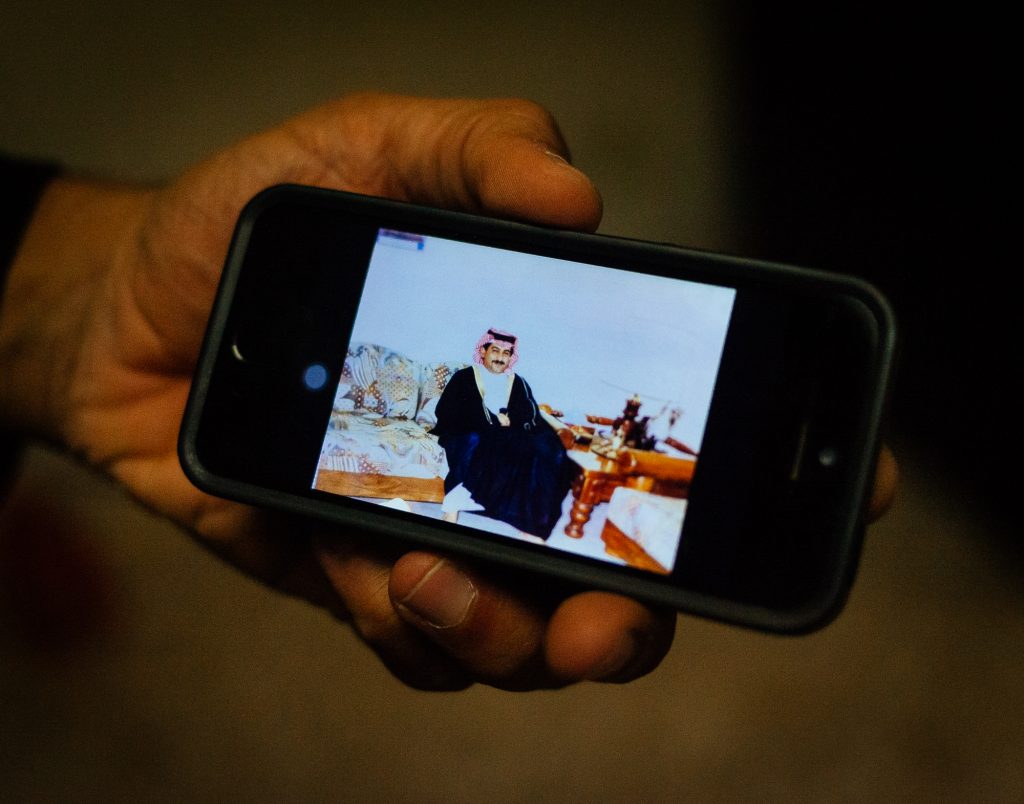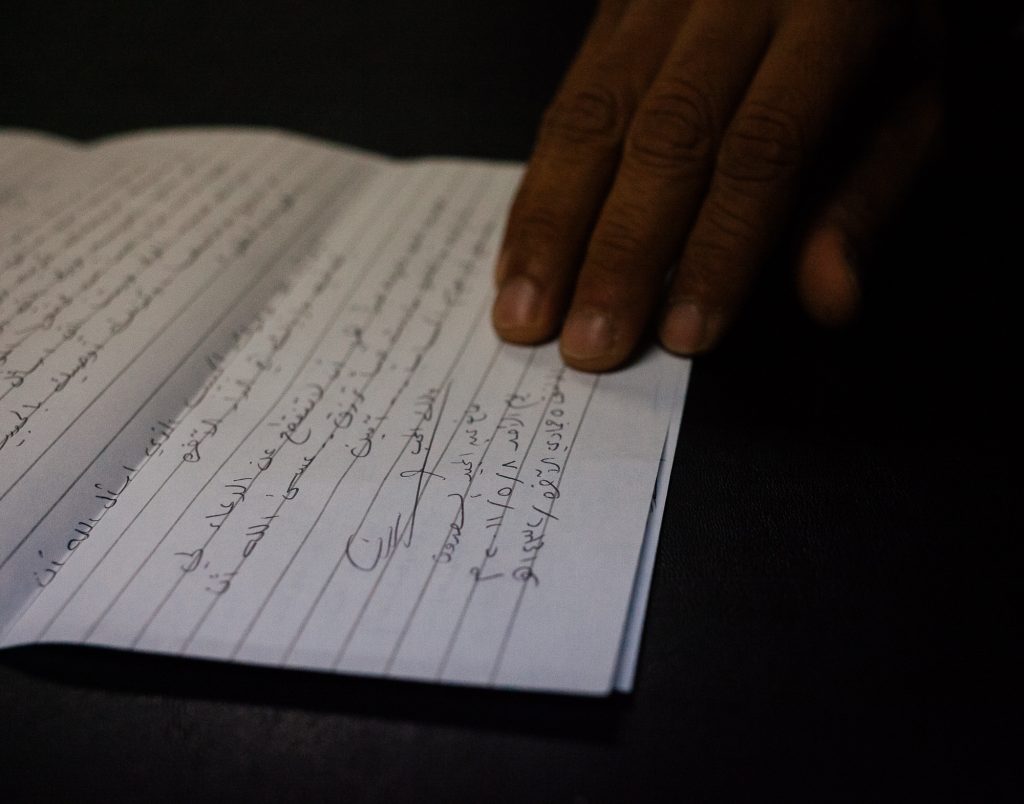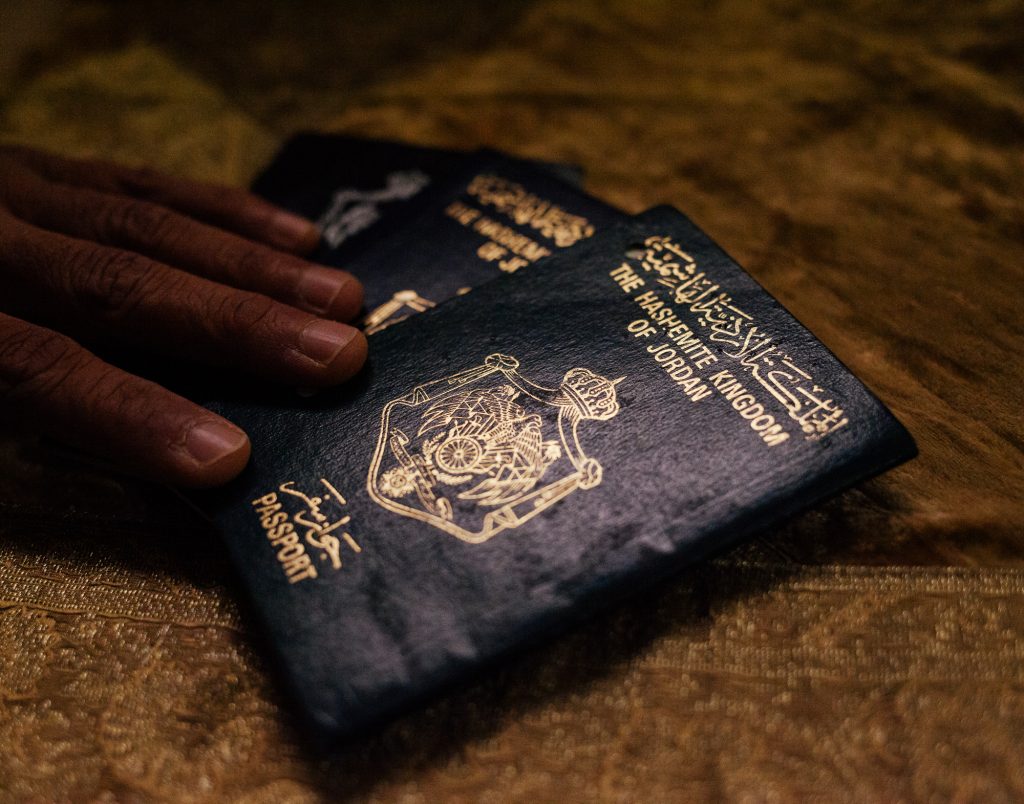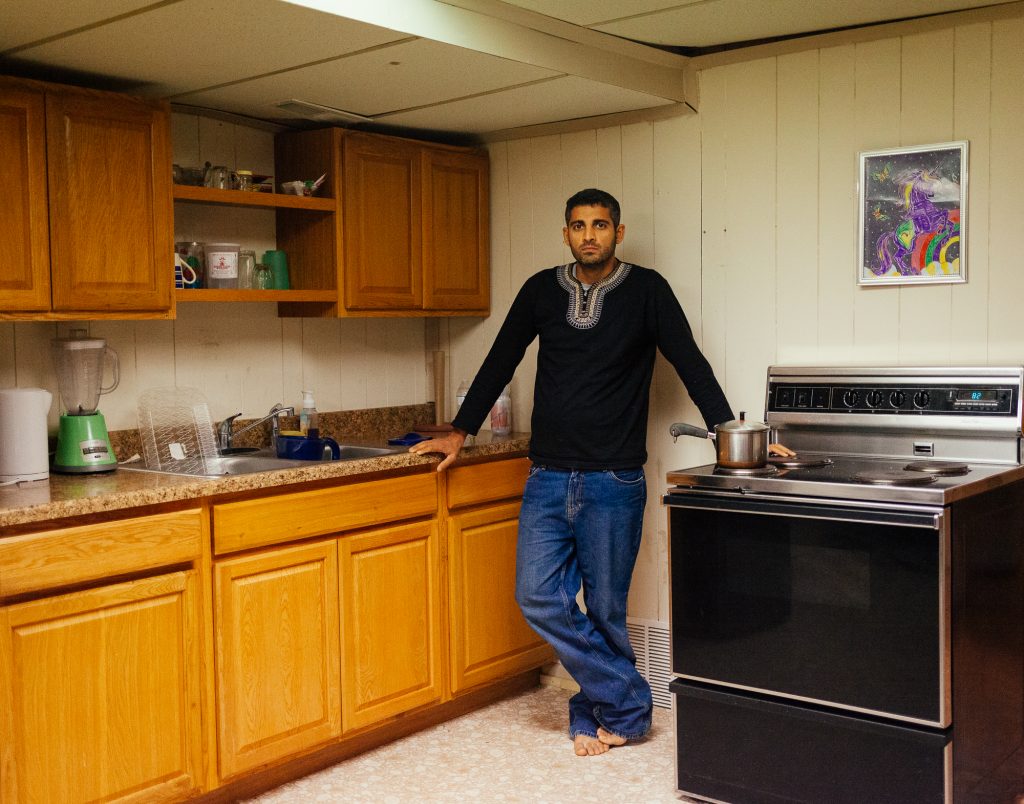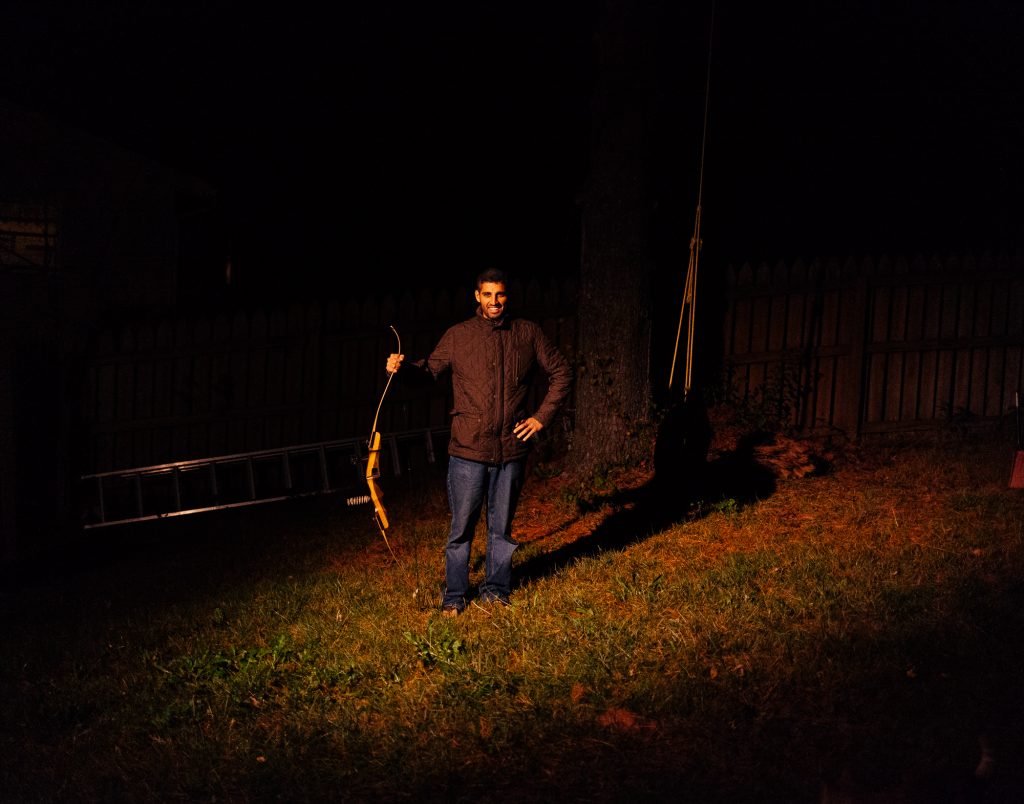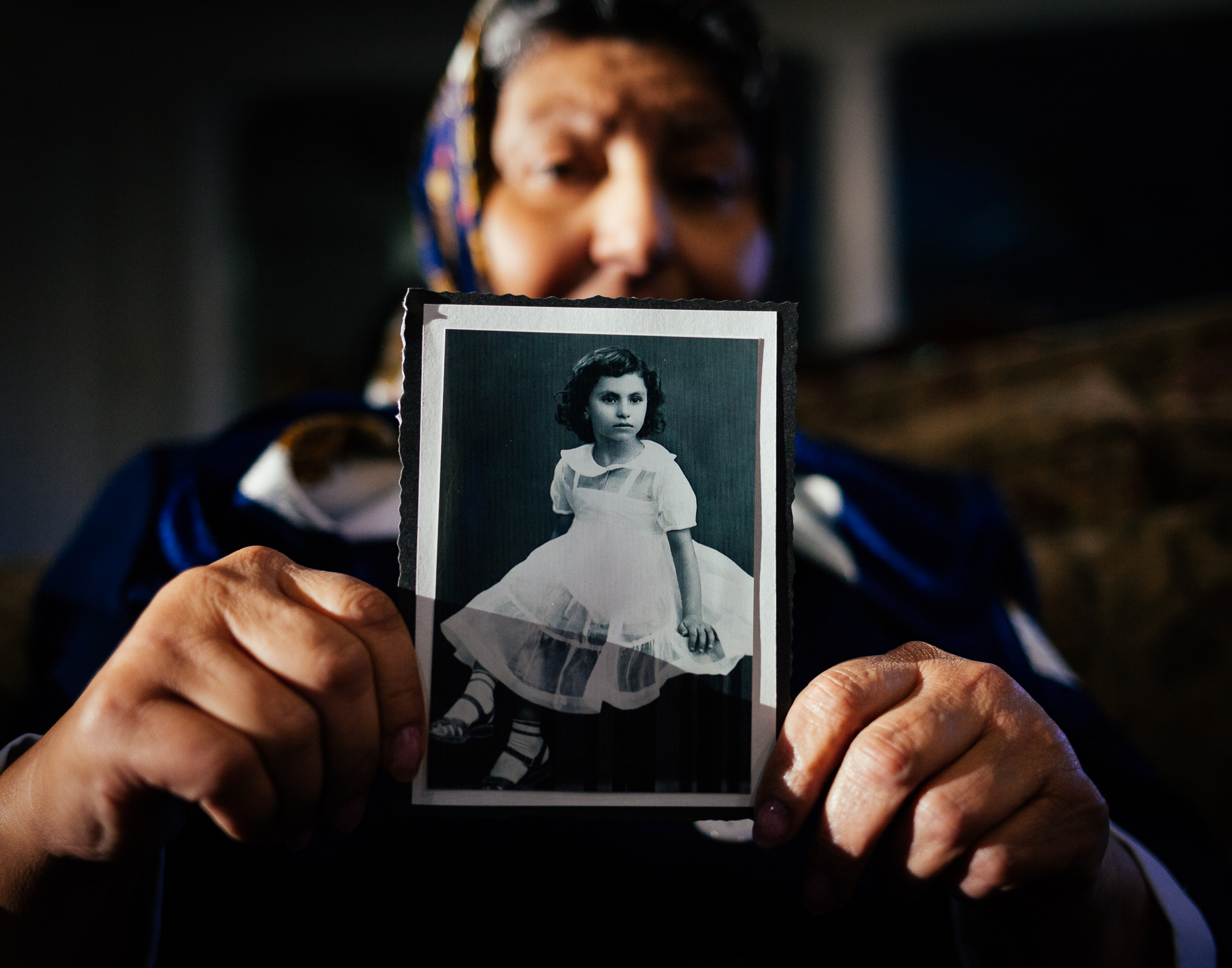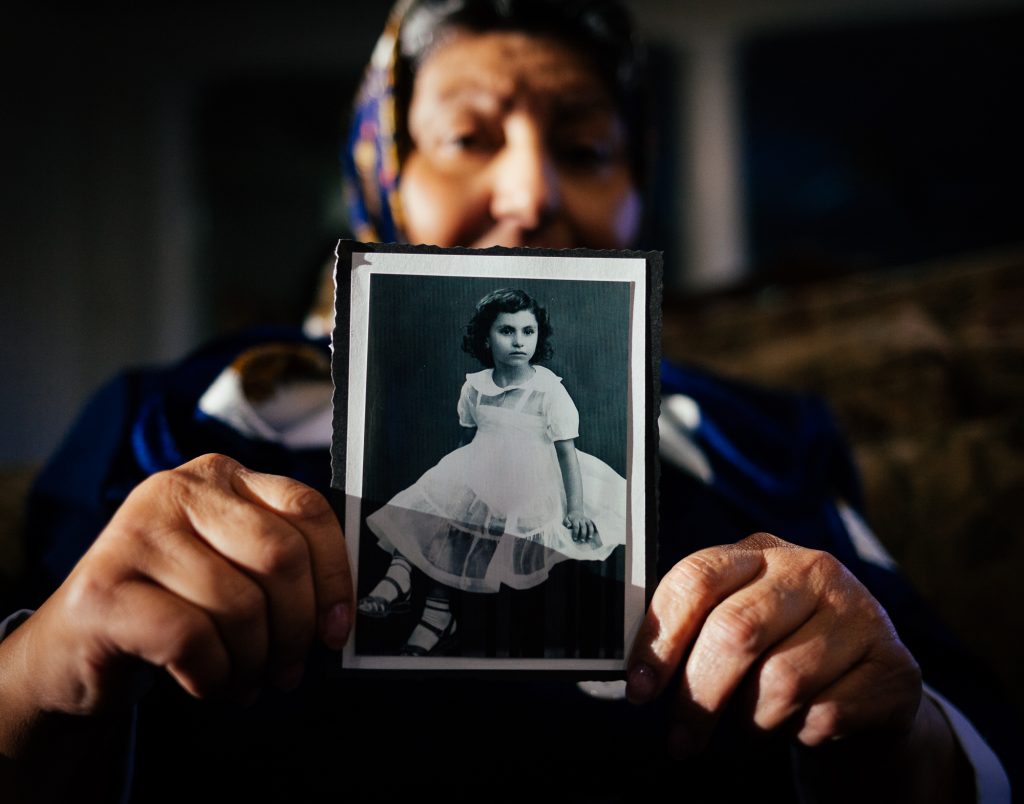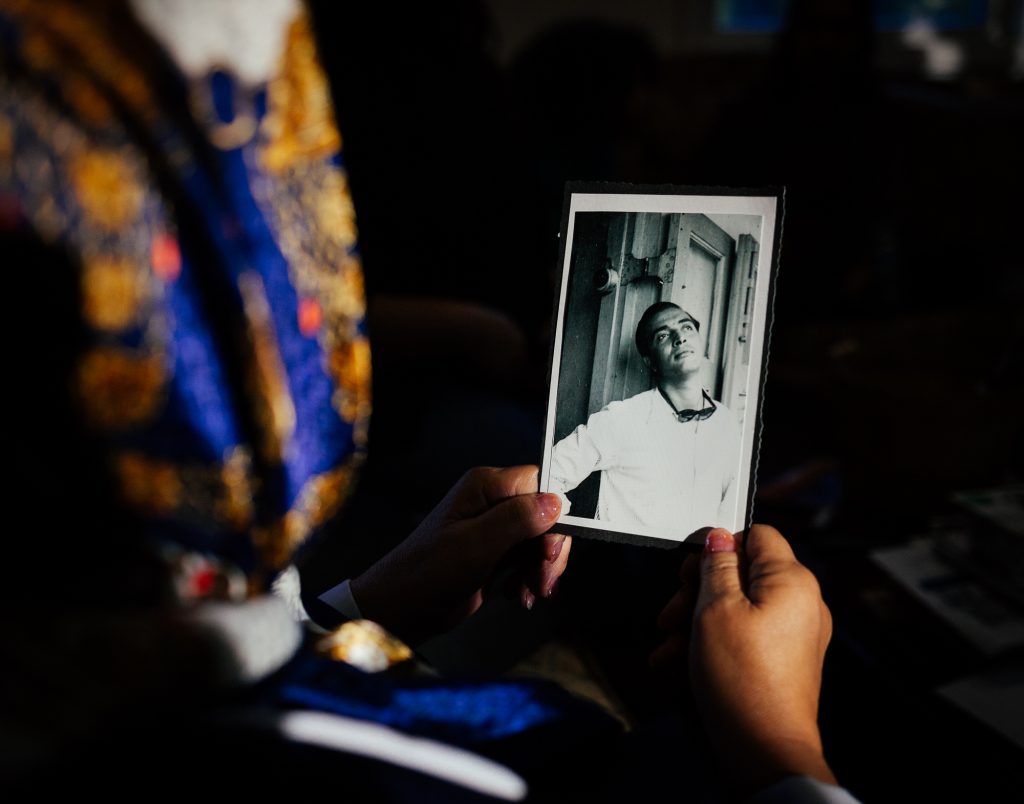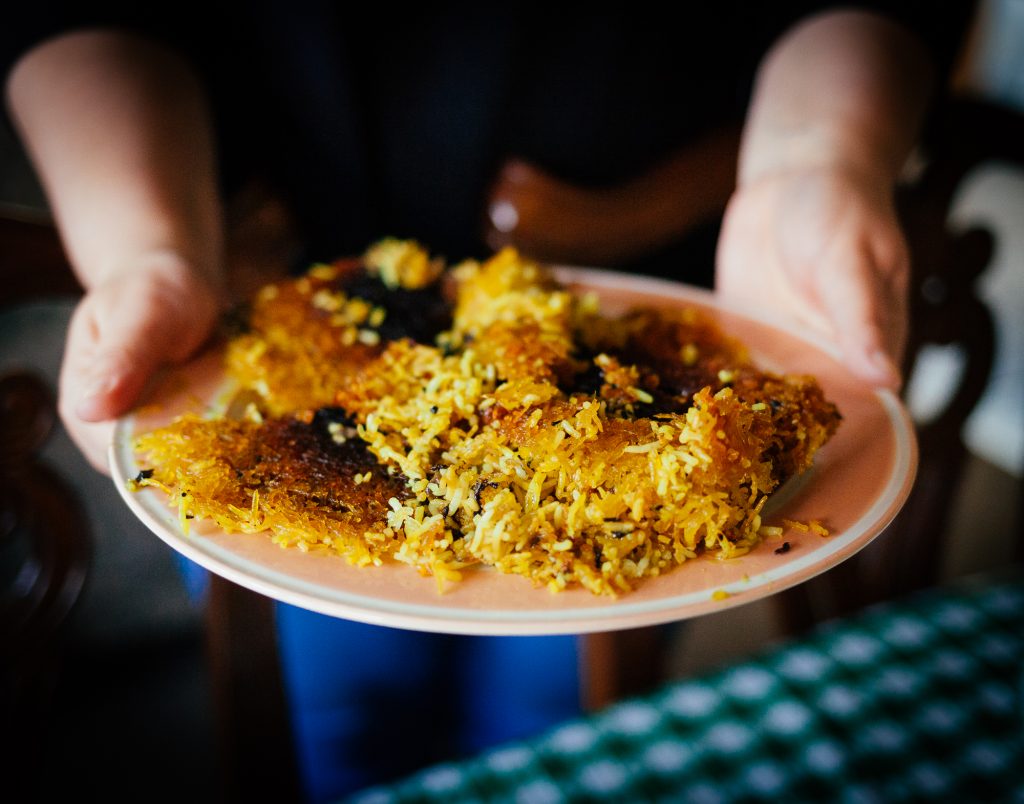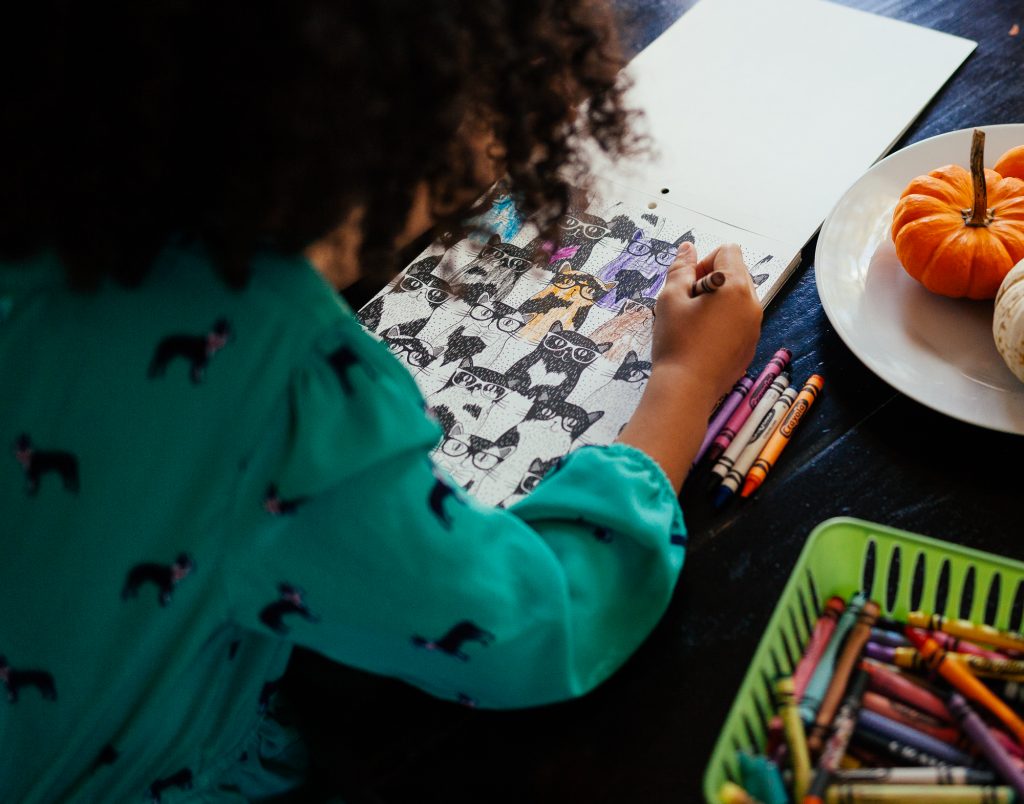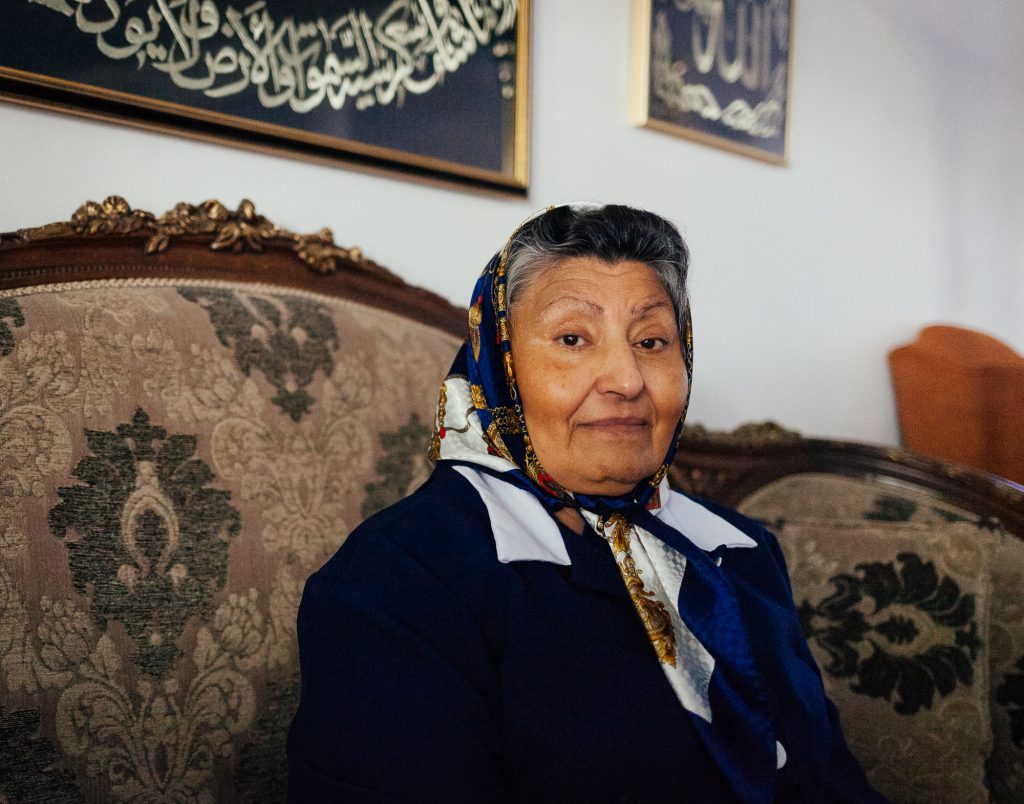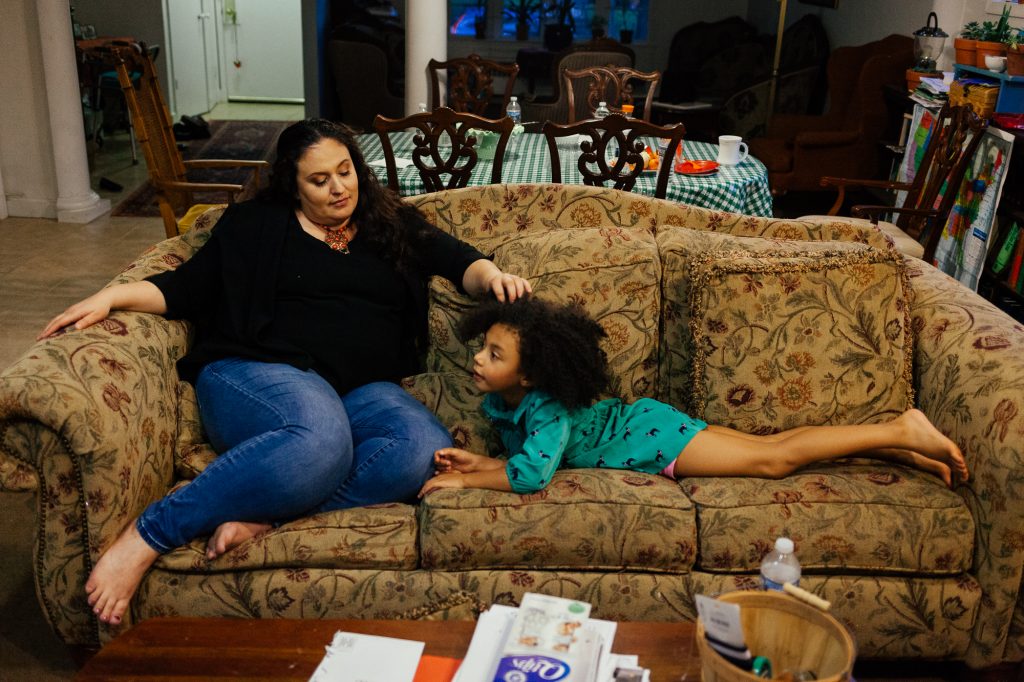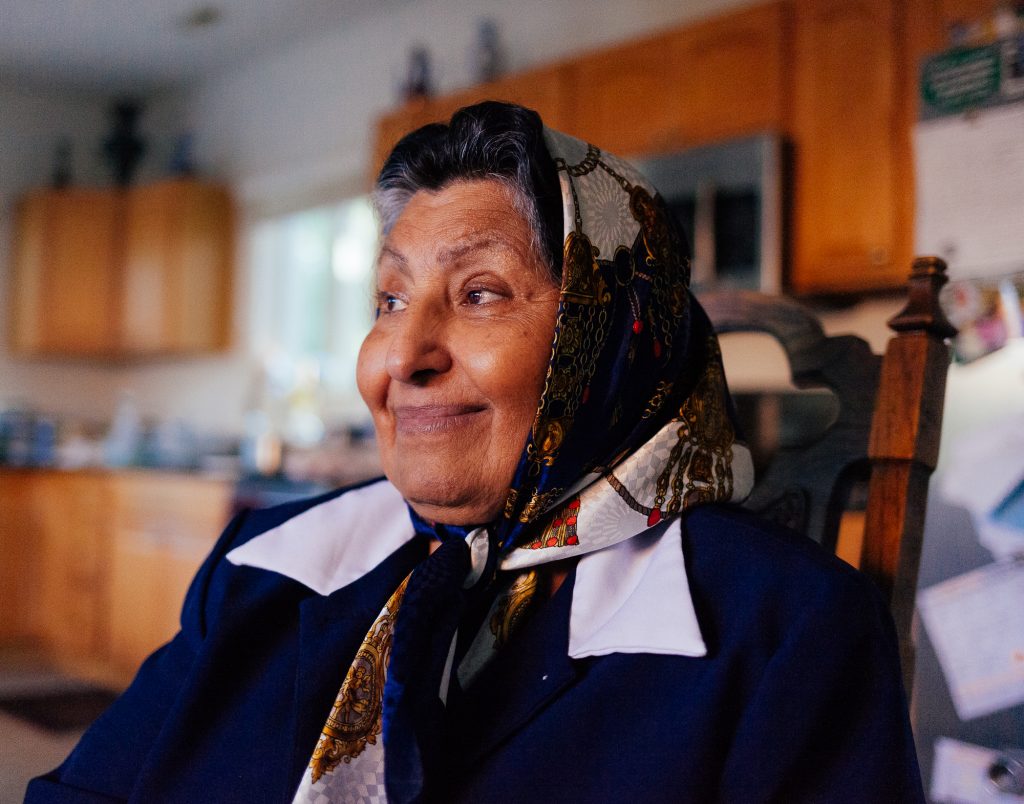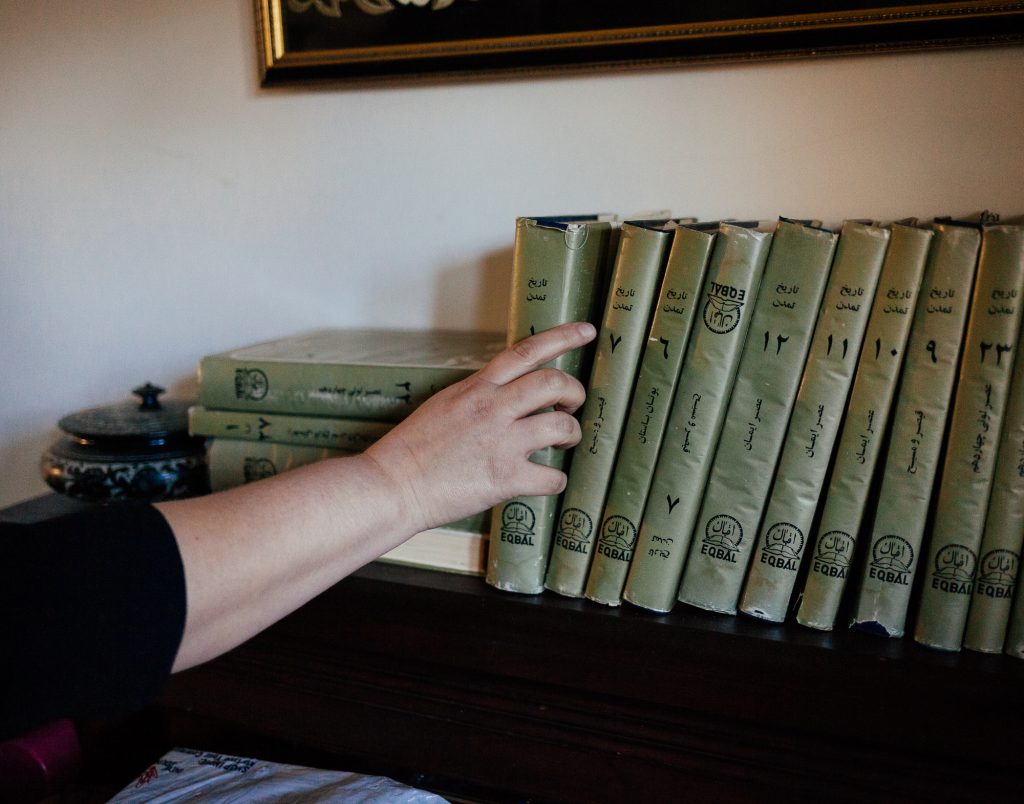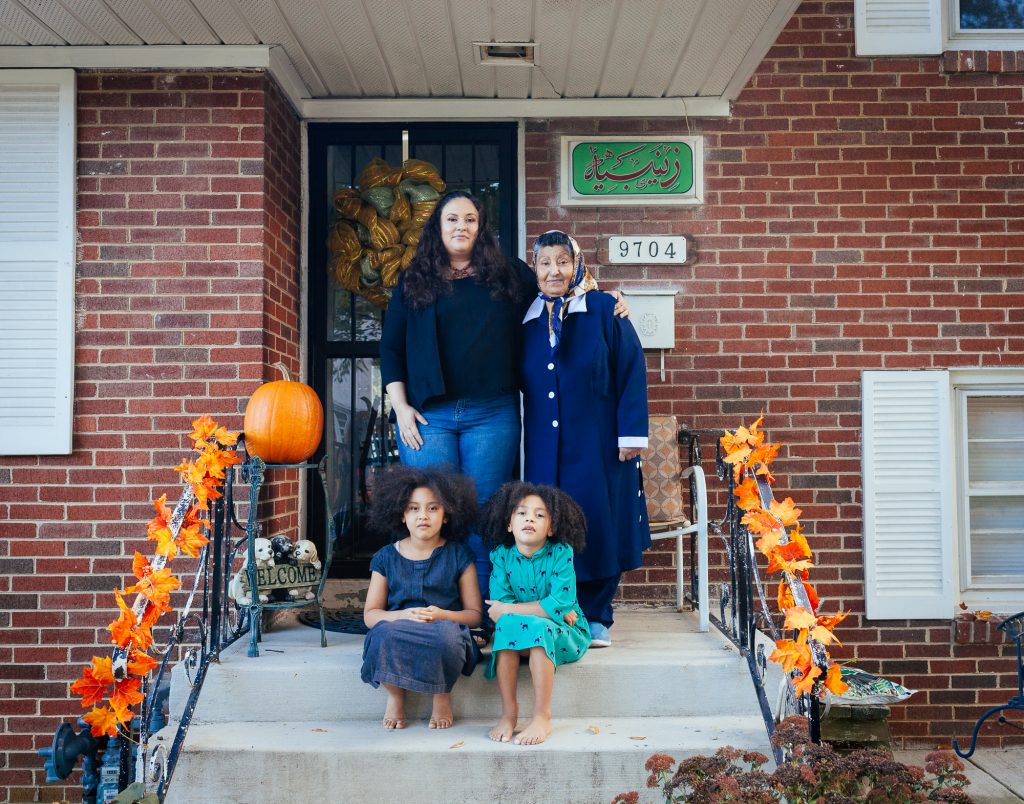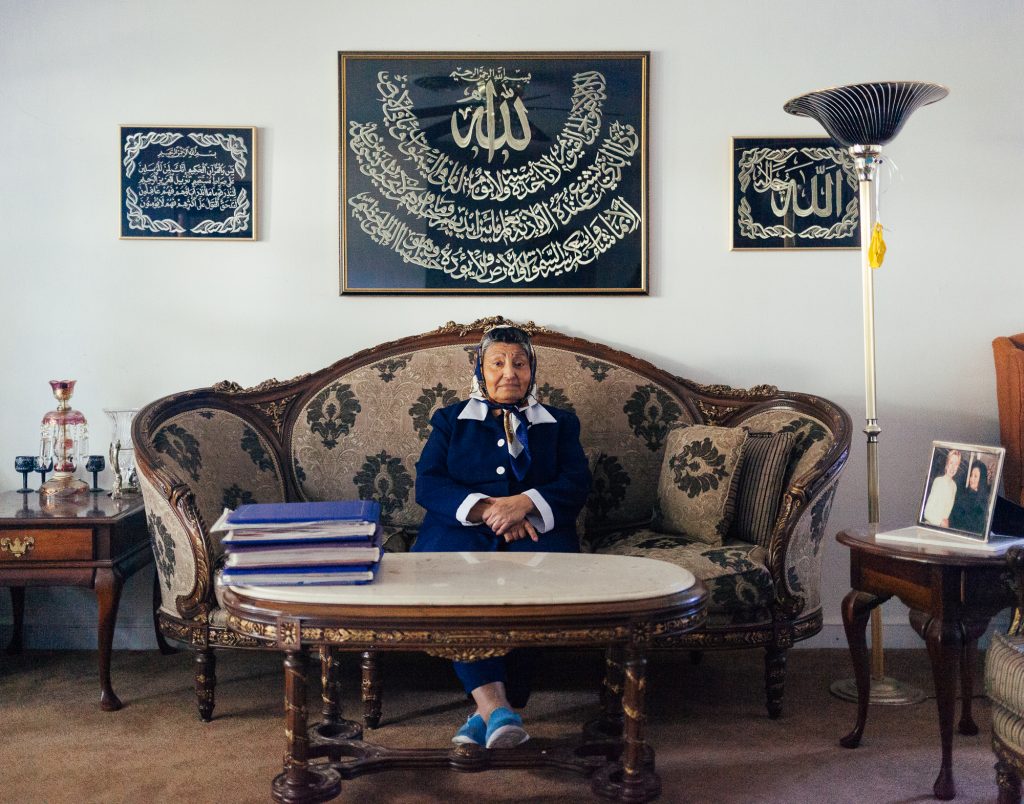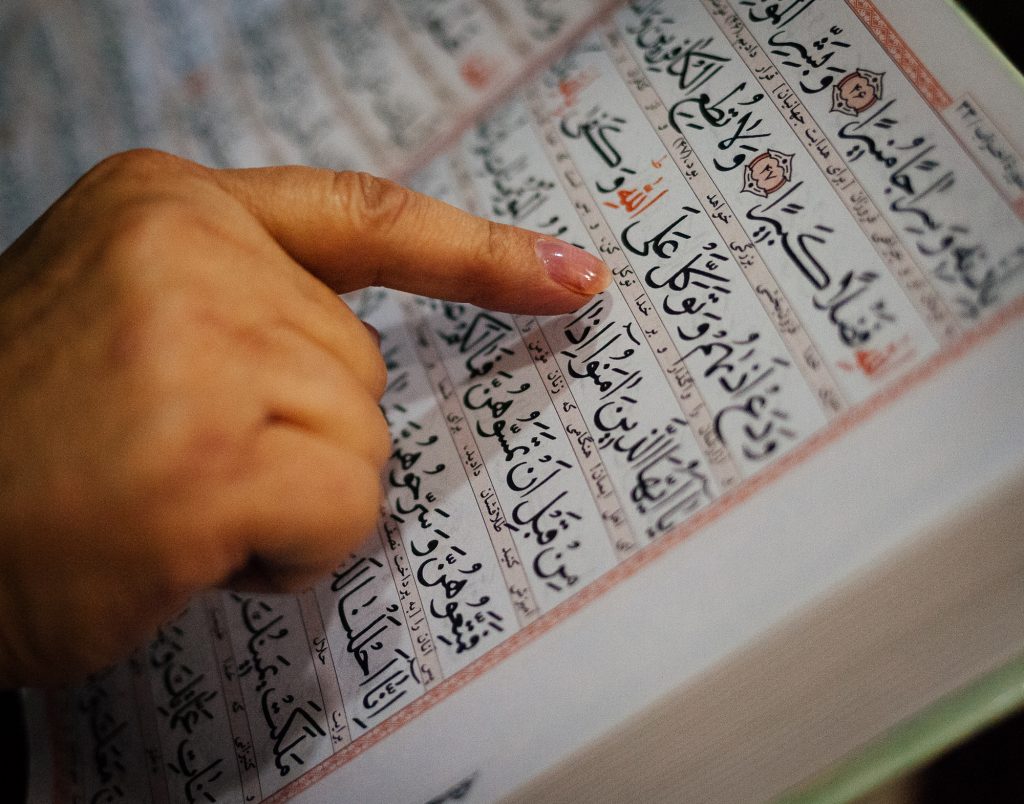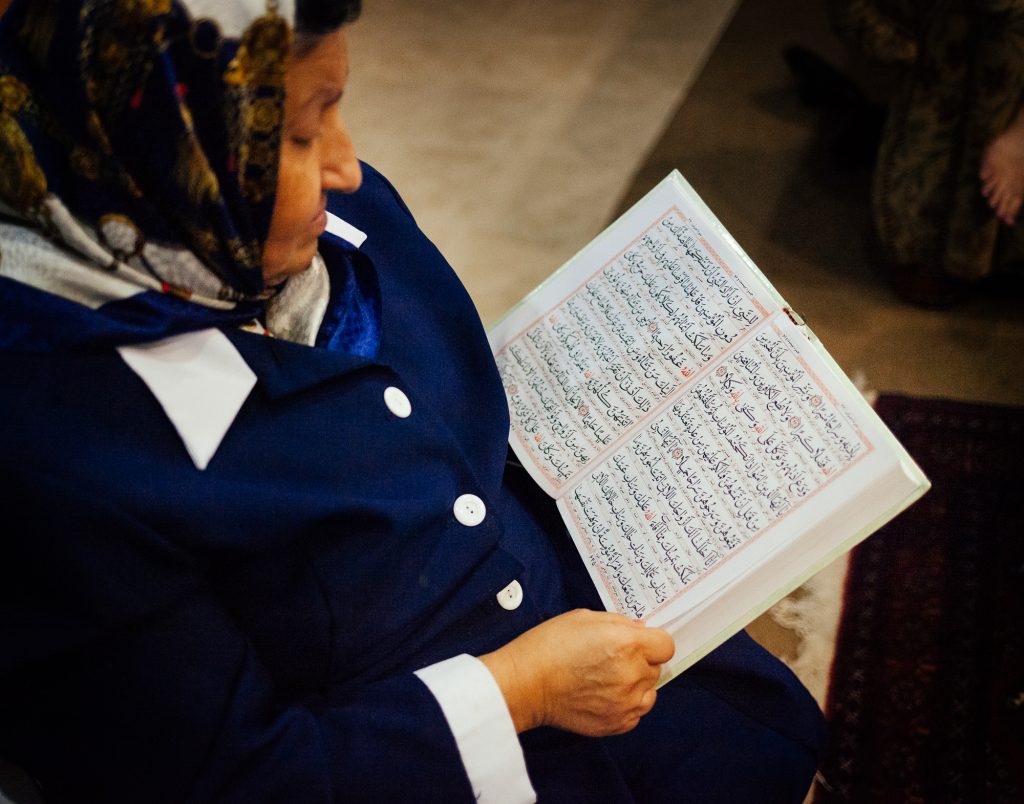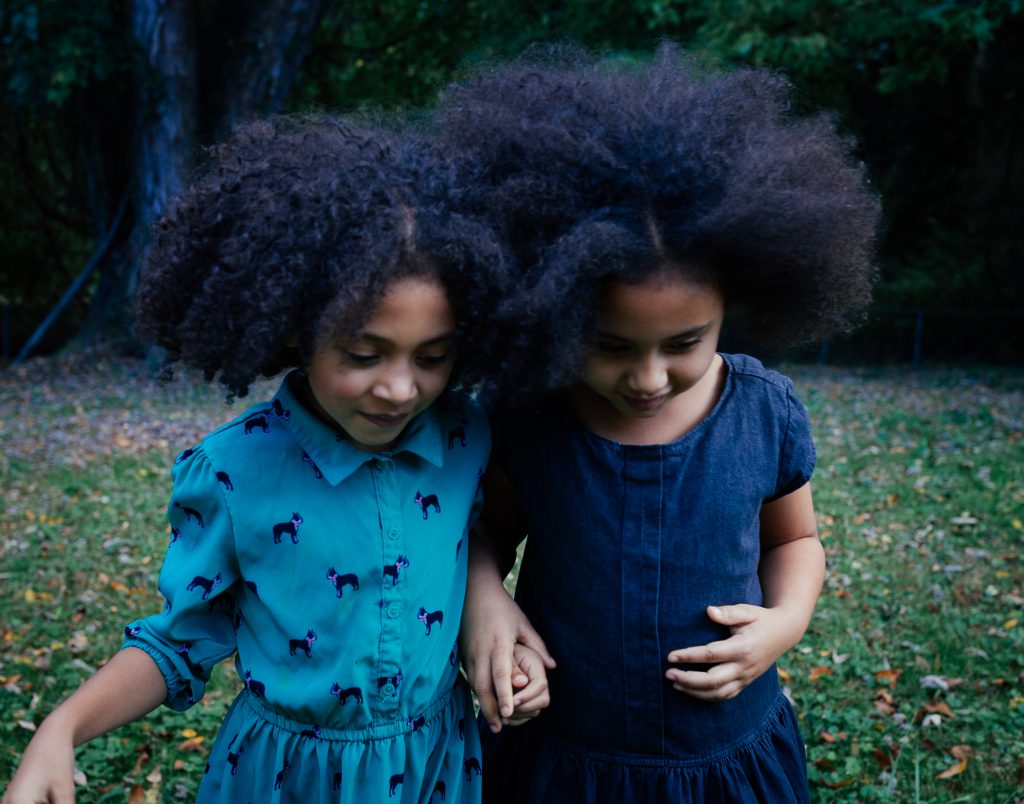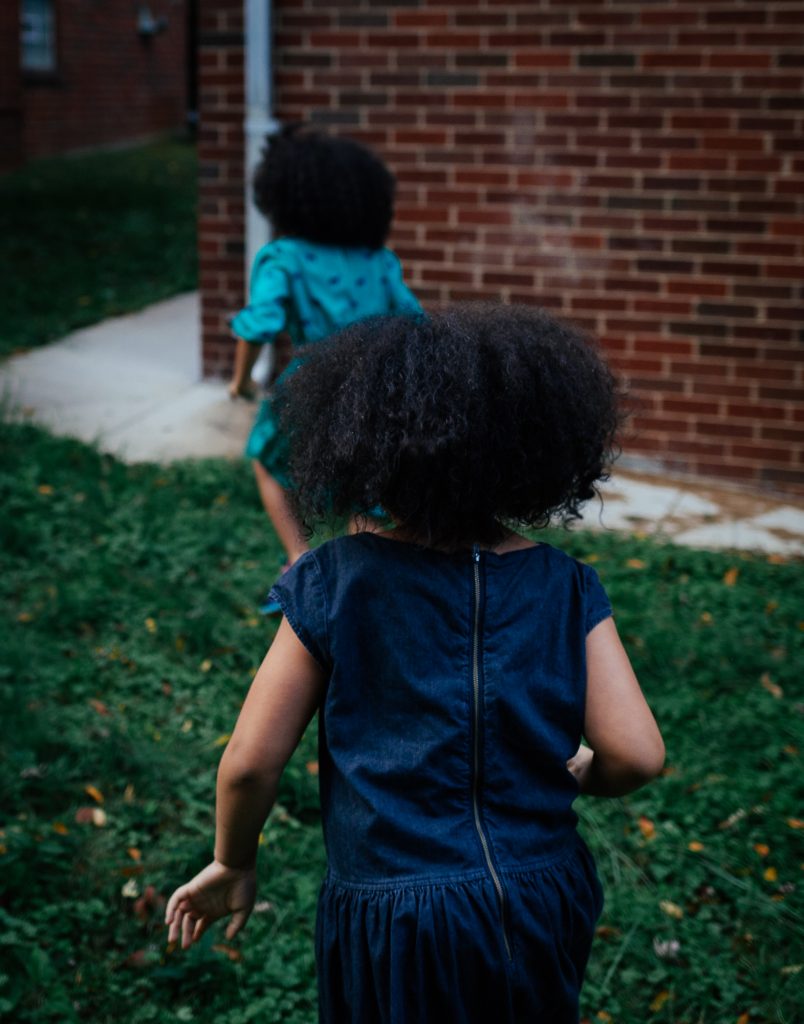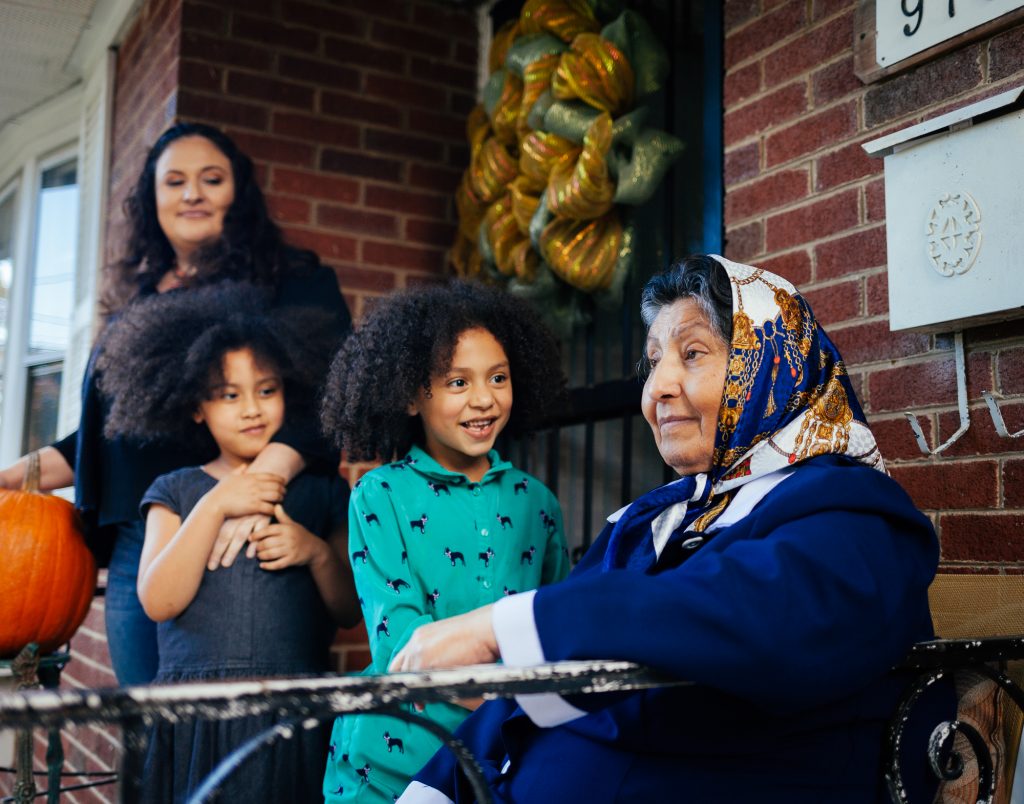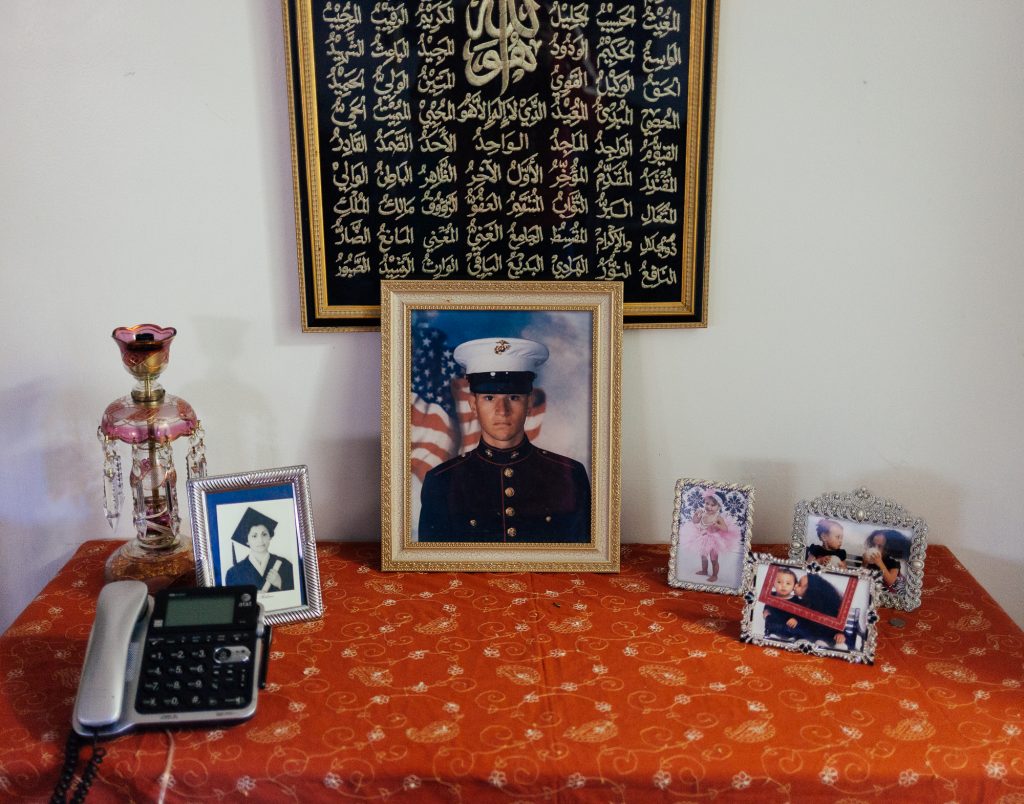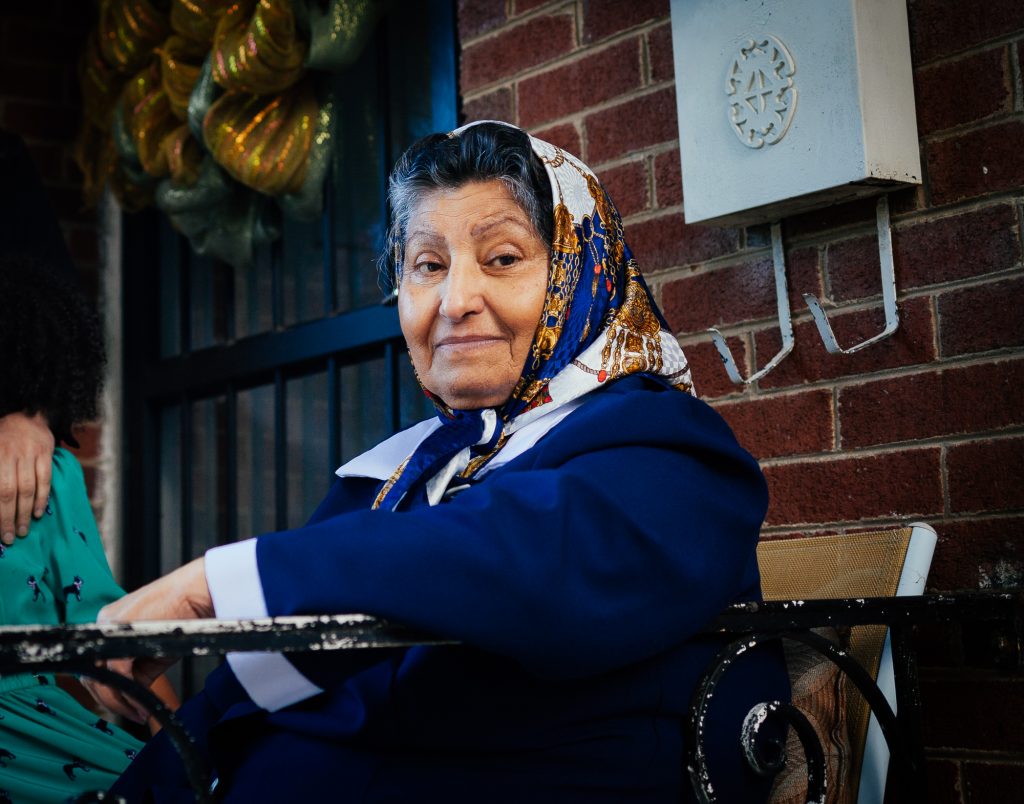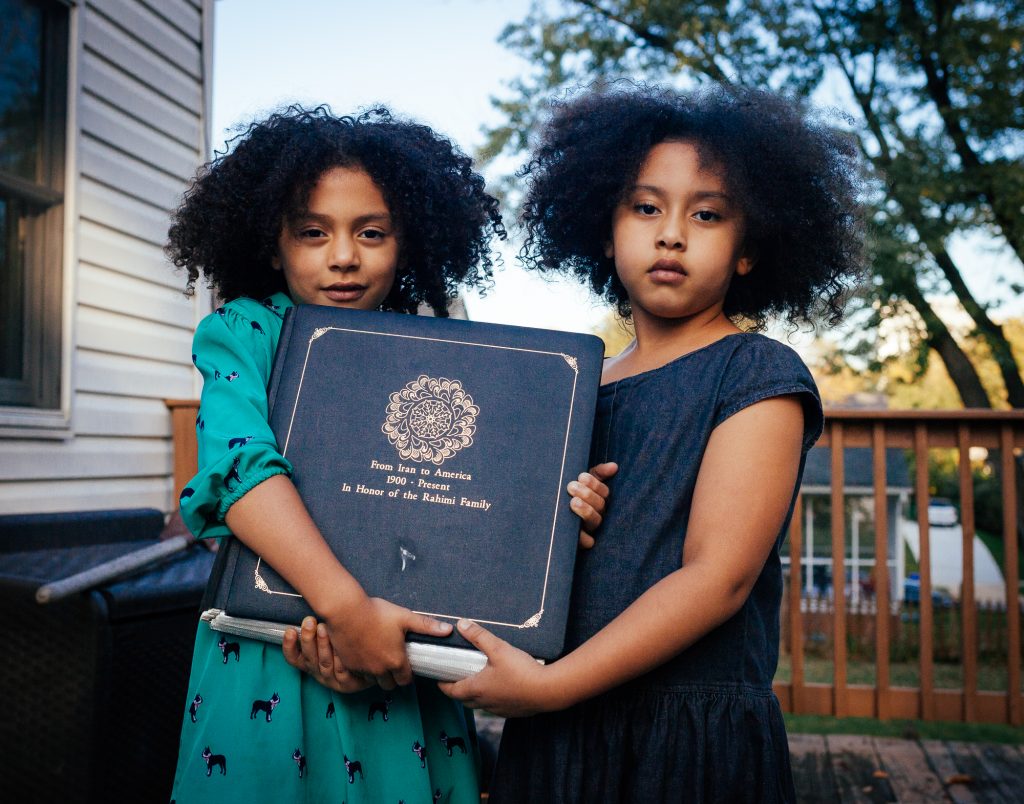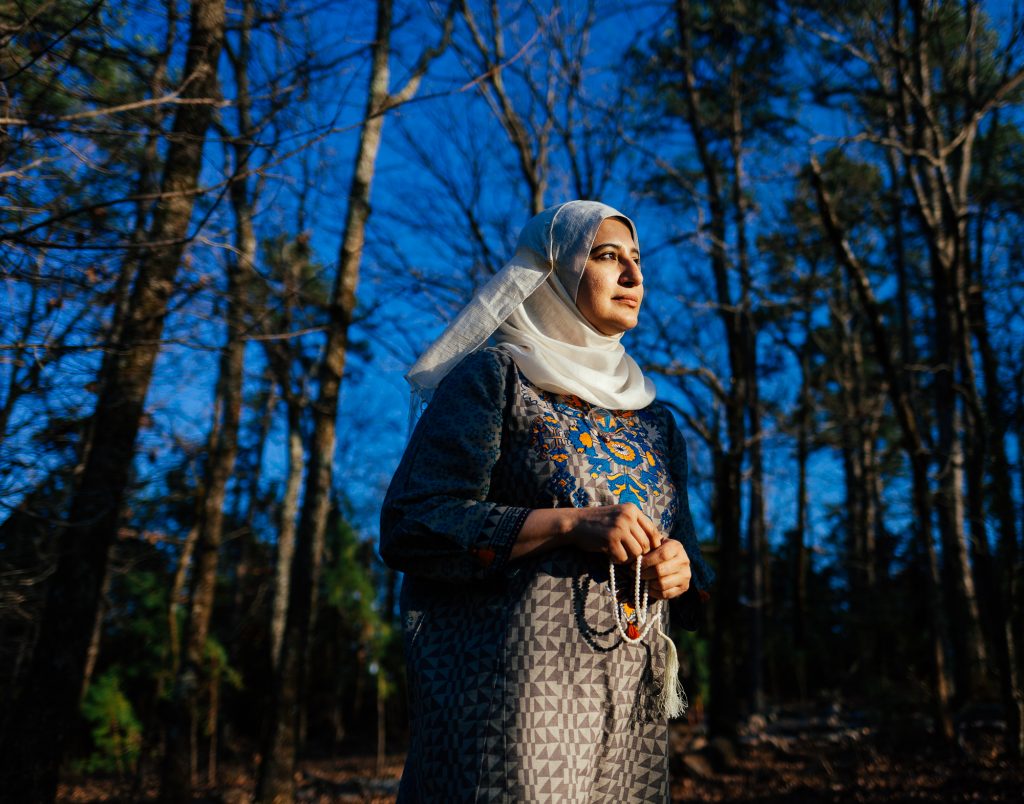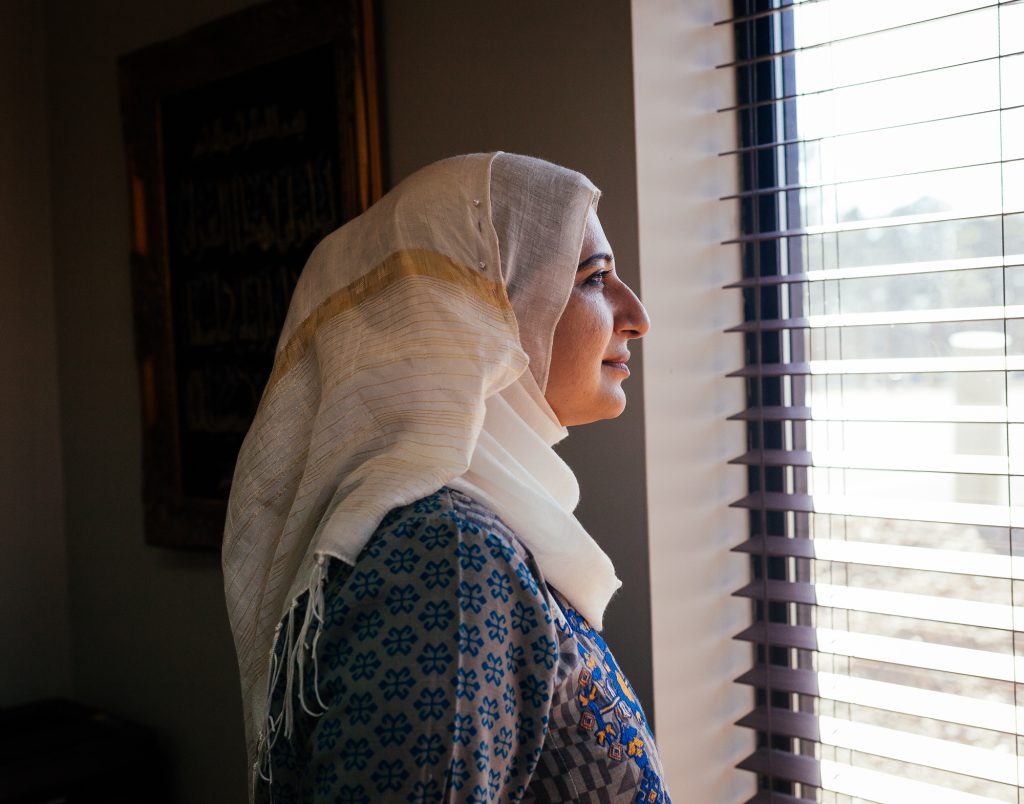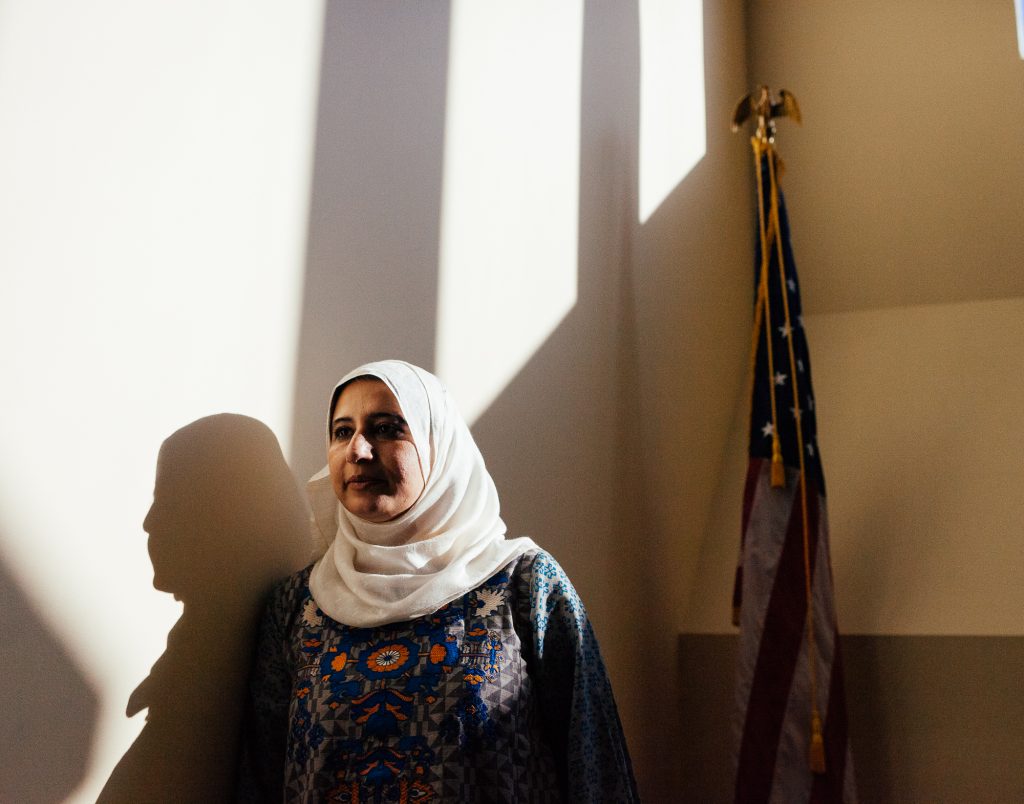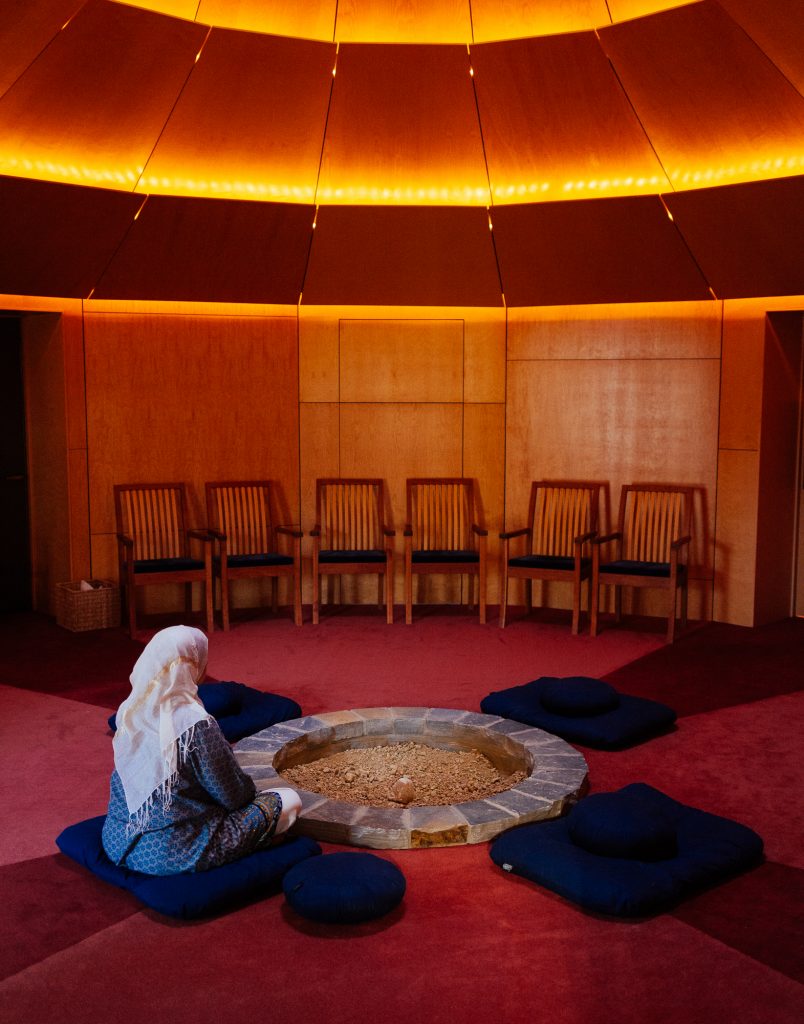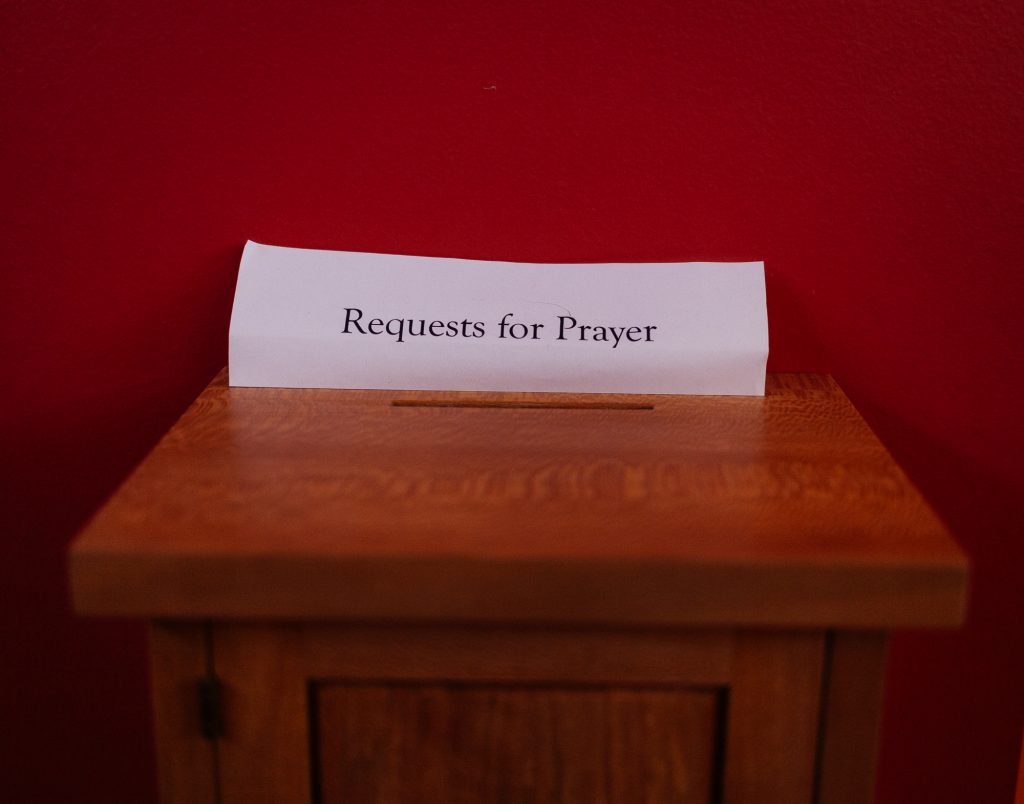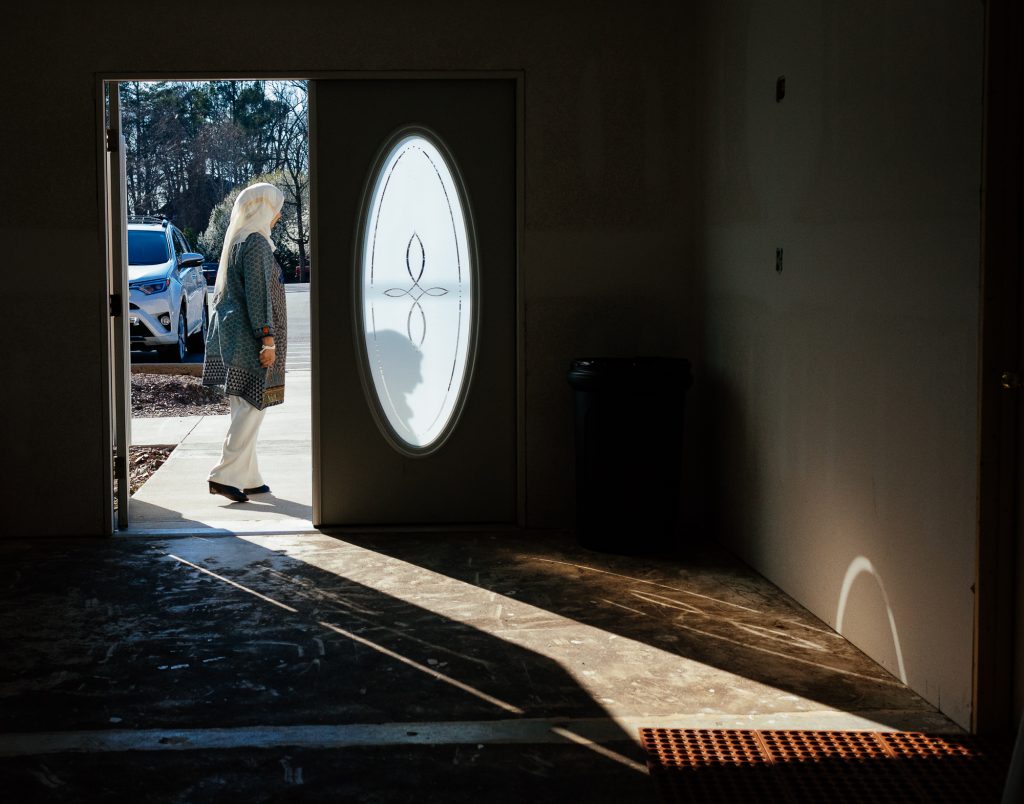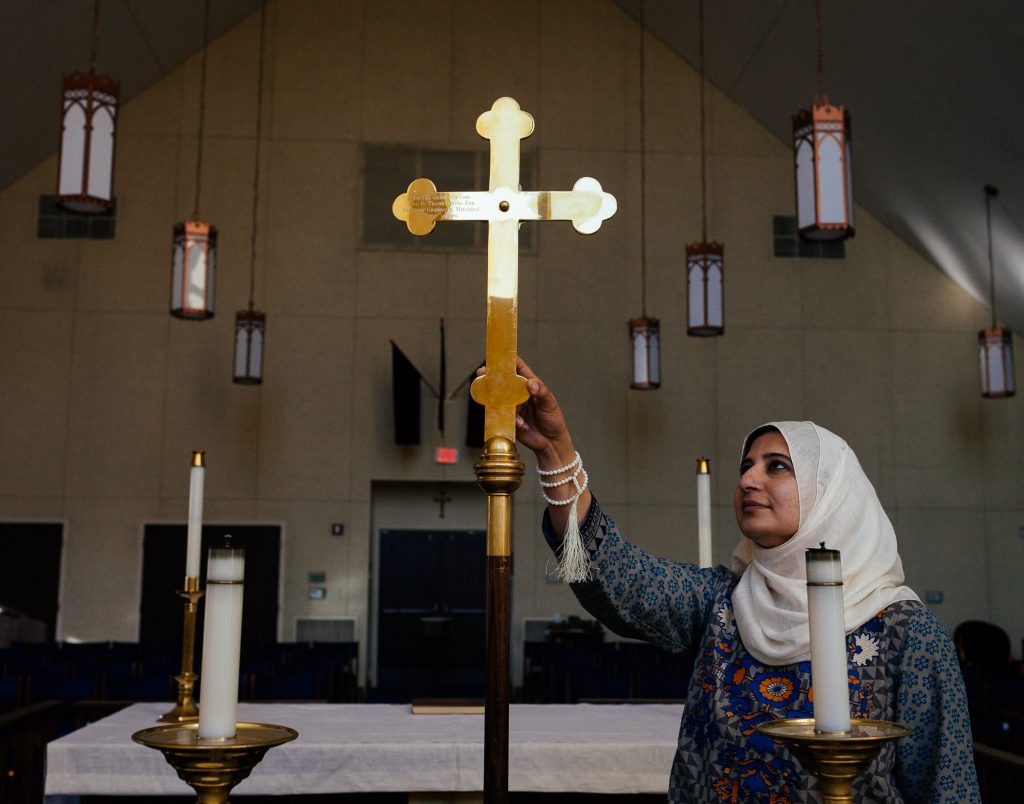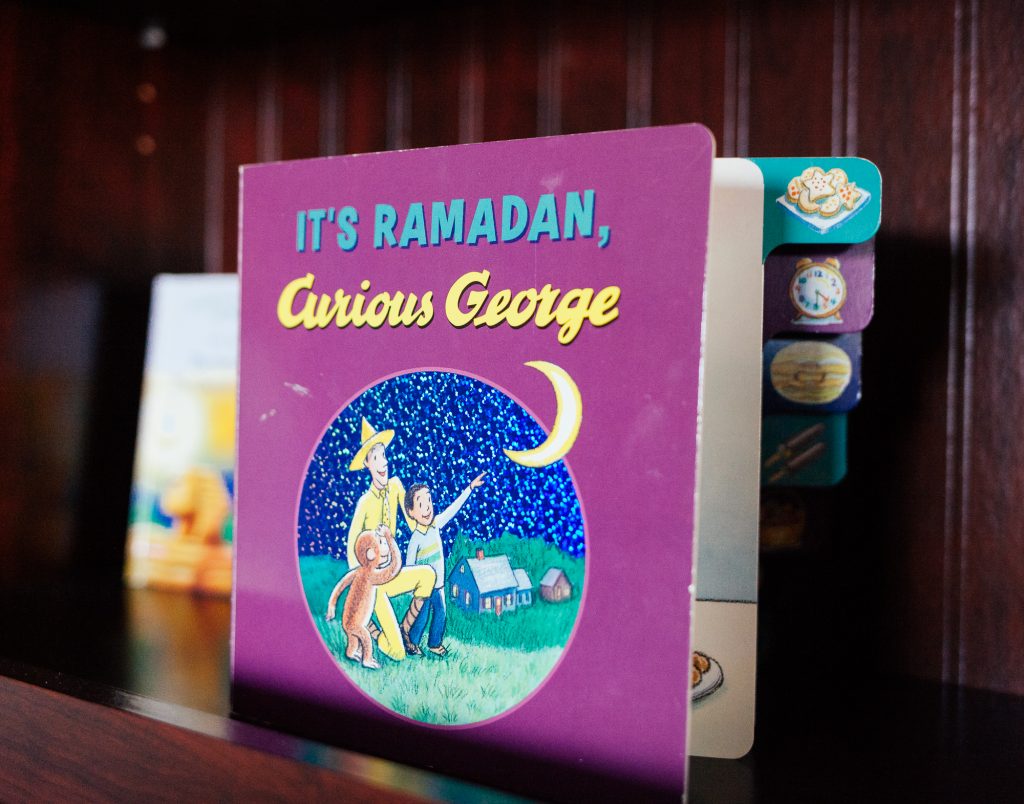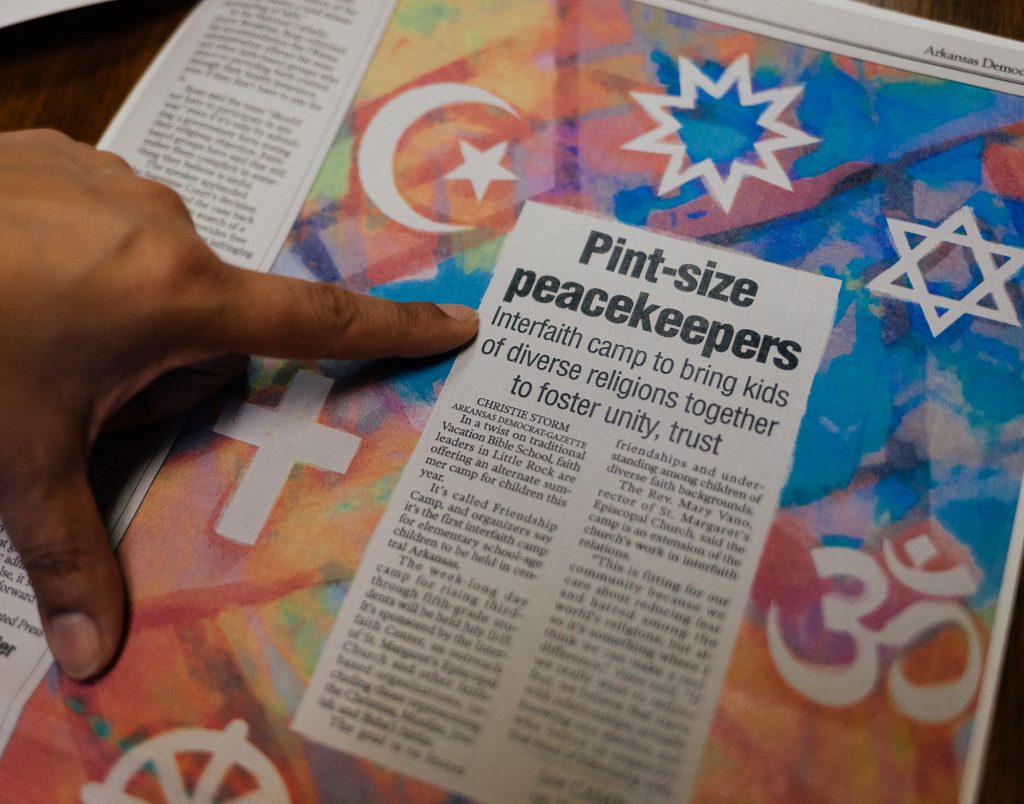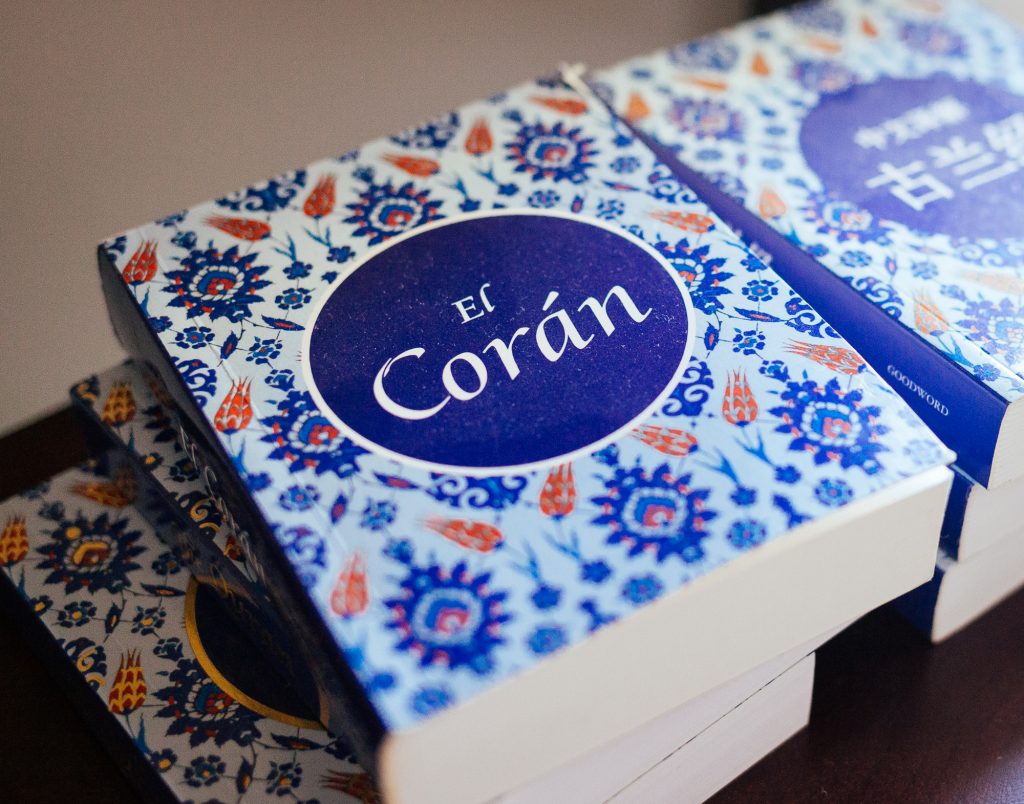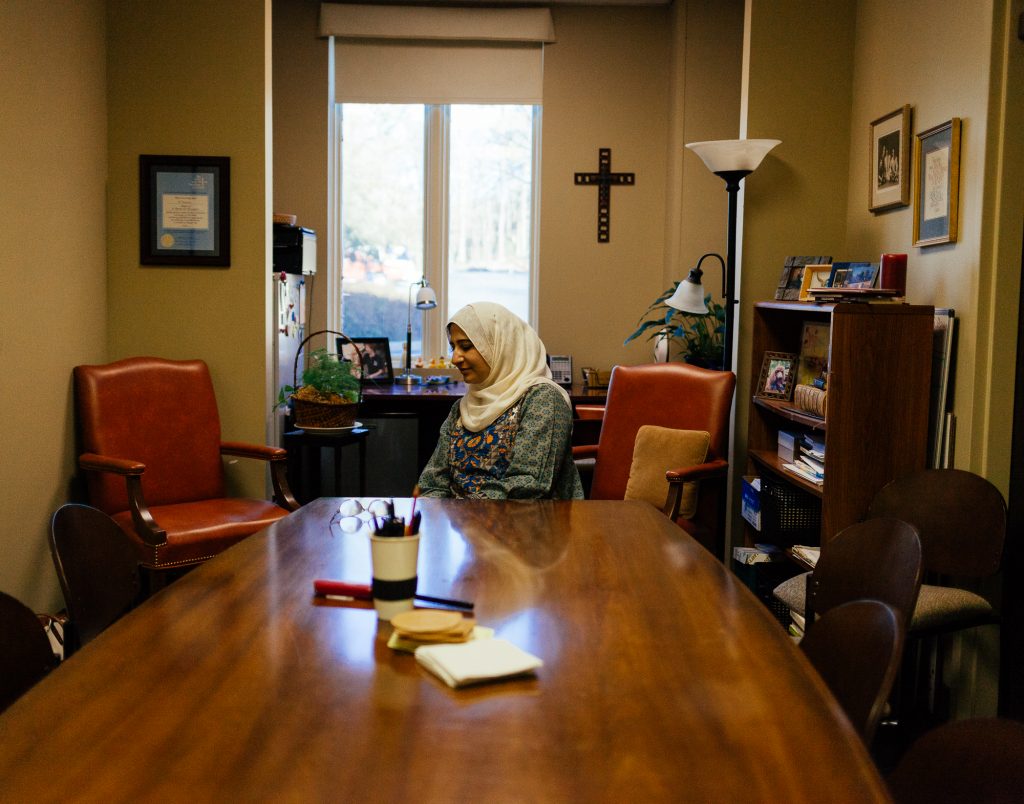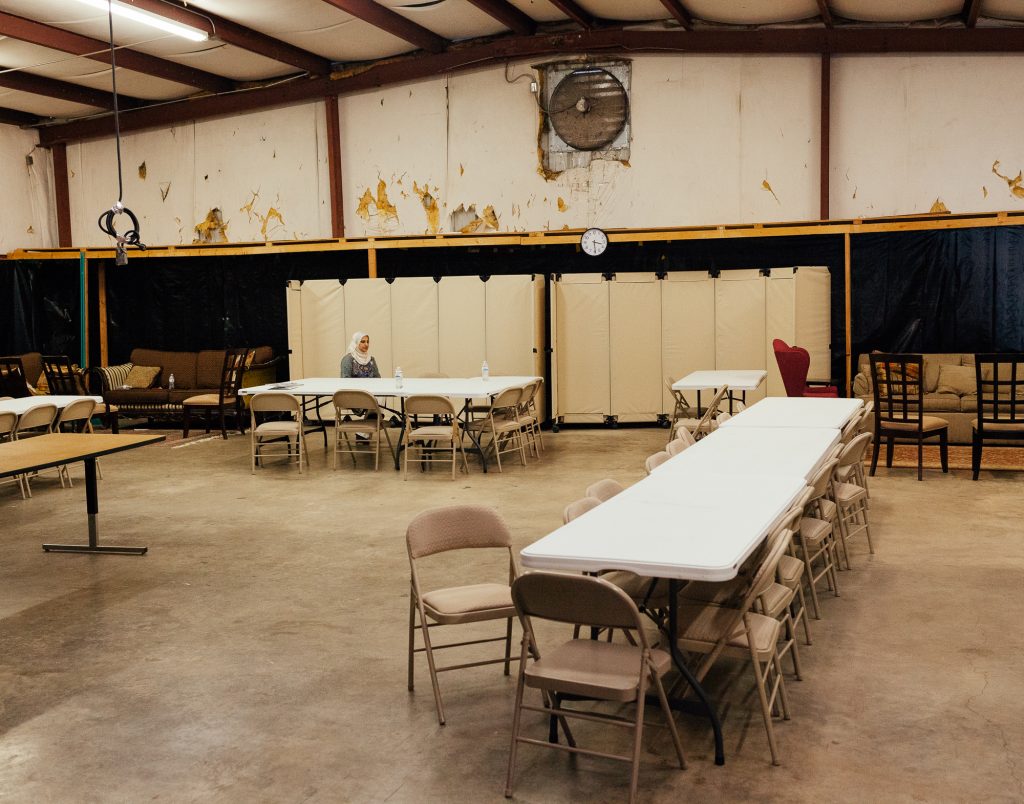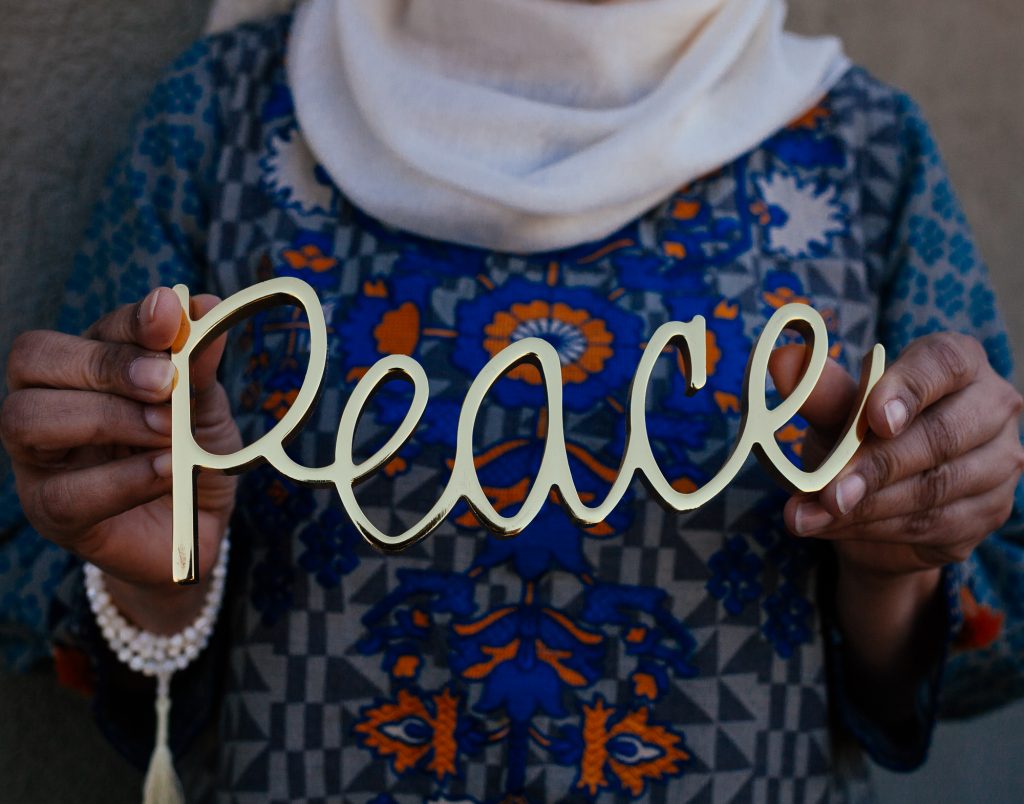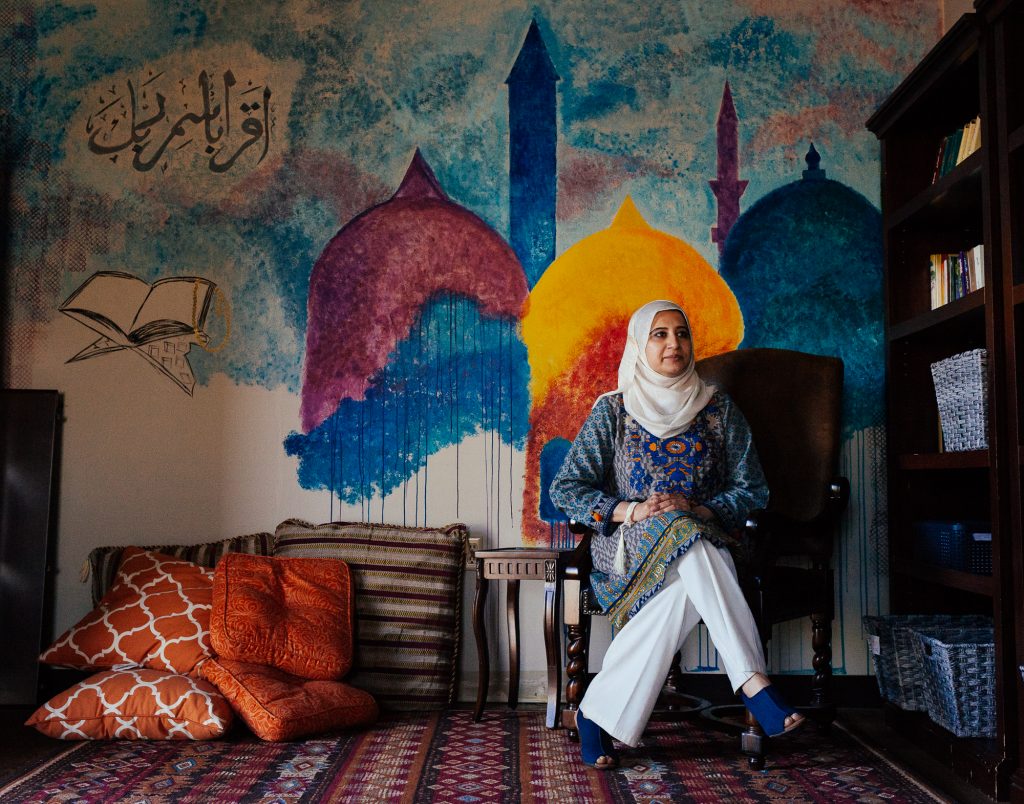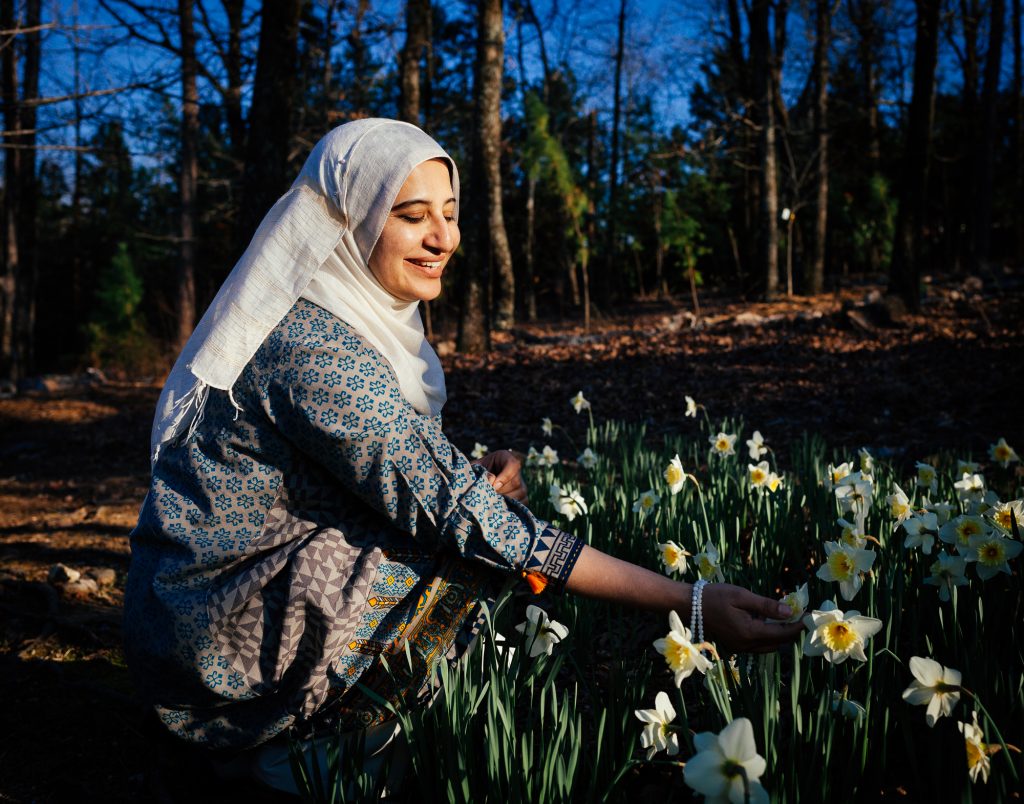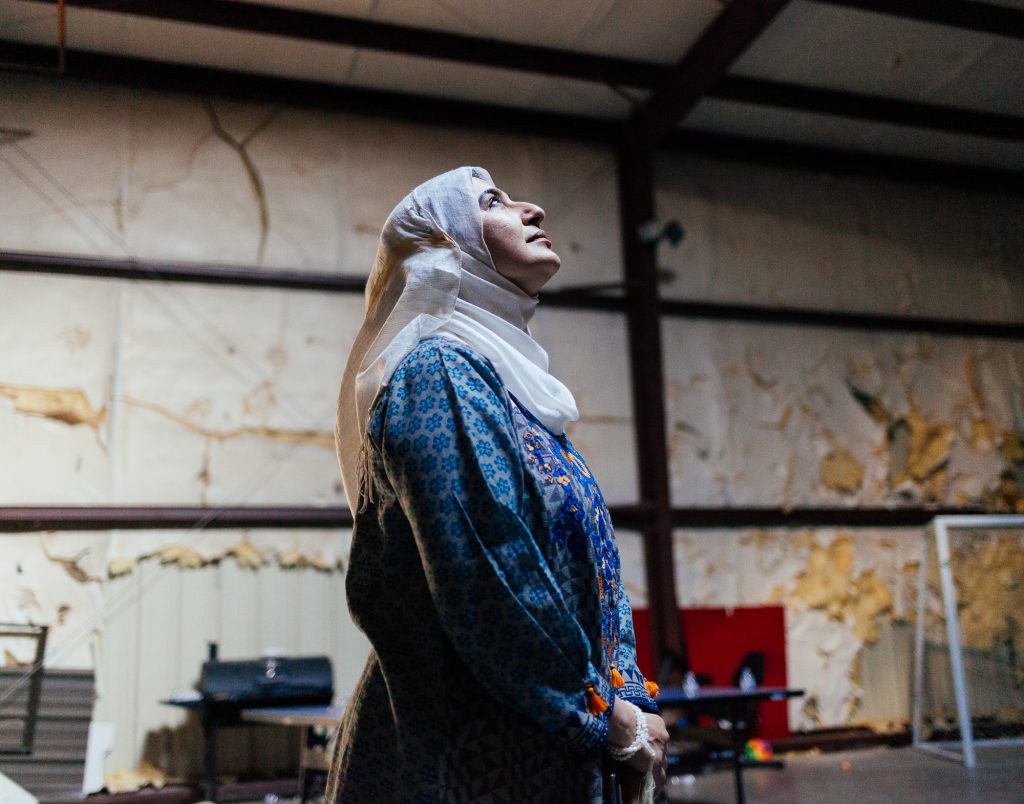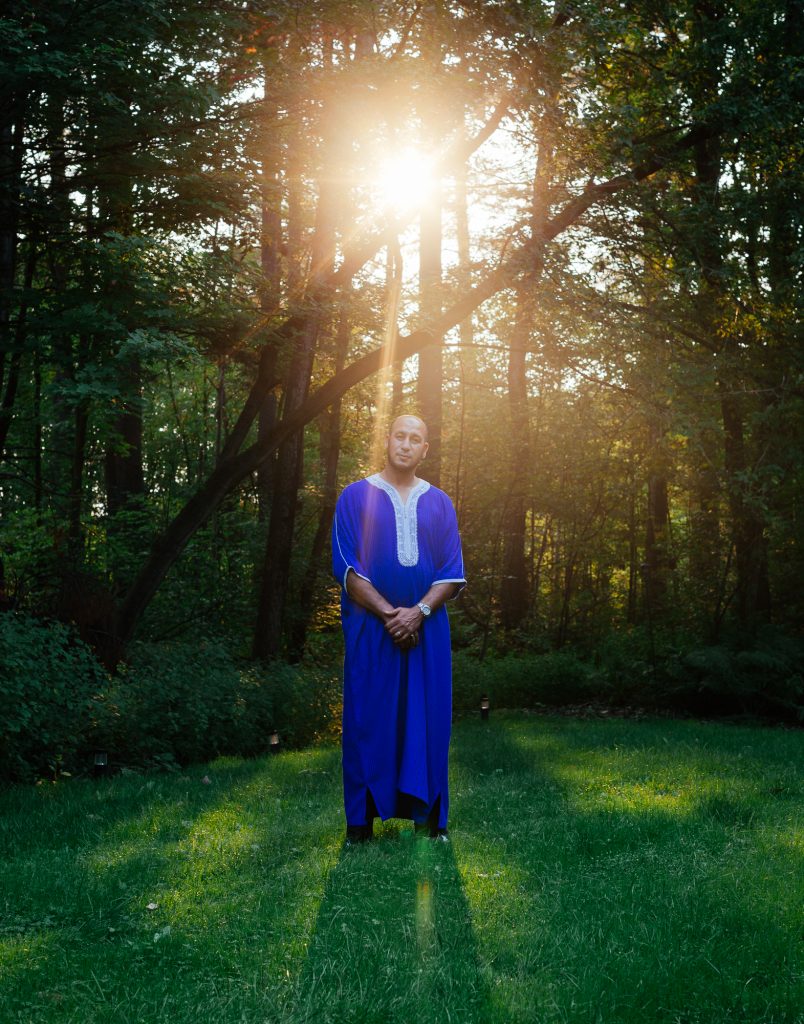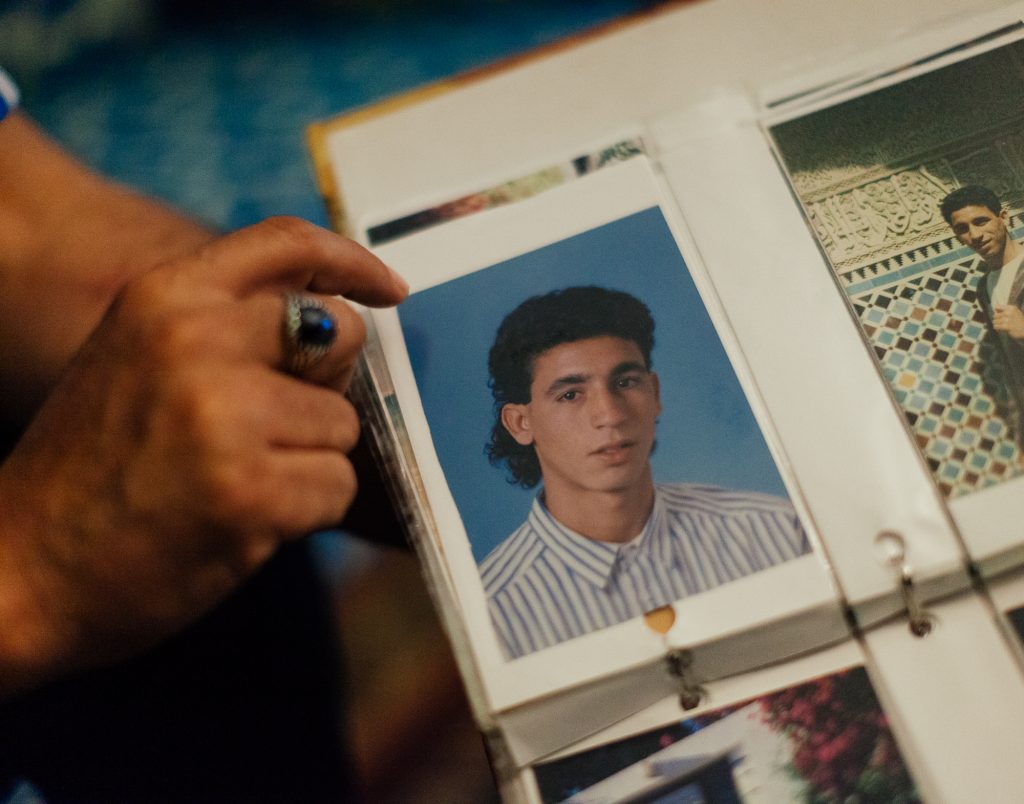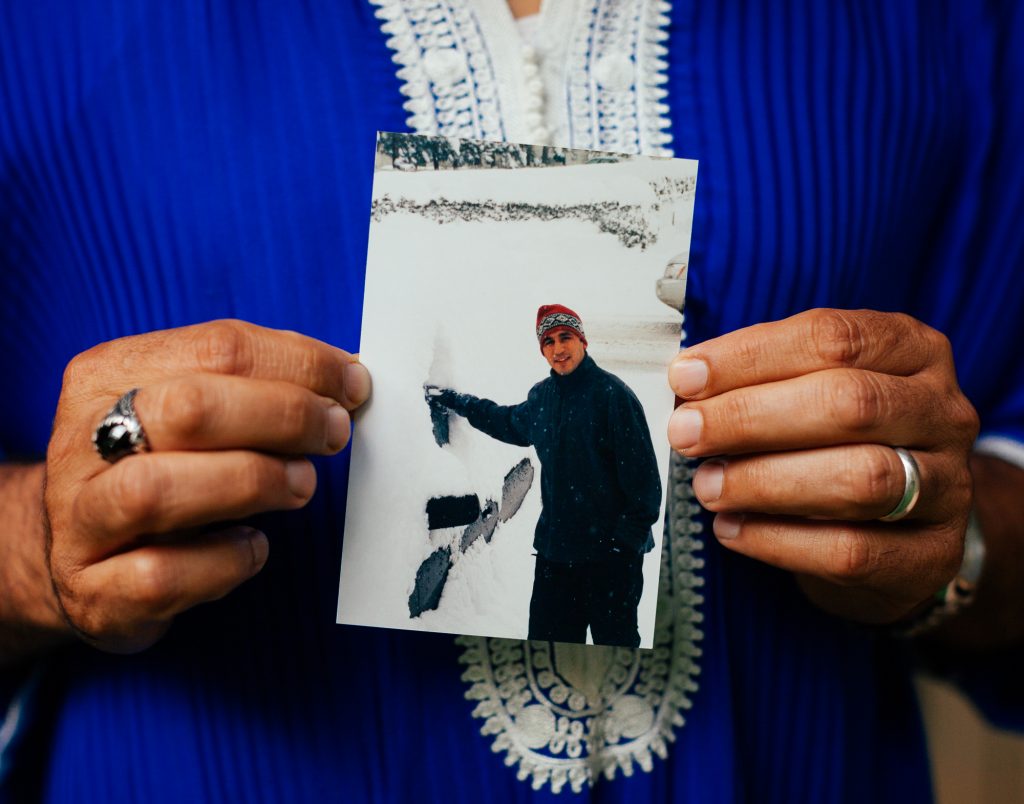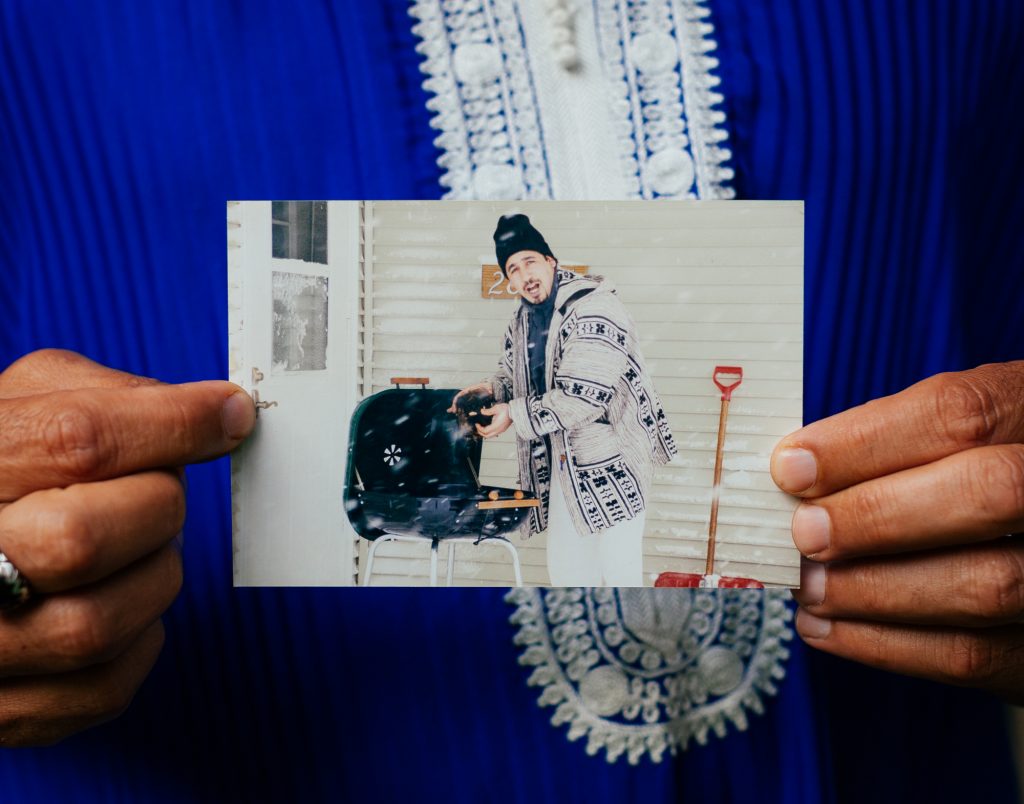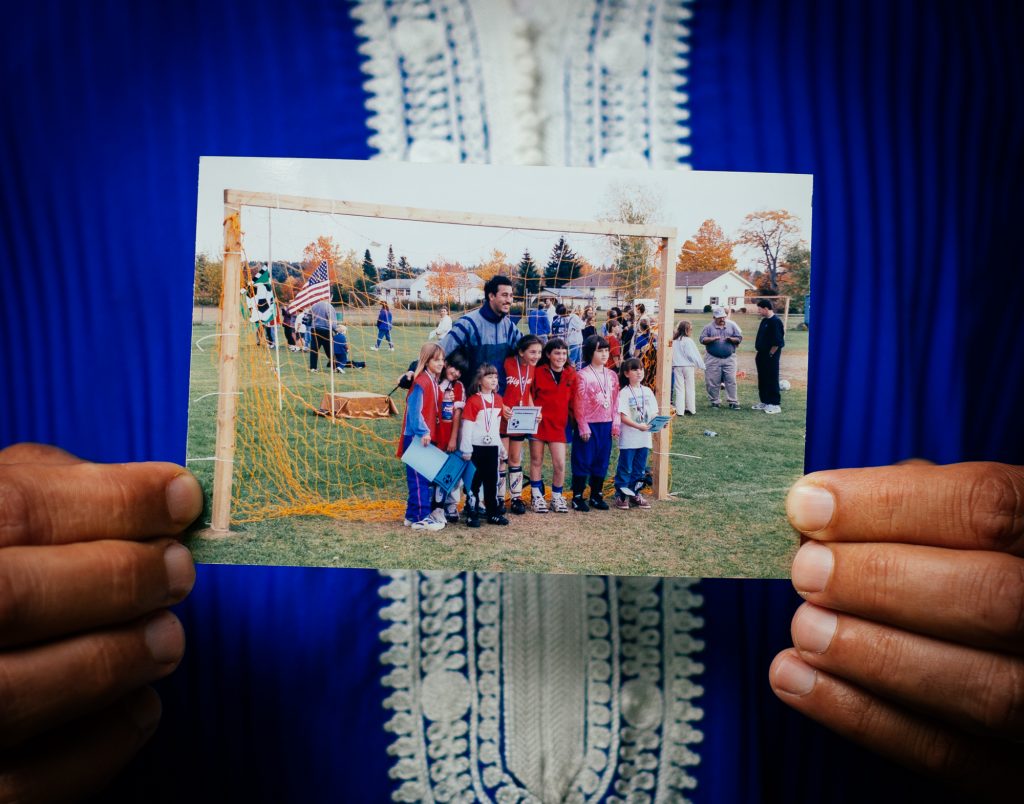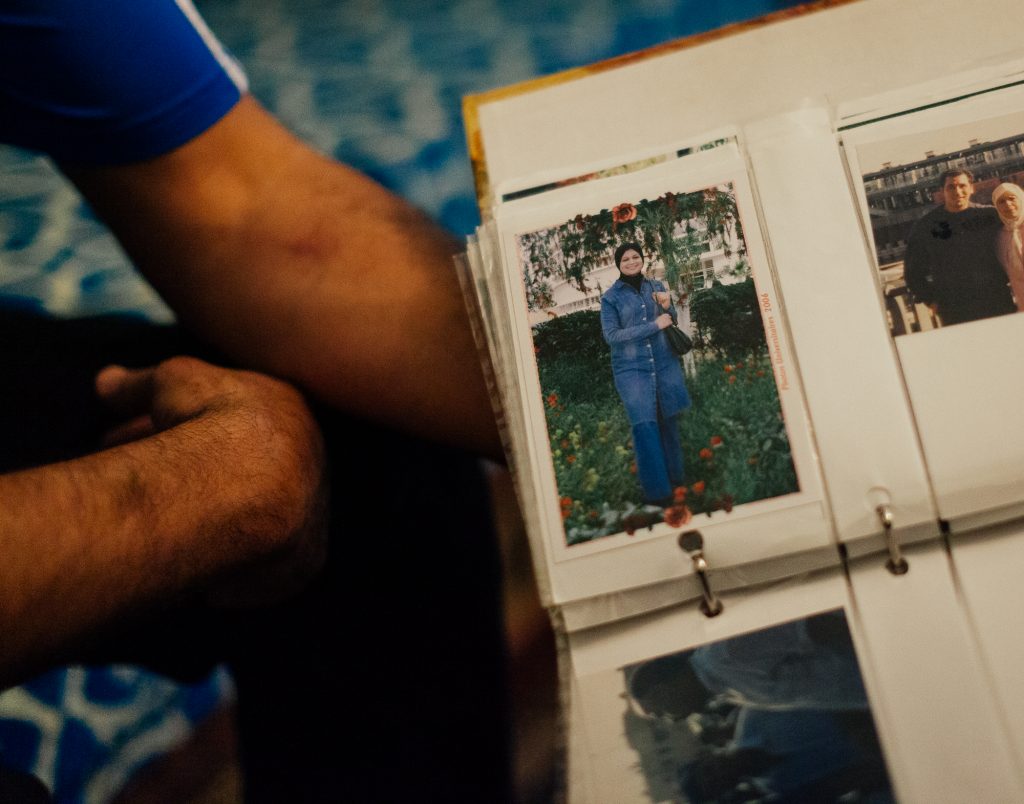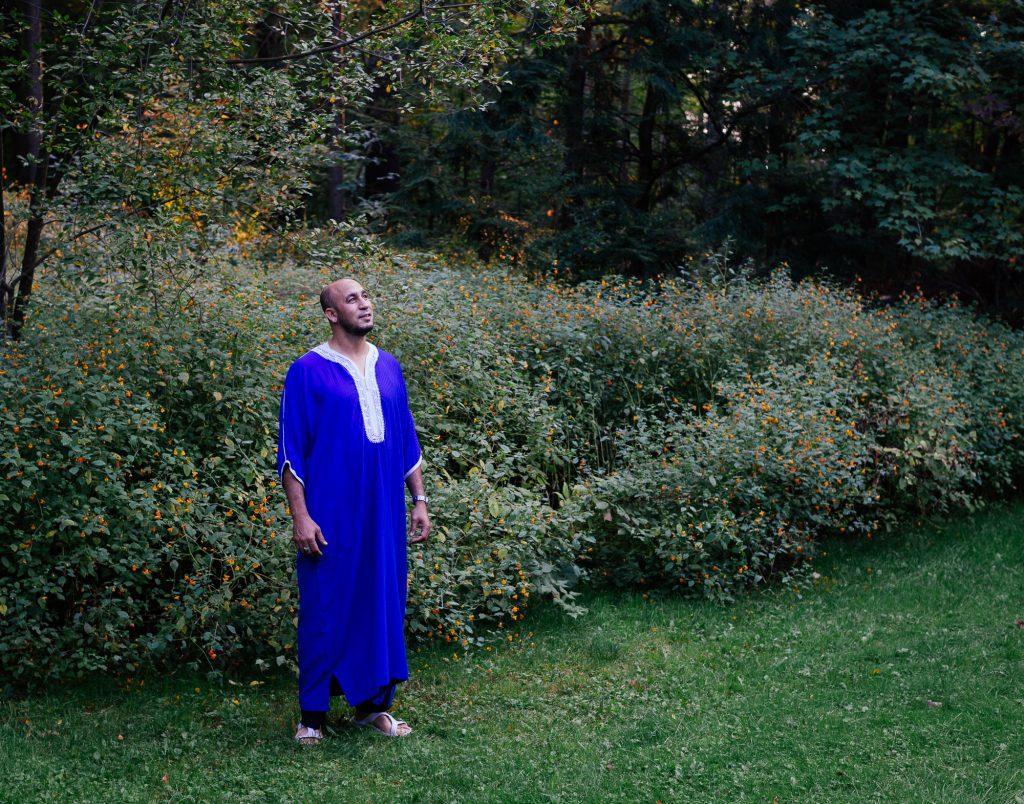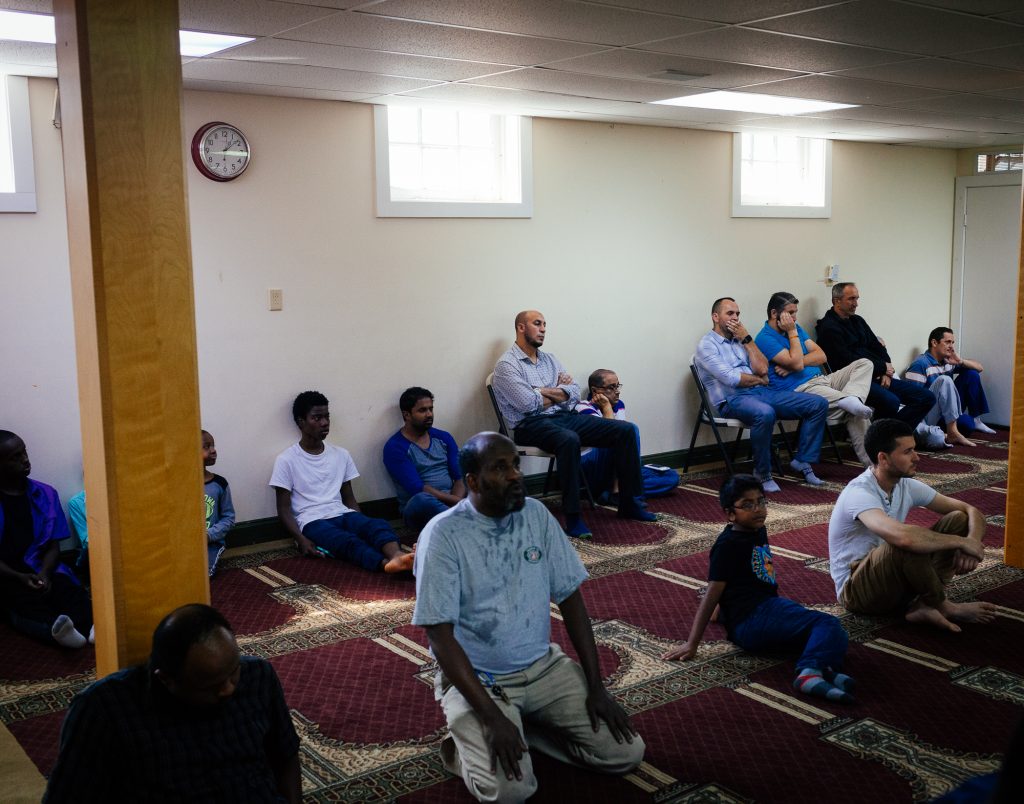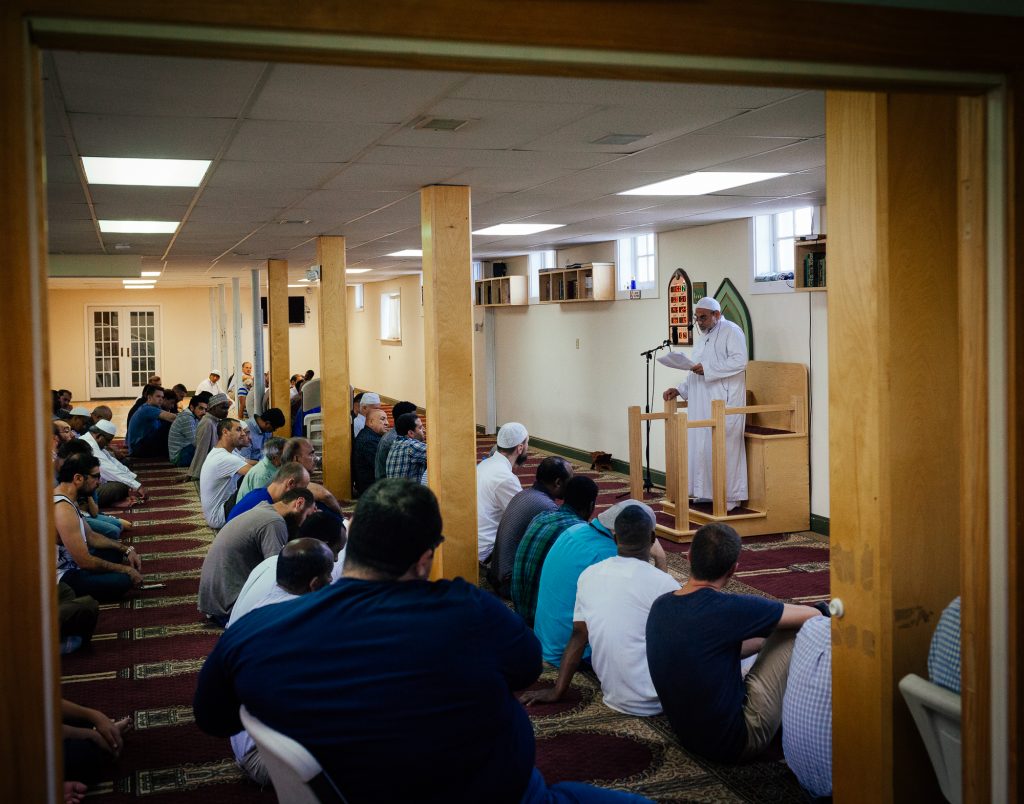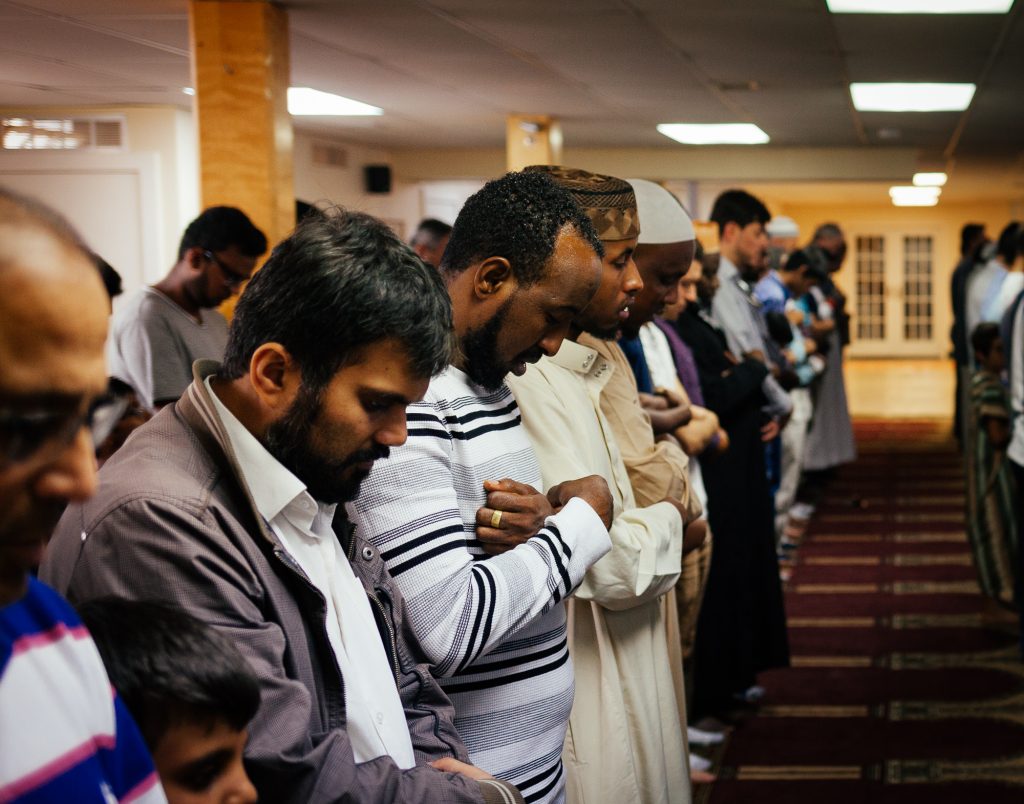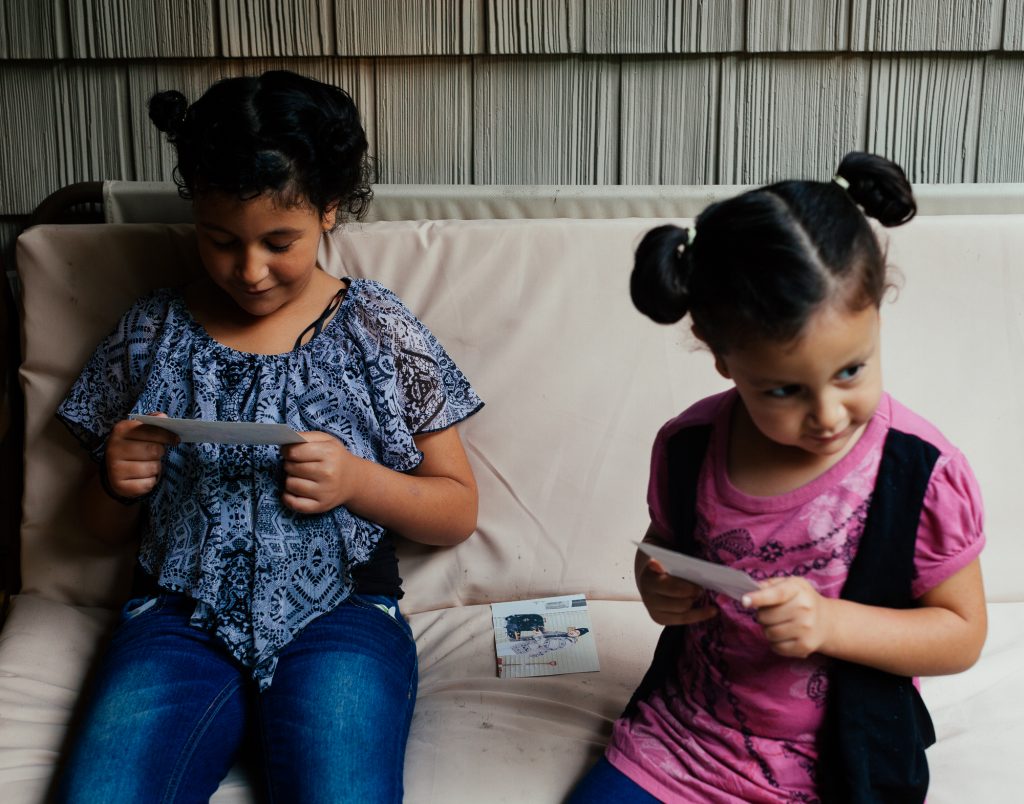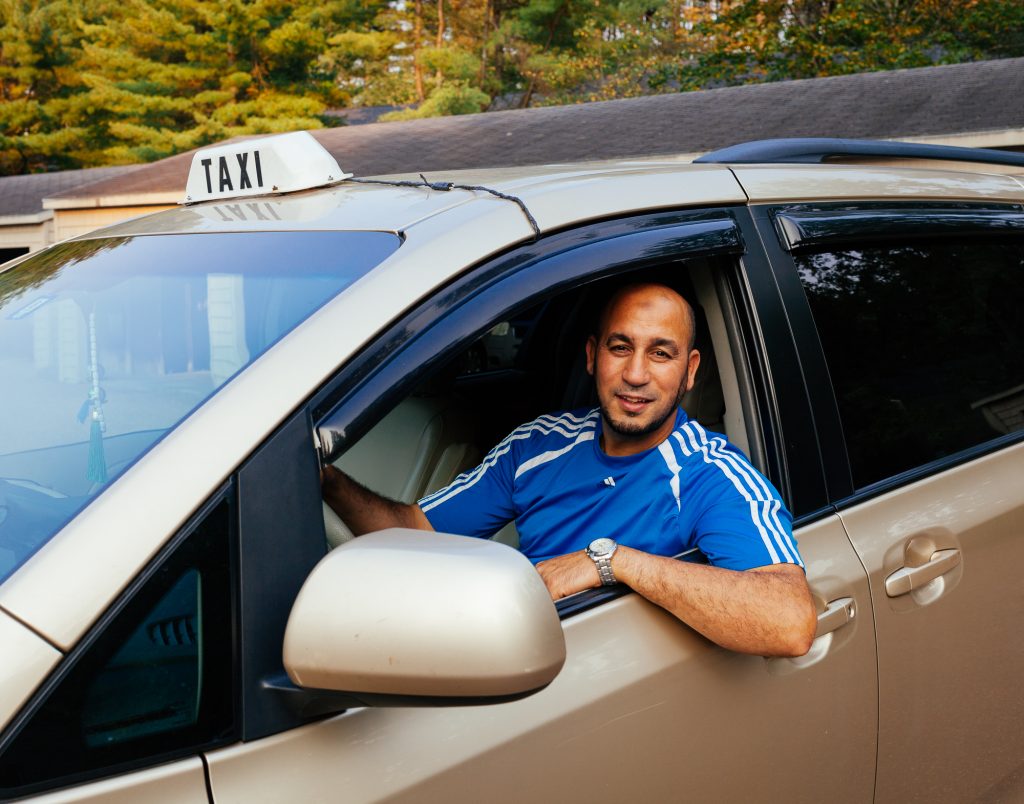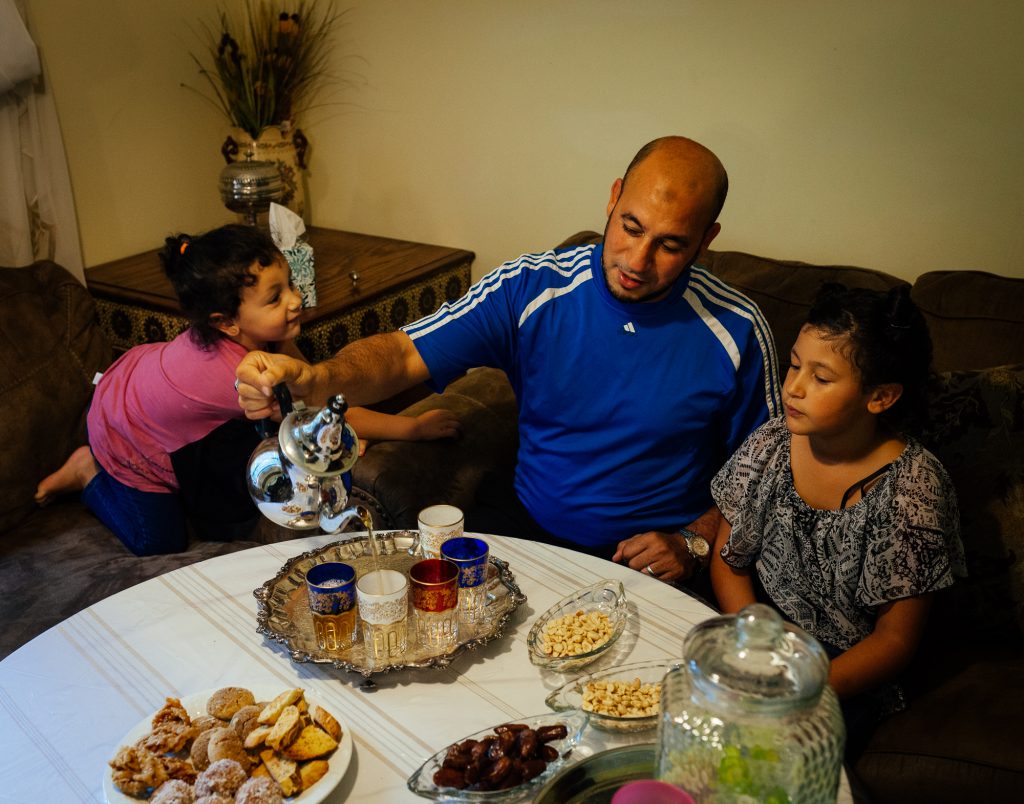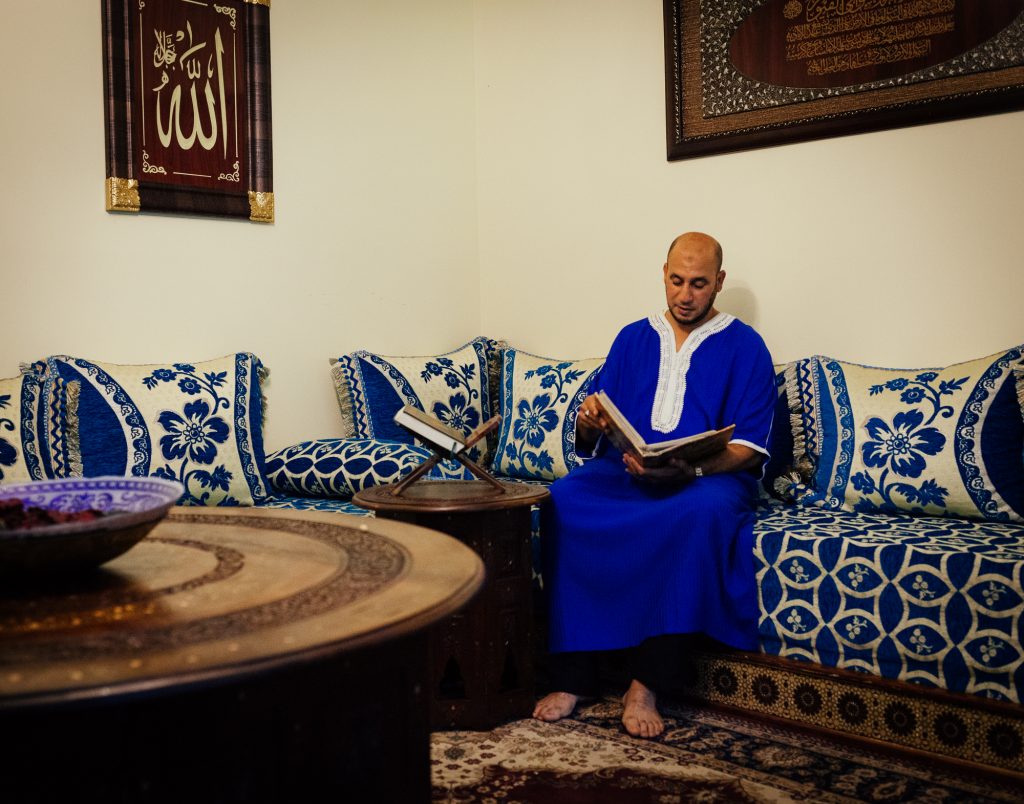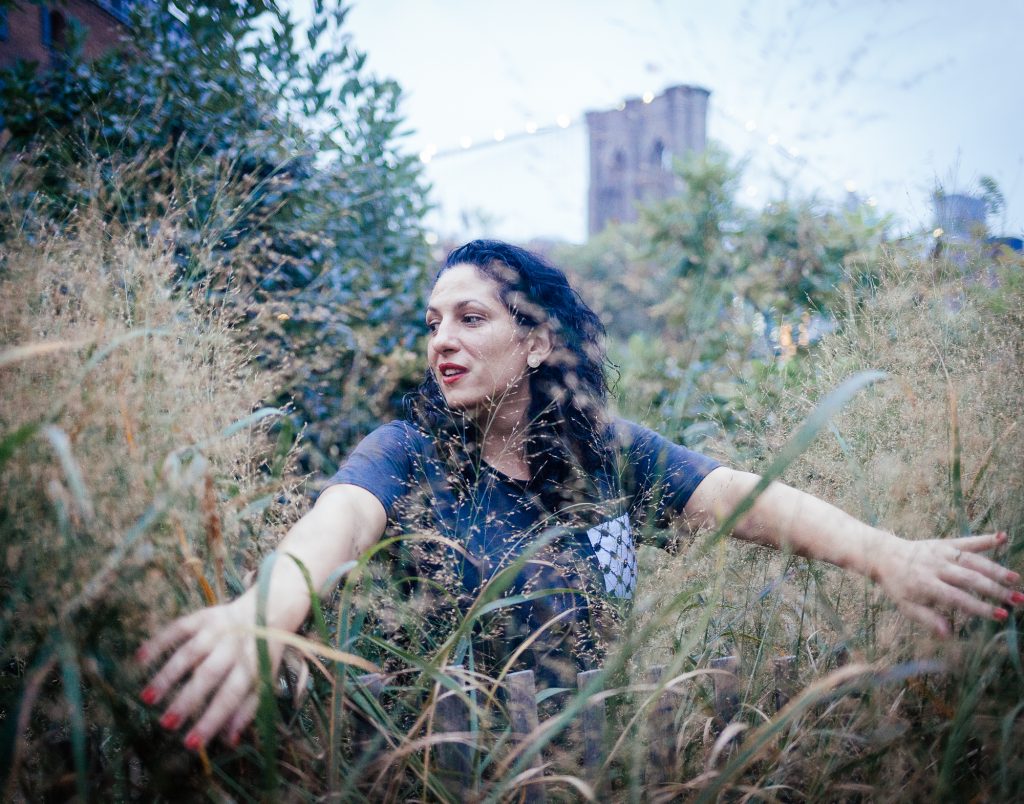
Childhood
Eman was born at the beginning of the 1980s to Palestinian parents living in Kuwait.
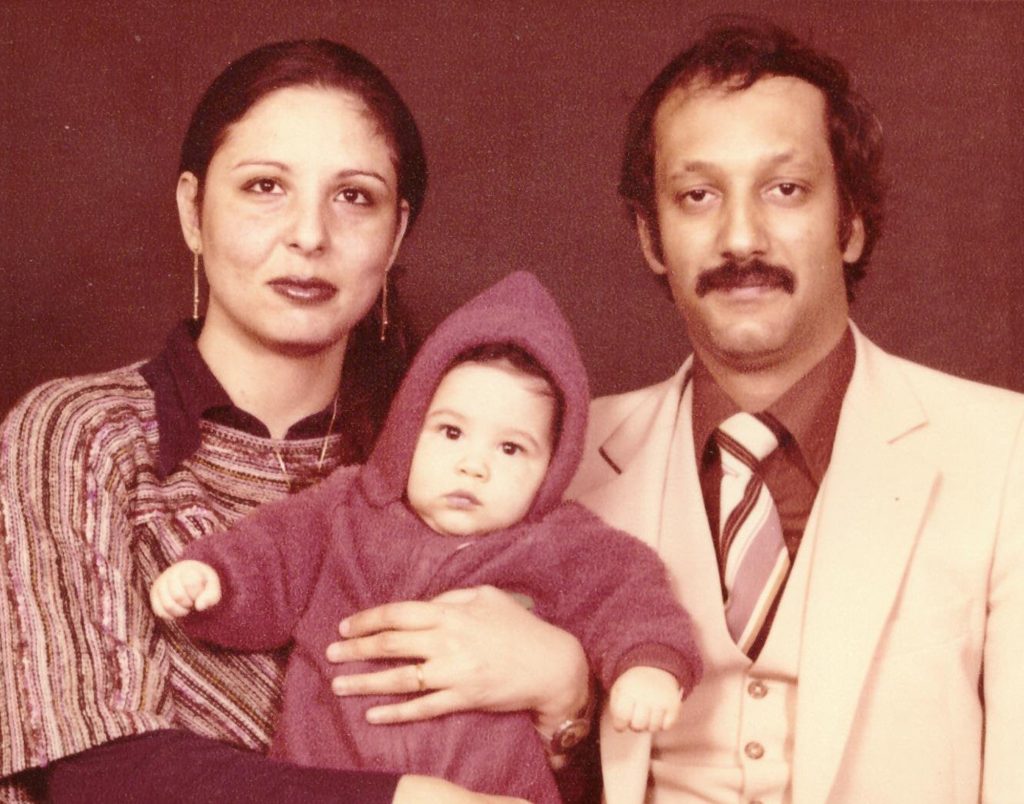
Most of Eman’s memories of Kuwait involve food.
“We didn’t have McDonald’s when I grew up – we had Hardees. Pizza Hut is better there. It had an elaborate salad bar. The food was good in Kuwait because that is all we had. They have no other form of entertainment really.” (audio below)
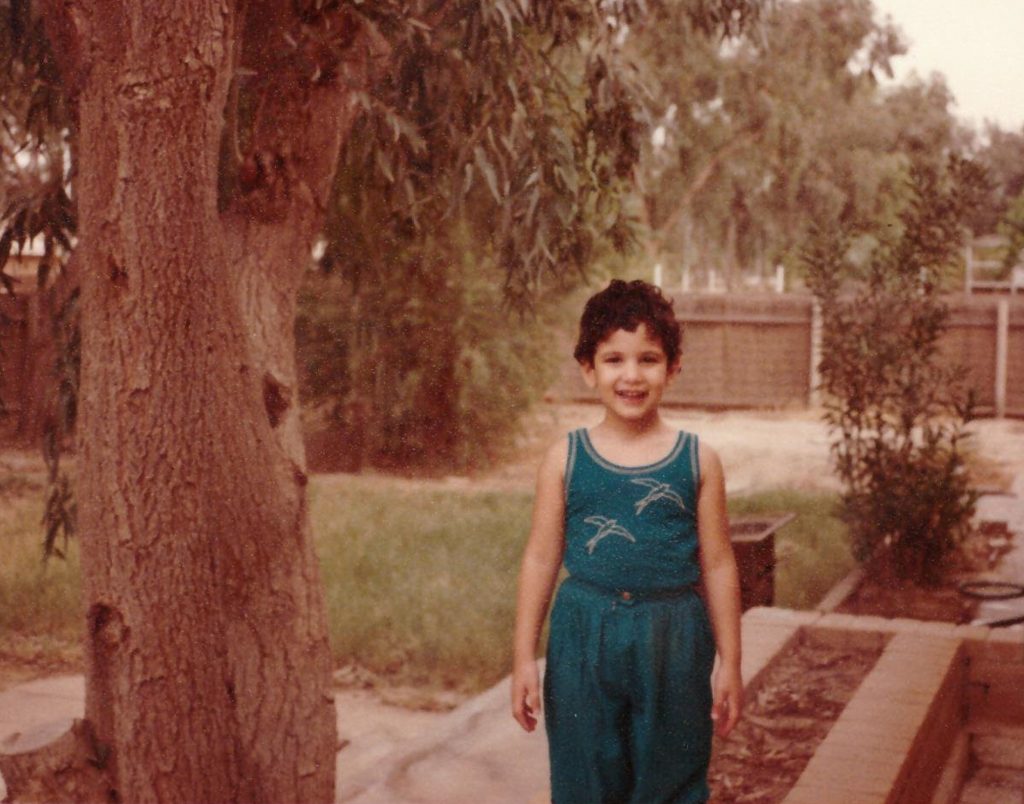
Fleeing Kuwait
Eman was nine when they fled Kuwait in 1990 because of the Gulf War. Eman’s parents had already lived through war as Palestinians and they didn’t want their children experiencing the same trauma they had. The family drove overnight from Kuwait to Iraq. Eman remembers how her parents tried their best to pretend like everything was normal for her and her two younger siblings.
“We didn’t feel danger or that anything bad was happening. It’s a field trip – eat delicious food and listen to your favorite songs!”
Oddly enough, the one thing Eman will never forget about Iraq is the milk. “It is the best milk I’ve ever had in my life.” Eman remembers how embarrassed her Mom was about the sheer amount of milk her daughter was drinking.
“Everything in my life revolves around food. I find comfort in food.”
Canada
Eman’s father had already started the immigration process for the family to move to Canada. He managed an international fiberglass company and already had business in Montreal, Quebec, so they didn’t stay in Iraq for long.
“I remember coming off the plane and everybody coming at us with covers to cover us up, since it was really cold, and we were from the desert.”
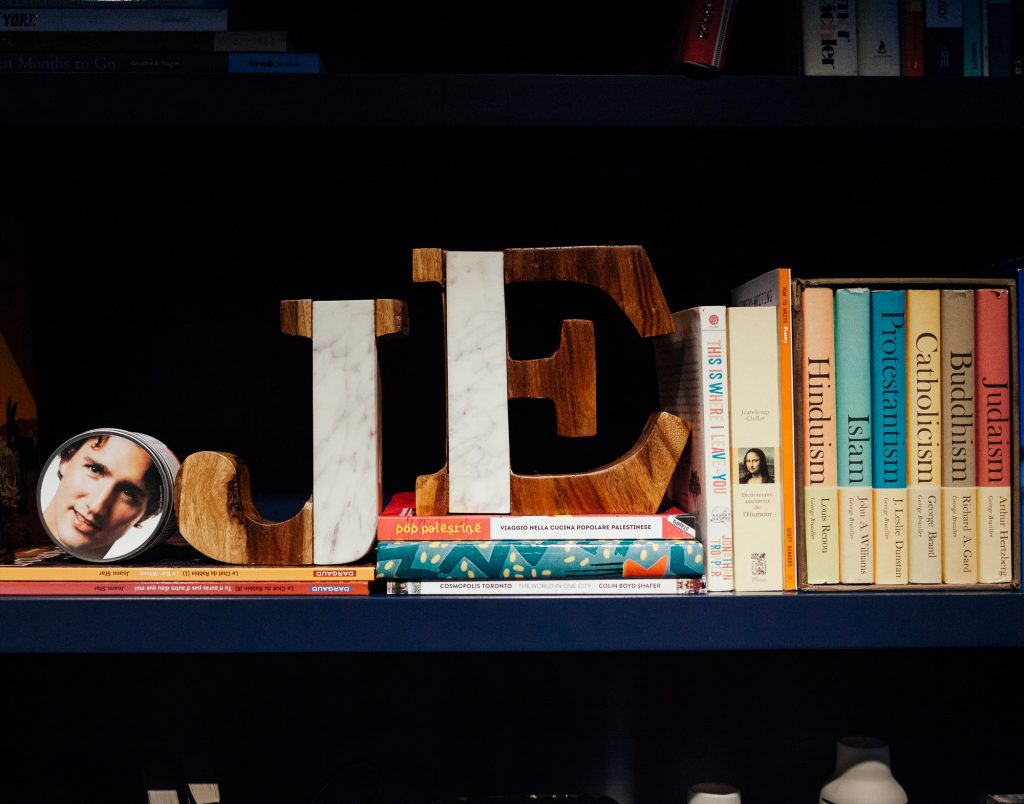
Eman found adjusting to Canadian life reasonably easy. The school she went to in Montreal had other recent immigrants, and many were Arabic speakers – people who spoke the same language and looked like her. Eman explains how even though, as Palestinians, they were second class citizens in Kuwait, their quality of life was better there than in Canada.
Her mother had been a kindergarten teacher in Kuwait, and her father a successful businessman. In Canada, they ran a little muffin and coffee shop franchise called “Treats” in the mall. It was hard work, long hours, with very little return.
The move west had the most profound effect on Eman’s mother, sending her into a depression that has never fully recovered from.
Eman will never forget the happy occasion of her family getting their Canadian citizenship in 1993. Eman’s happiness was overshadowed by one section of her citizenship document. For “country of origin, it read “stateless”. She says this still scars her today.
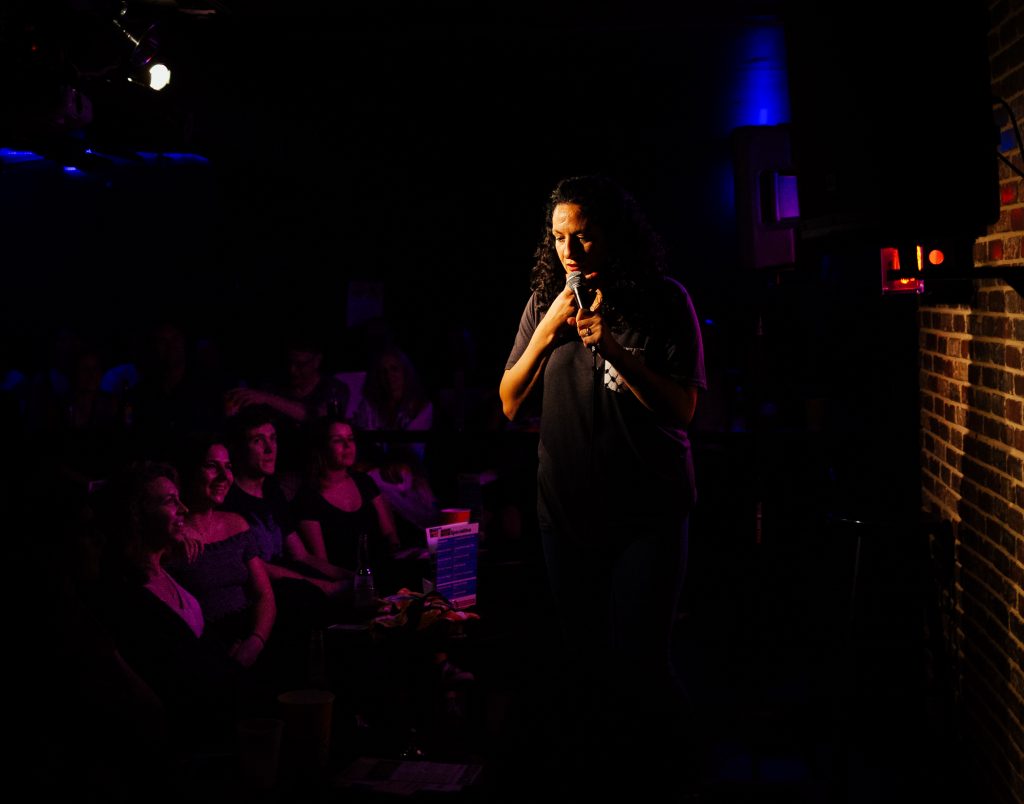
Comedy
From an early age, Eman had wanted to work in entertainment. She grew up watching American shows and felt like nobody on them looked like her.
“I wanted to dispel negative stereotypes. If I saw people who looked like me, they were always awful terrorists – evil people. I feel like when you entertain someone, they will listen to you a lot more than if you are preaching or teaching.”
Eman started her work on the comedy circuit in 2006.
“Now when I look back, I wish I didn’t get into comedy. It is such a hard unstable career. If I could turn back time, I would be a professional tennis player [laughing].” (audio below)
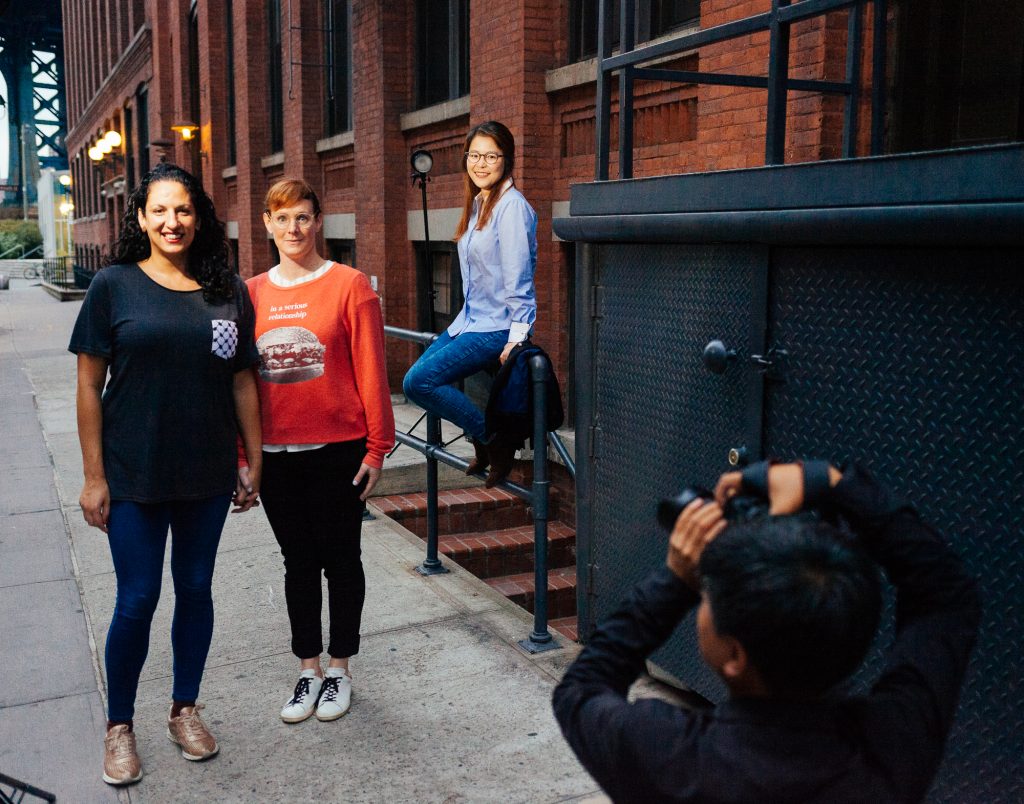
Identity
Eman finds that people often have trouble figuring out what exactly is her background. They know she is a woman of color, but not much more than that. Once, she encountered a man on the subway who was shouting out people’s ethnic backgrounds. When Eman walked by, he fell completely silent. (audio below)
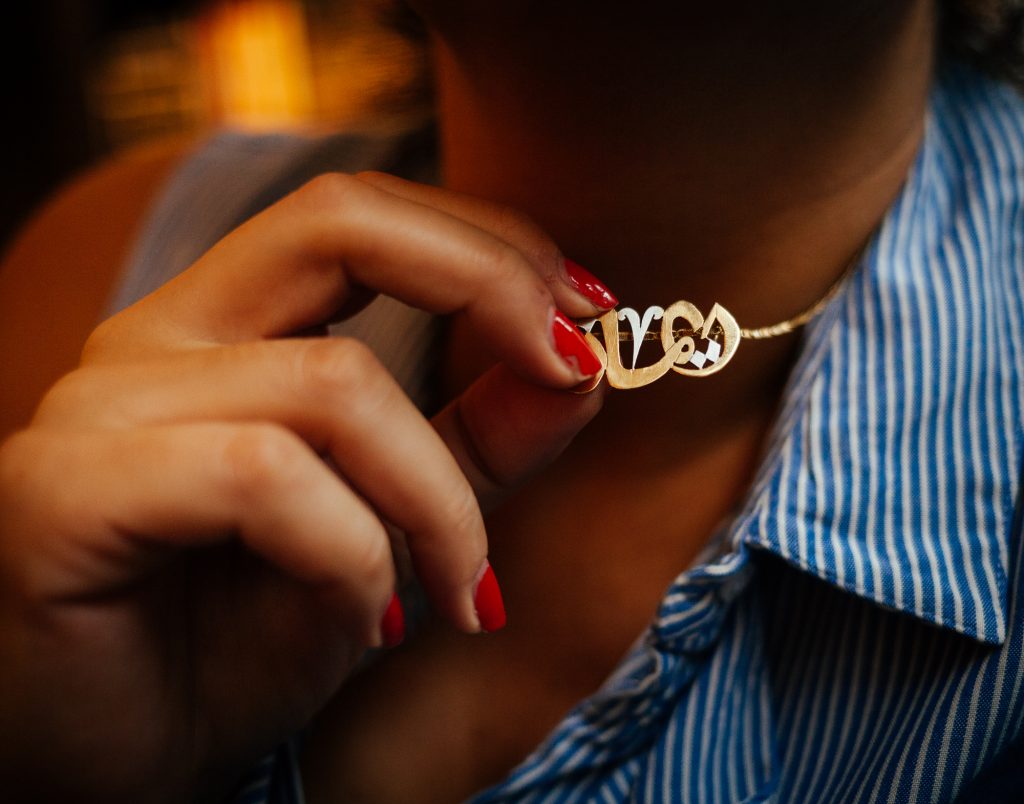
Eman doesn’t feel like she has had to deal with a lot of overt discrimination, which she attributes to not being “visibly gay or Muslim looking.” Although she does think her career would be further along if she had been a regular white guy.
“I remember when I first started doing stand up in Canada, and I wanted to talk about my identity off the top. My boss would be like, ‘maybe you shouldn’t push that right away because it makes people uncomfortable. Make them laugh with light stuff, then get into who you are.’”
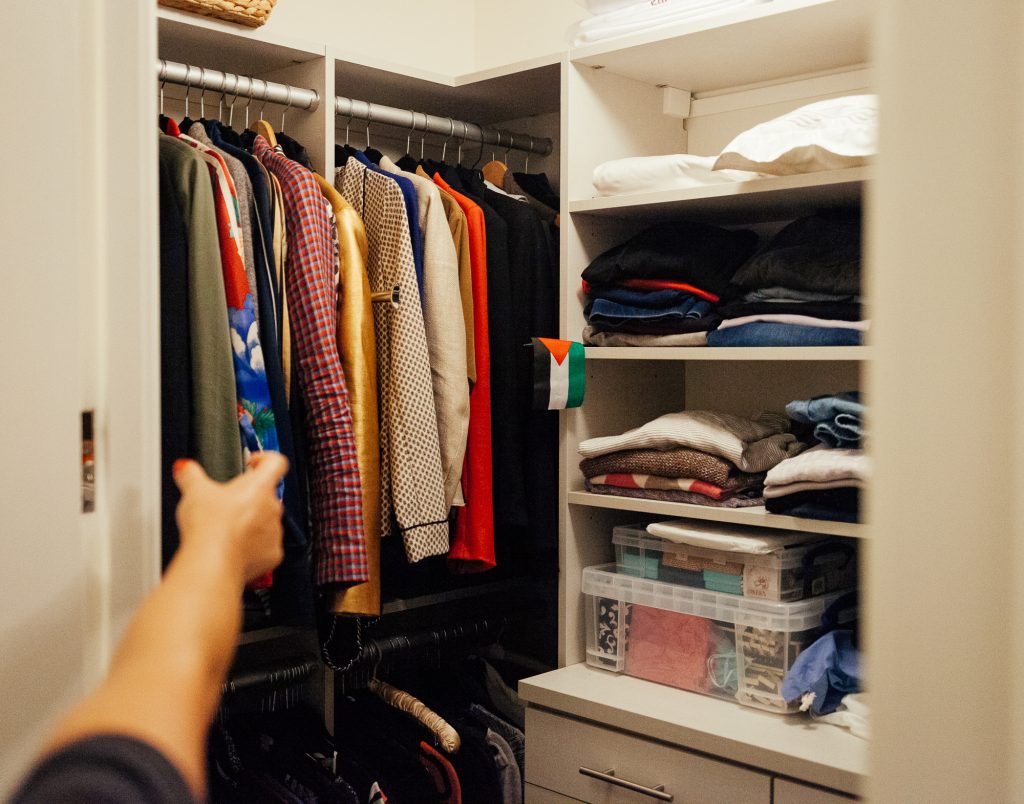
She has had some strange experiences because of her background. Eman remembers once being called “edgy” for mentioning on the radio that she was Palestinian. She also has been heckled because, as she says, “people don’t like what they don’t know.”
“I did get heckled once by a drunk American couple that voted for Trump and called me a terrorist. The audience was really nice to be like, ‘get the fuck out of here!’ [to the hecklers]” (audio below)
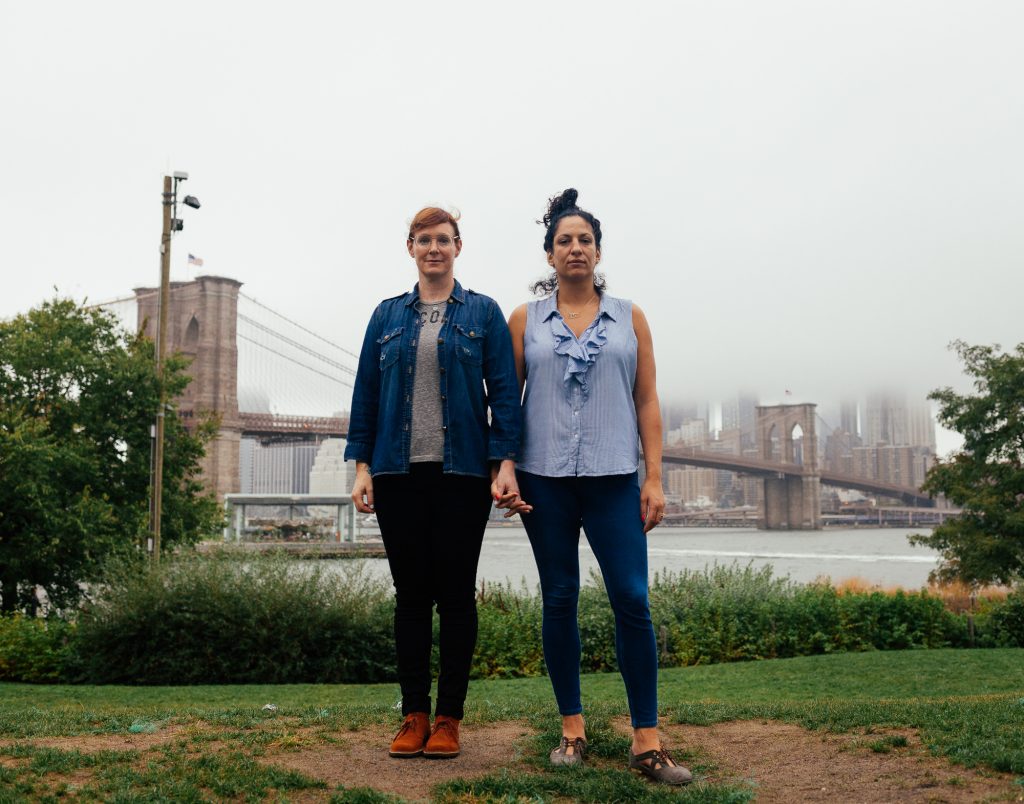
Meeting Jess
In 2009 Eman met Jess, who was born in Montreal, Canada to a Peruvian mother and a Canadian father. They became friends on the Canadian comedy circuit. Eman didn’t think of Jess in a sexual way; in fact, she had never really thought of any woman in a sexual way!
“My curiosity spiked one night when she was at the club; I looked at her in a different light. She has a line in her stand up about being bisexual, and I was like ‘Oh, my God – I’m totally curious!’ It was always on my subconscious. I thought if I were to fool around with a girl it would be her. I didn’t know I would end up marrying her!” (audio below)
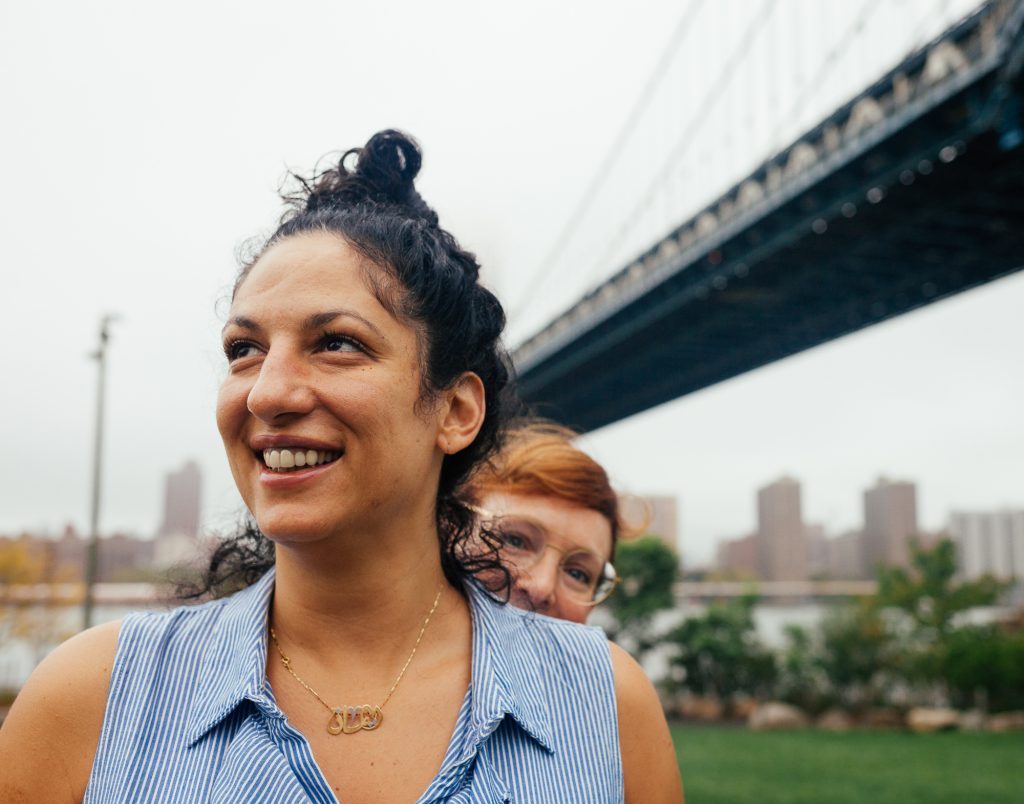
New York
Eman knew that New York City was the place to be for standup comedy. Once a year, she would head down to NYC to do a show. It was perfect when she met Jess because she had the same idea about the city. Both Eman and Jess, as comedians, agreed that New York was a place they could both grow as comedians. Besides, Eman had always dreamed of moving to the US. She grew up obsessed with Beverly Hills 90210 and often fantasized about going to an American college by the beach.
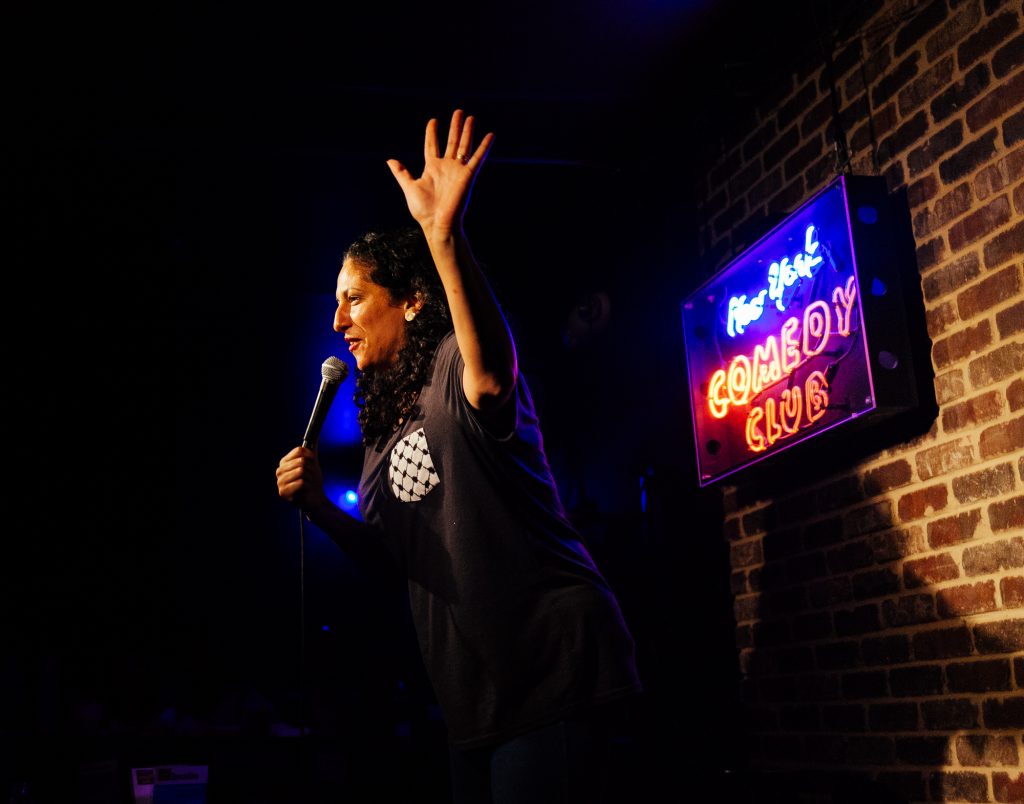
They arranged a trip to New York City for a five-month “trial period”, staying in a small studio apartment. This trip was an excellent test for their relationship, and they passed. As Jess remembers,
“It became clear that we were going to do this together, and we were going to do life together.” (audio below)
Marriage
It also became clear that they wanted to move to the US more permanently. They decided to try and get green cards. Their lawyer suggested that Eman apply, and Jess come as her spouse. This complicated Jess’s plan. She already had the ring, and the proposal all planned out! In the end, Jess still proposed but did end up going to New York as Eman’s spouse.
They married at City Hall in Toronto in 2015. Jess’s father had just passed away, so she was a “complete disaster” emotionally, but is thankful they did it for the sake of the green card.
“In our wedding photos, it looks like Eman is taking me hostage.”
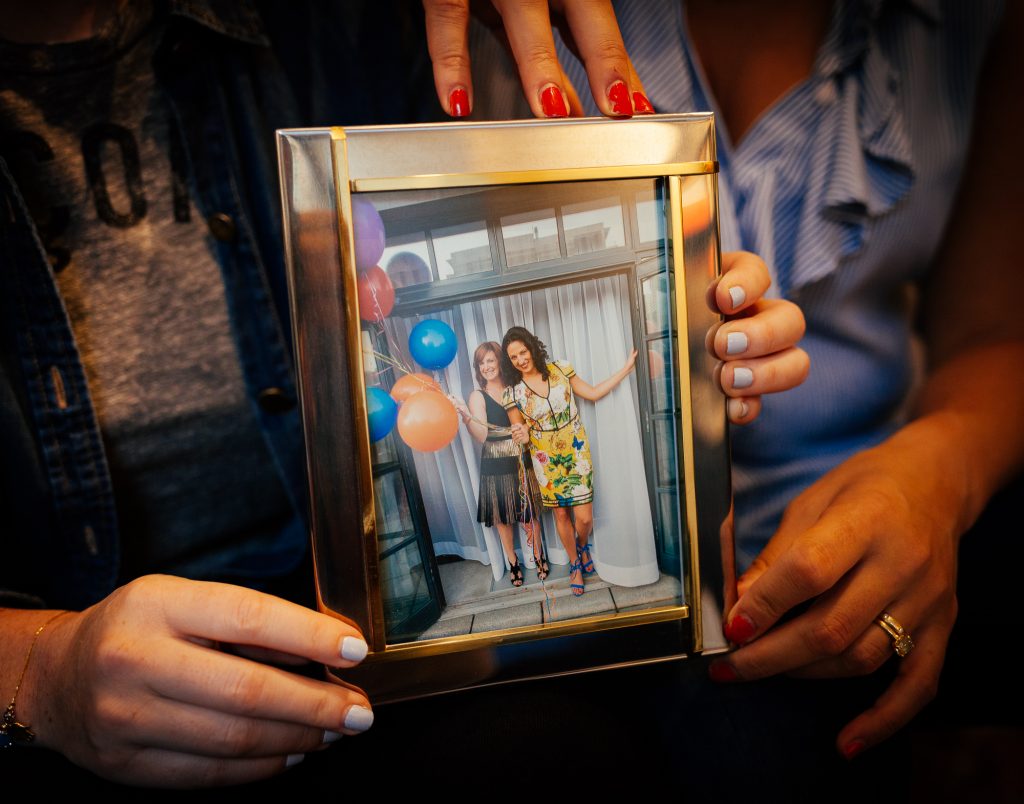
A year and a half later, they had a proper wedding in Montreal [see the above photo]. Jess’s mom helped throw a beautiful wedding party. It was a “real cultural mishmash,” with Jewish traditions, Arabic traditions, mixed in with Peruvian food and culture. They did the hora and the dabka. As Jess remembers,
“We had belly dancers come out at the end, and my mom got down with them. I may have proposed to Eman, but at the wedding, I was full bride.”
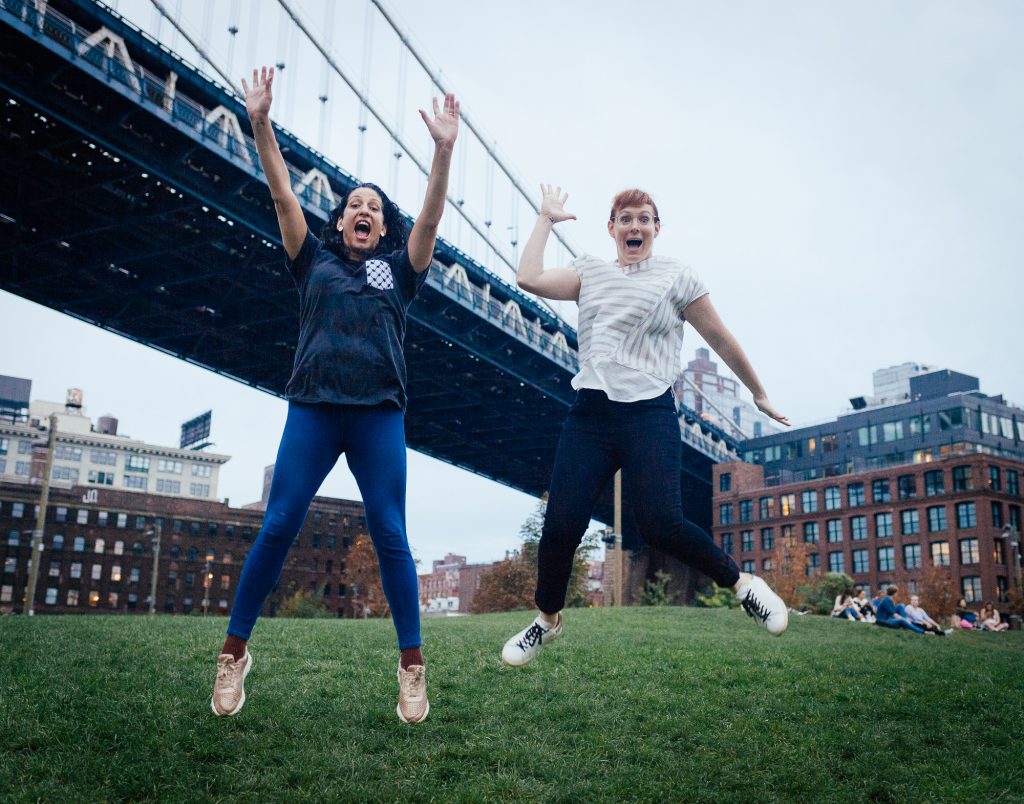
They made the official move to NYC in April of 2016. Eman describes New York City as tough, gross, filthy, but also unique, fashionable, and colorful.
“Originality is so embraced in New York City. You meet such interesting people who probably left where they are from so they could come here and express themselves fully. It is a beautiful liberal bubble where we think Hillary Clinton is president of this town.” (audio below)
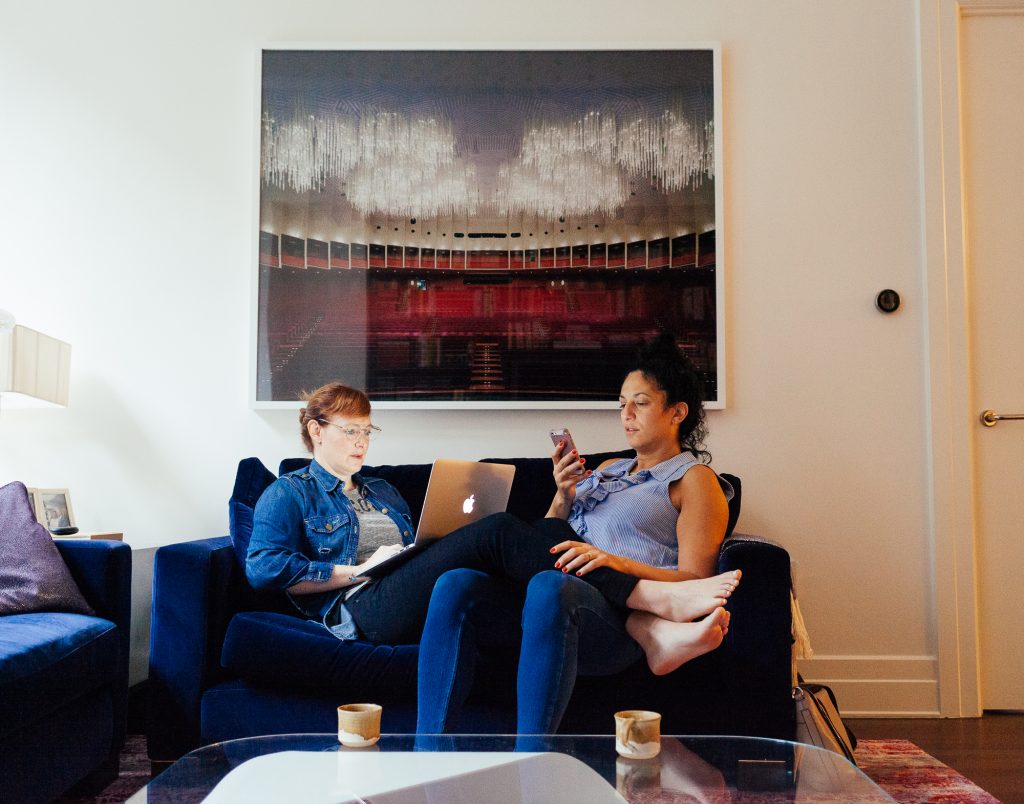
Future
Eman tries to perform every single night, sometimes even more than one show in a night. She gets rusty quickly, so being on stage regularly is her way of staying sharp. Eventually, she hopes to have a stable income from comedy (and fame and fortune of course).
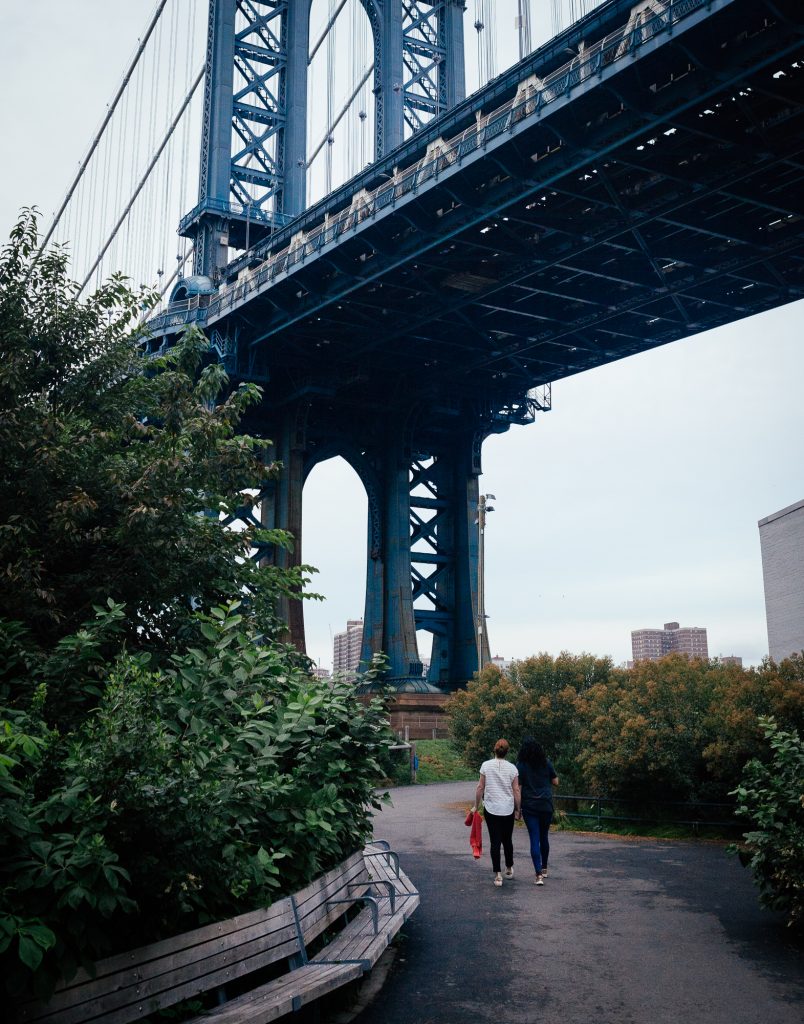
In regards to America’s future, Eman isn’t too sure. She wants to be an idealist and think that liberal-minded people will win in the end.
“I want to believe this is the last of ignorance, but I look at the future, and I am so worried. I don’t know if evil wins in the end, but I feel like that is what’s winning right now.”
Update: Since the interview, Eman and Jess have a new daughter (puppy) named Esther Honey, their Crave Comedy Special The El-Salomons: Marriage of Convenience launched and they have been creating awesome cartoons about their lives together over on Instagram.
#FINDINGAMERICAN
To receive updates on the book release and exhibition of “Finding American: Stories of Immigration from all 50 States” please subscribe here. This project is a labor of love and passion. If you would like to support its continuation, it would be greatly appreciated!
© Photos and text by Colin Boyd Shafer | Edited by Kate Kamo McHugh. Quotes have been edited for clarity and brevity.
